Japu, Q’ero Nation
Today we drove for over five hours from Cusco to the village of Japu (pronounced Hapu), which is part of the Q'ero Nation, north of Cusco in the Paucartambo district of the Cusco region. The Q’ero are known for their very traditional lifestyle. They did not allow any contact with the outside world until the 1990s, because they believe that they are the last descendents of the Inca and wanted to protect their culture and language from modern influences.
They still live a traditional lifestyle, but since their school opened over ten years ago, the younger generation is also learning Spanish. Most men in the community are healers and lead Andean spiritual practices. Some also consider themselves Catholic, as most people here believe that there is no conflict between believing in God and believing that we must respect and thank the earth and natural world around us. Traditional Andean beliefs include a wide variety of practices, but the most important for the Q’ero is the Pachamama ceremony.
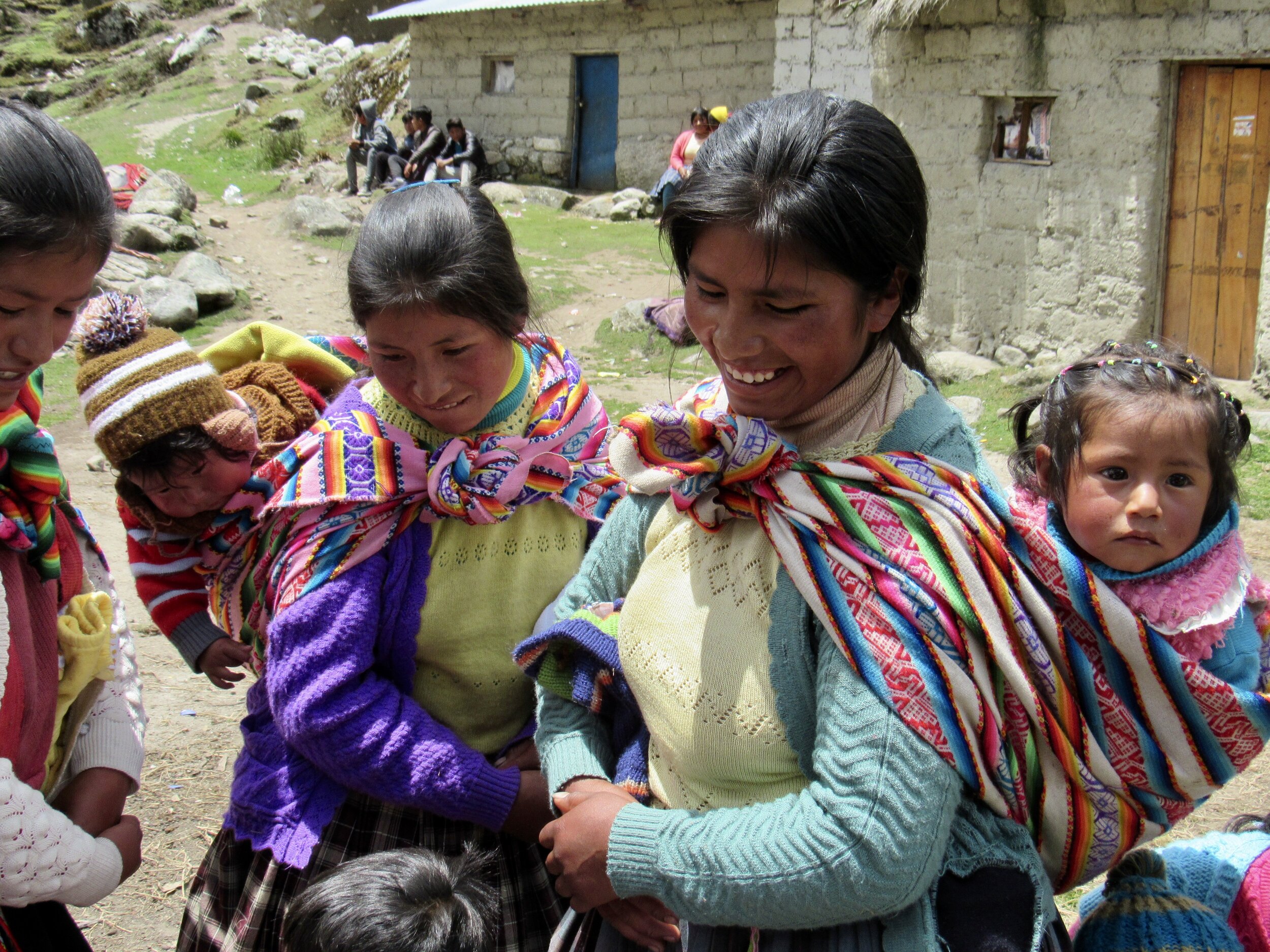
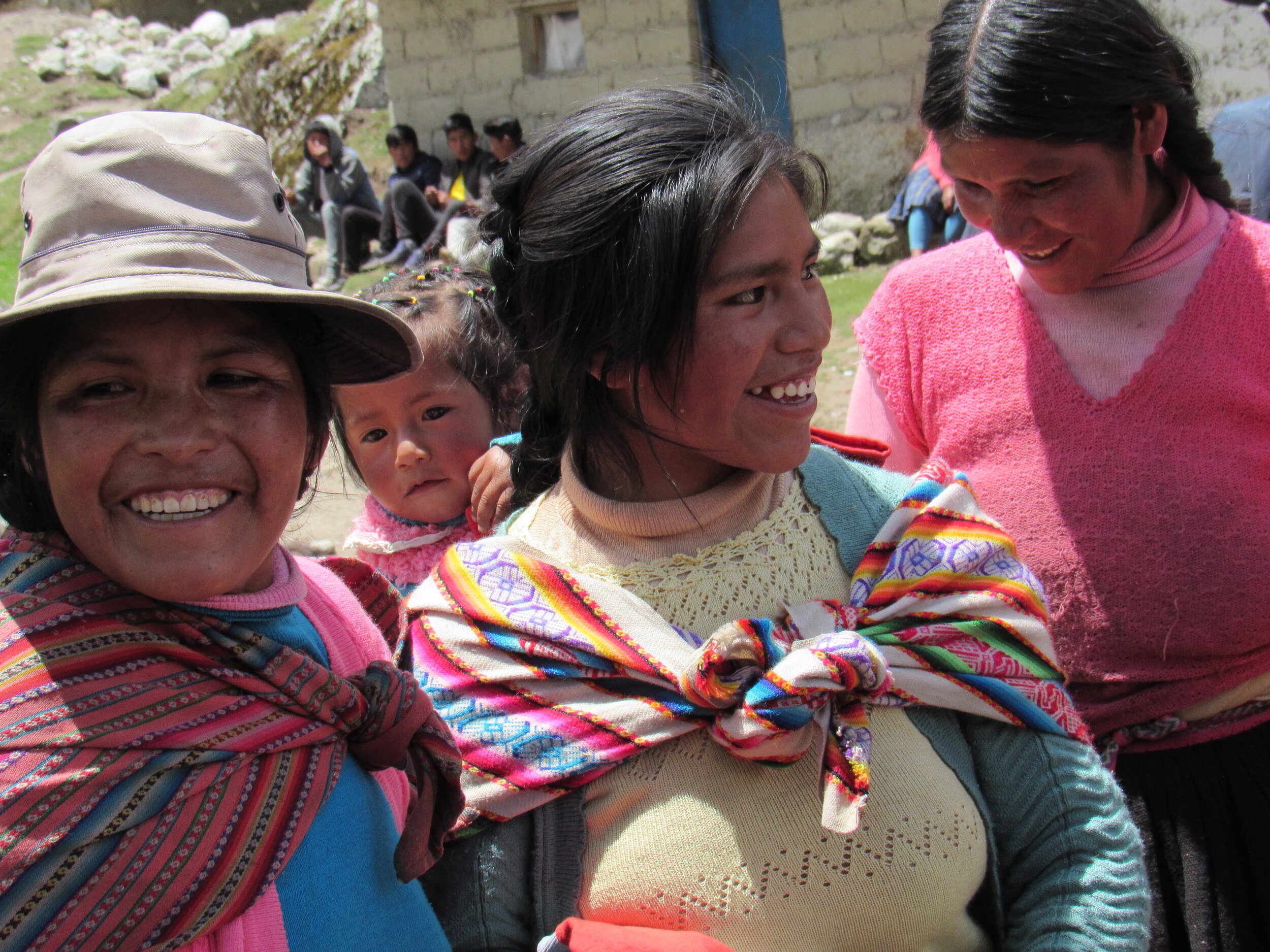
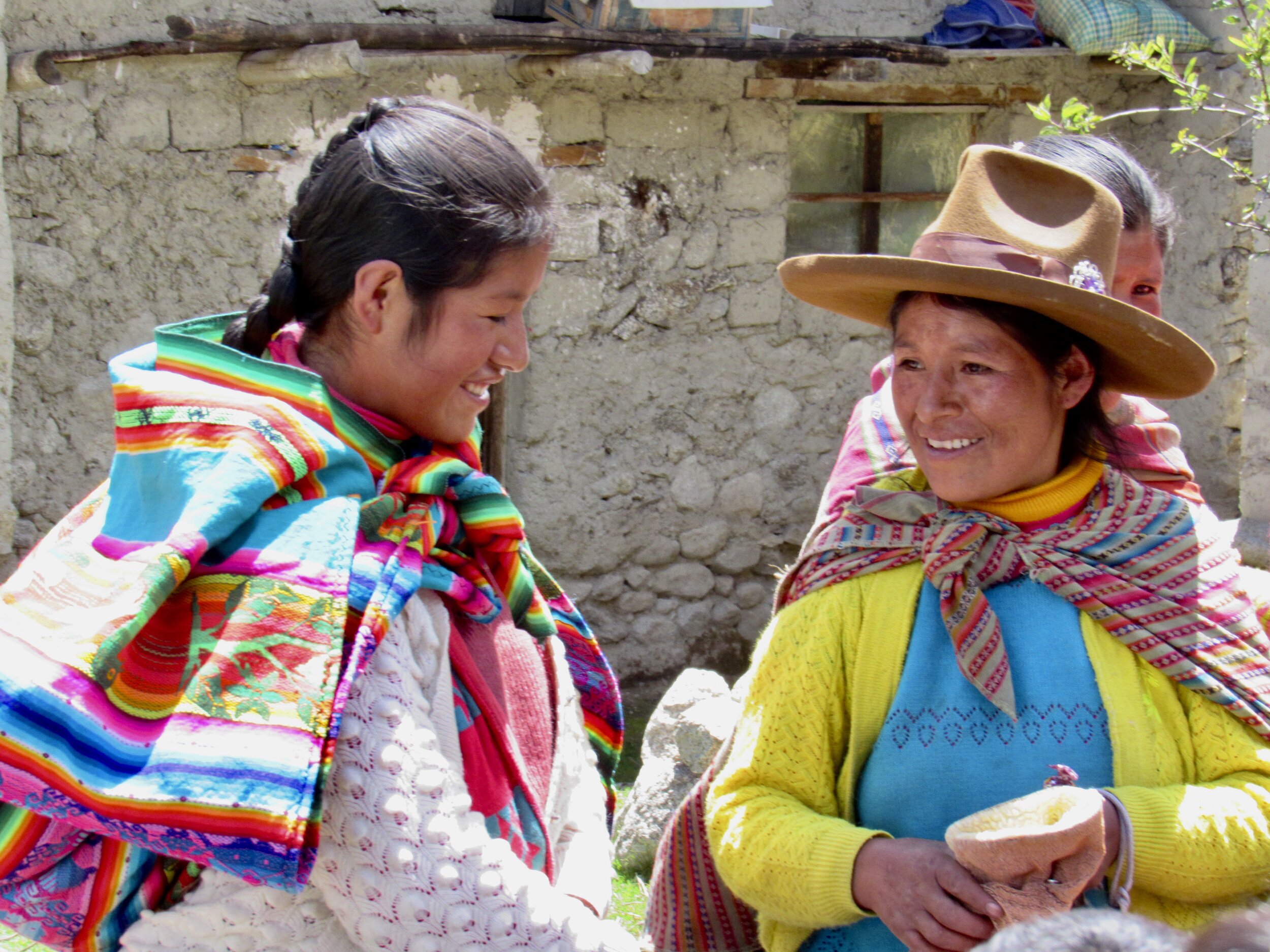
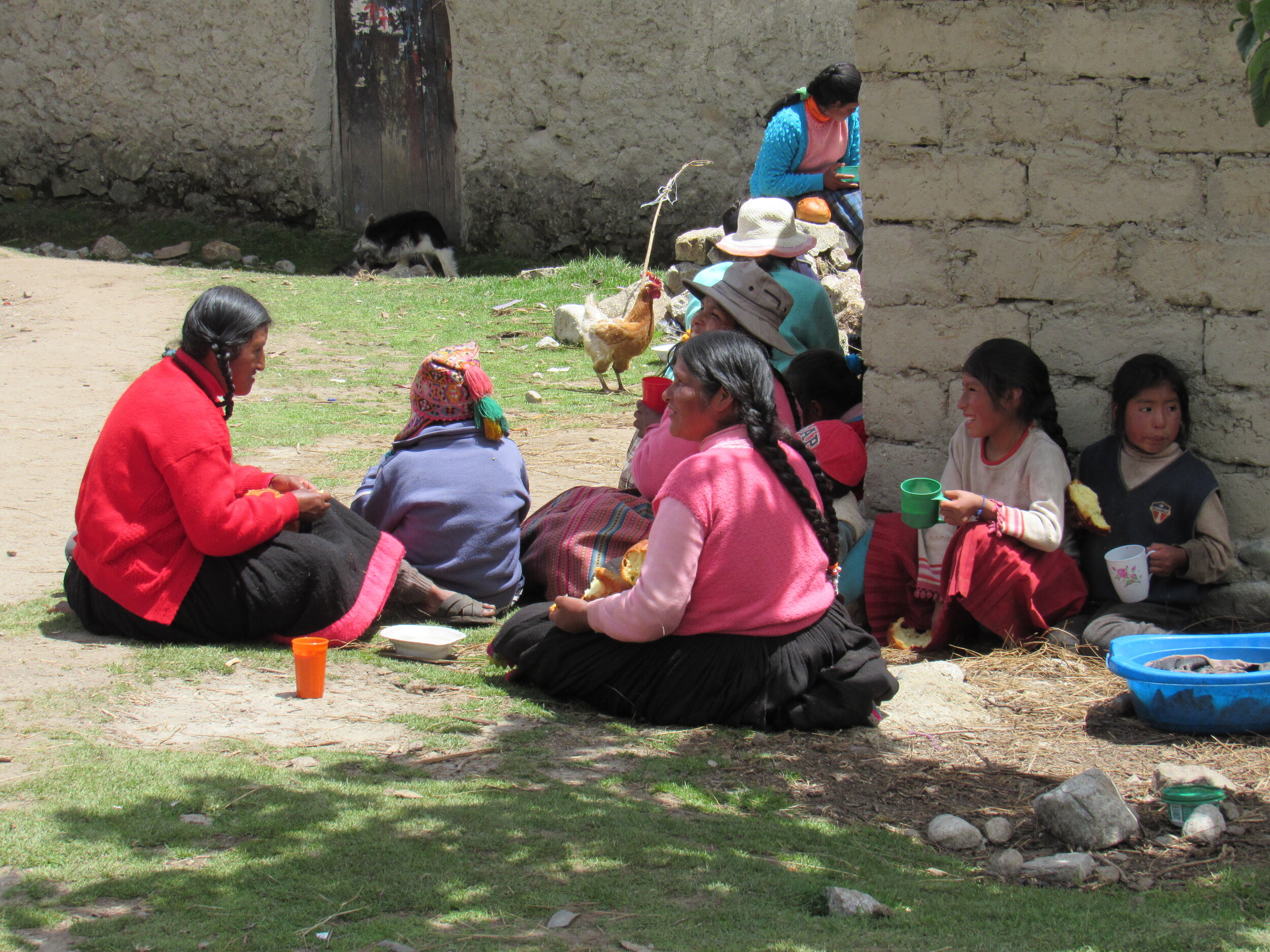
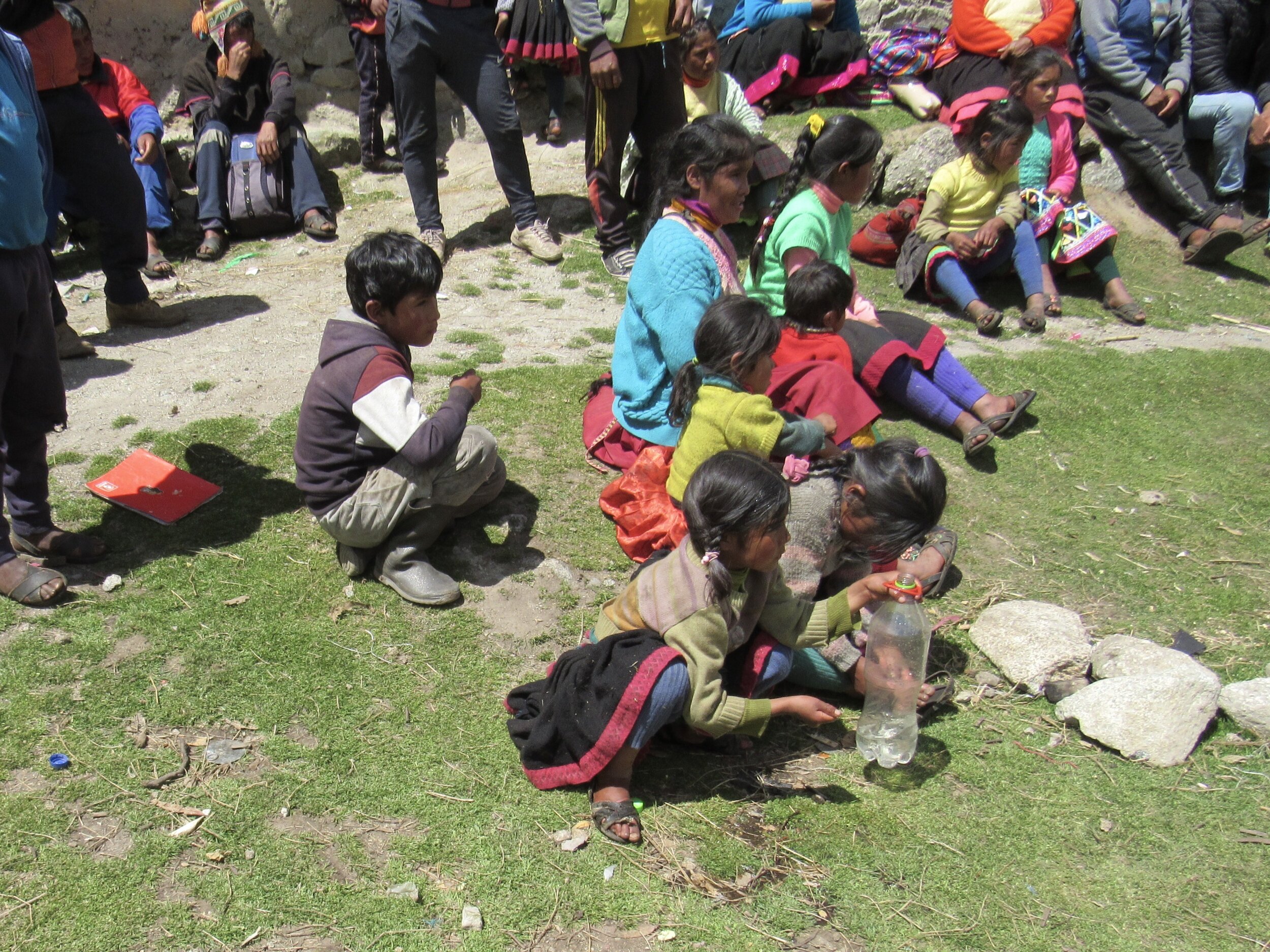
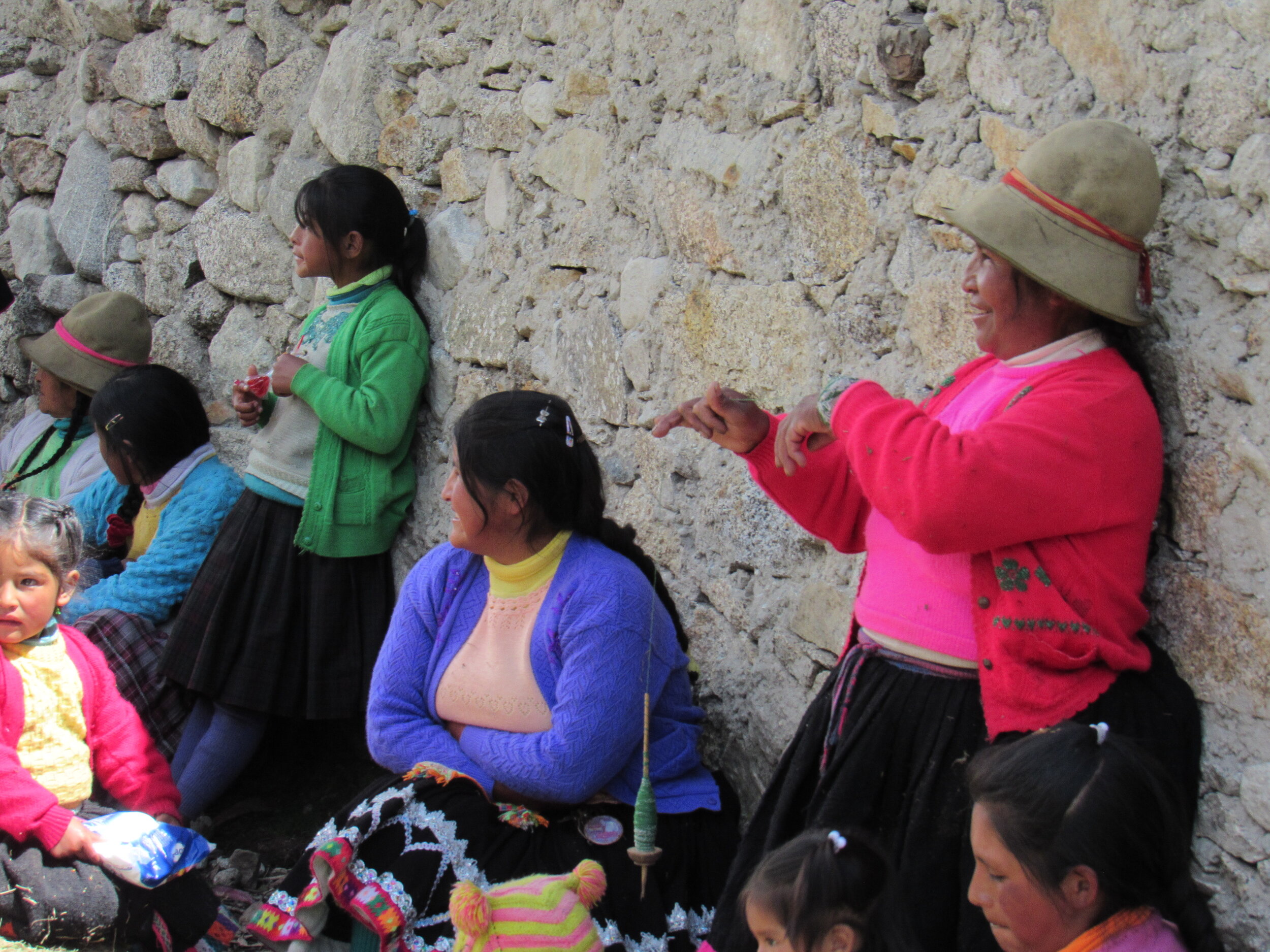
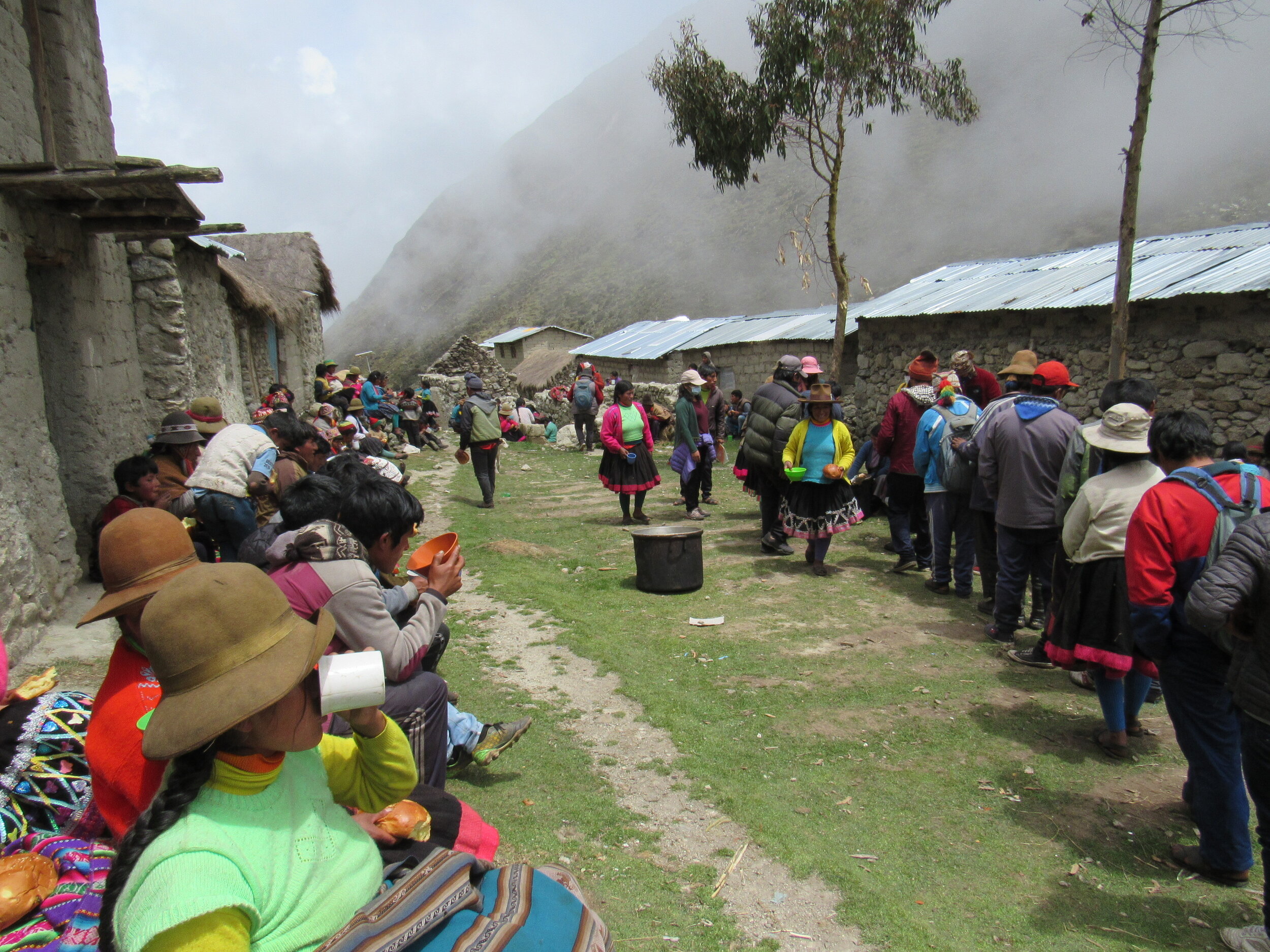
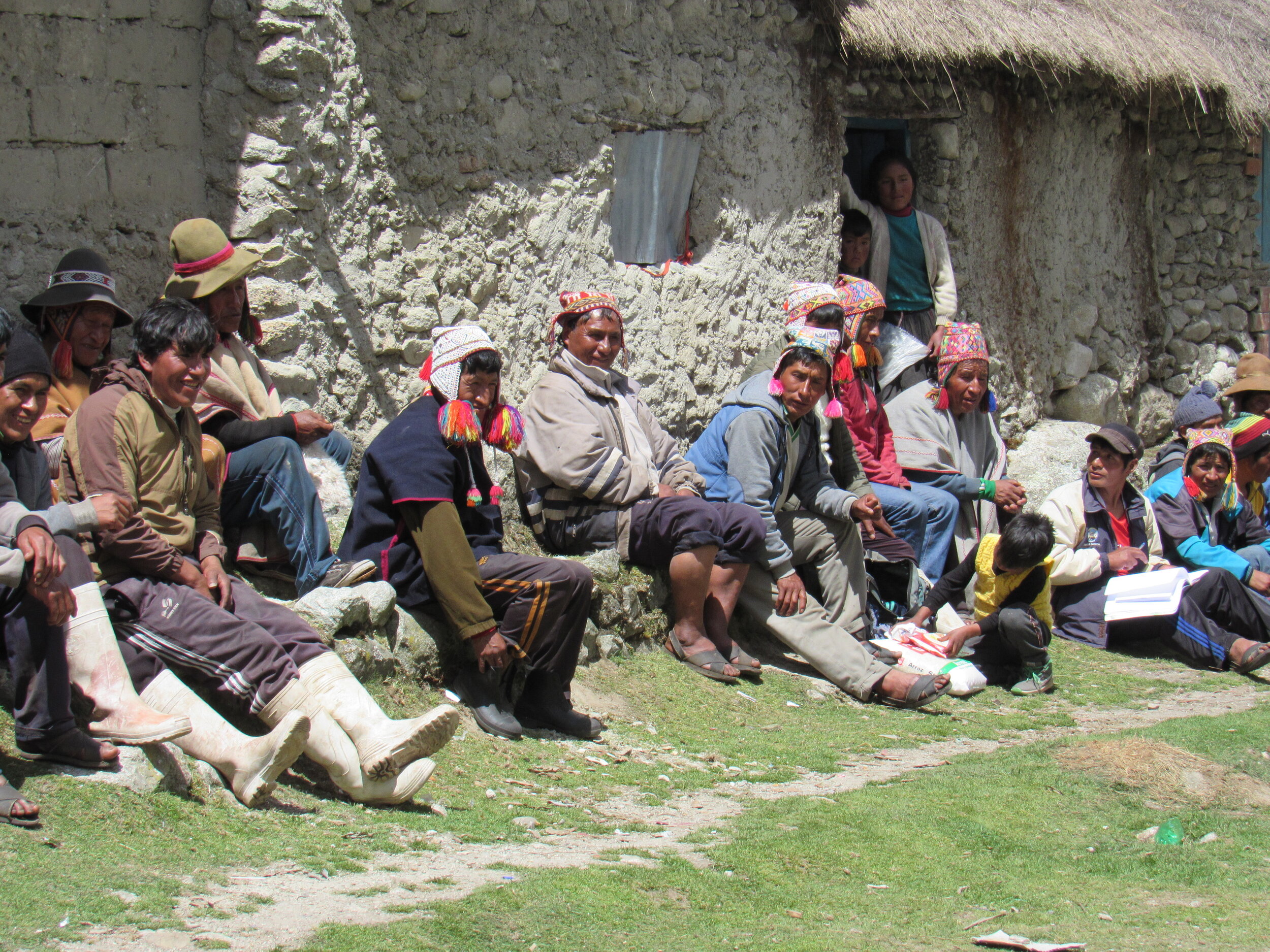
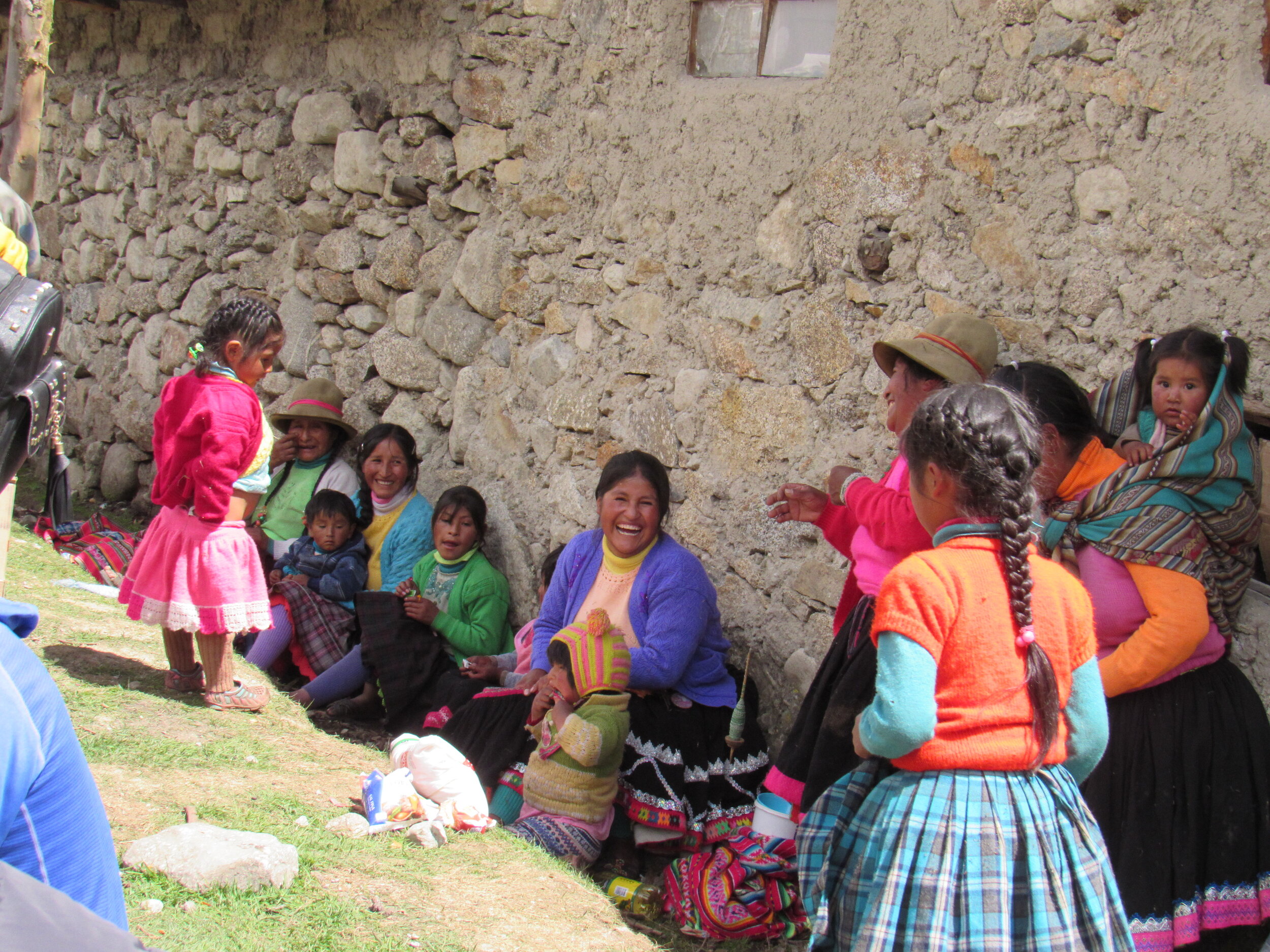
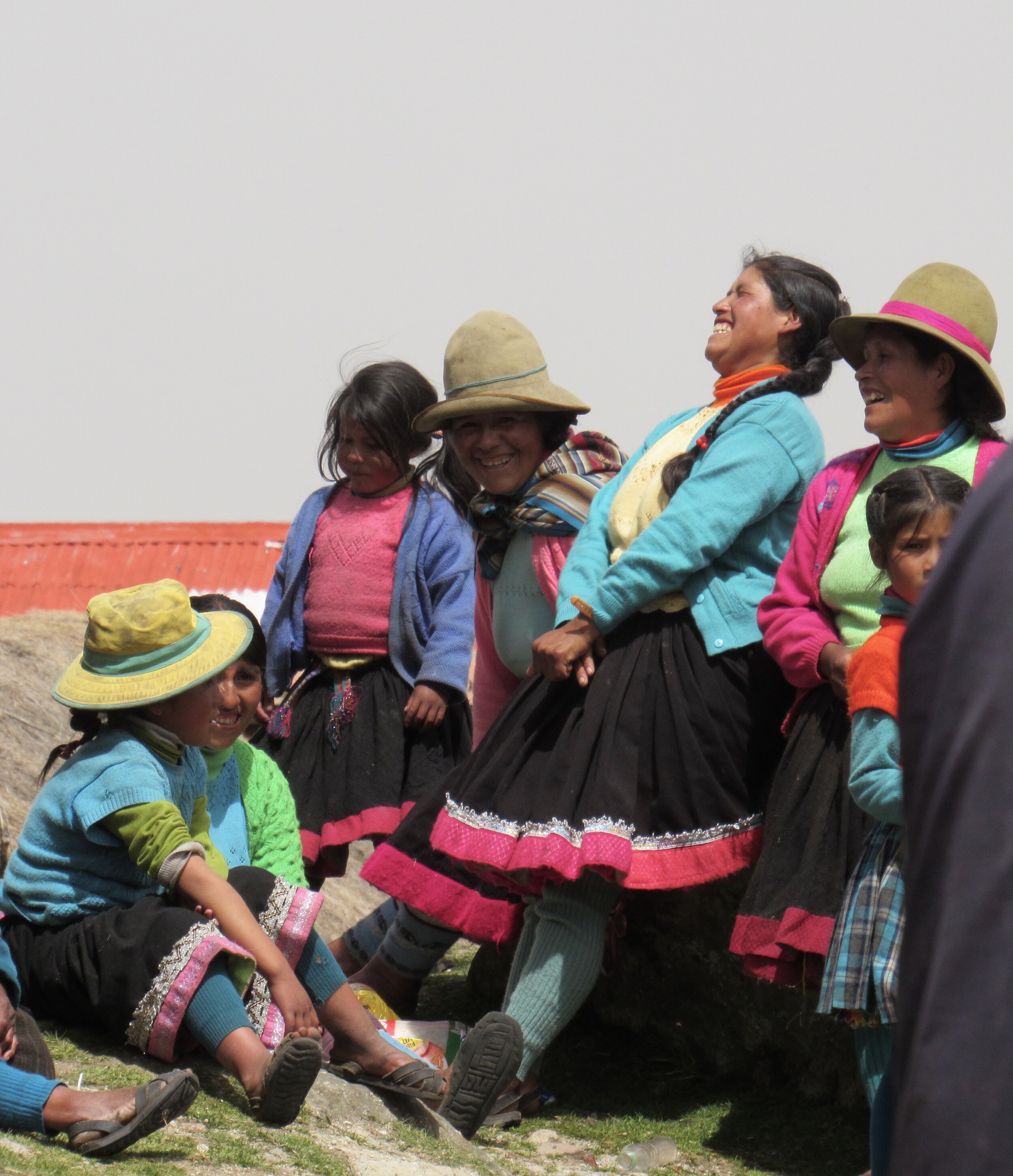
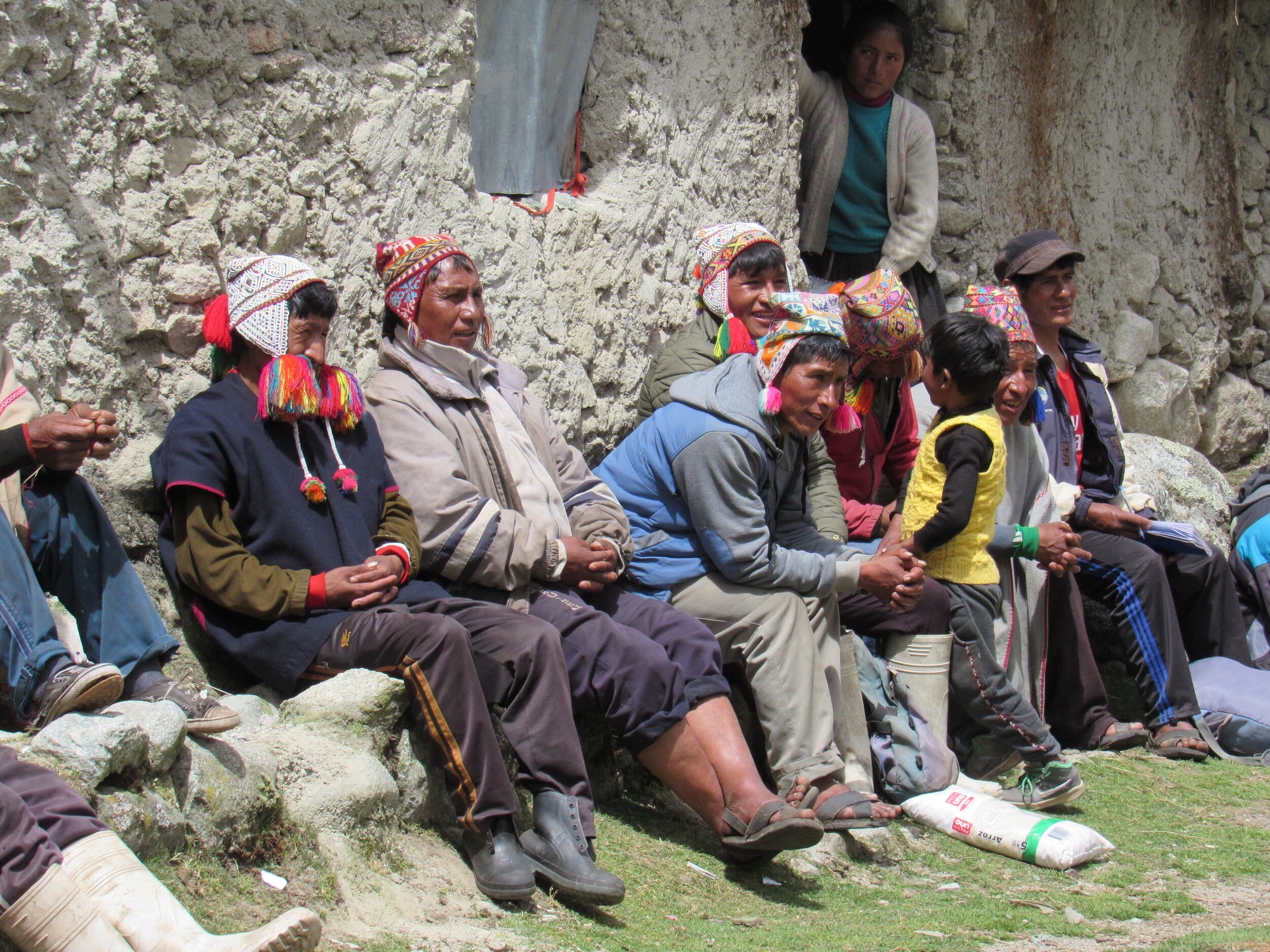
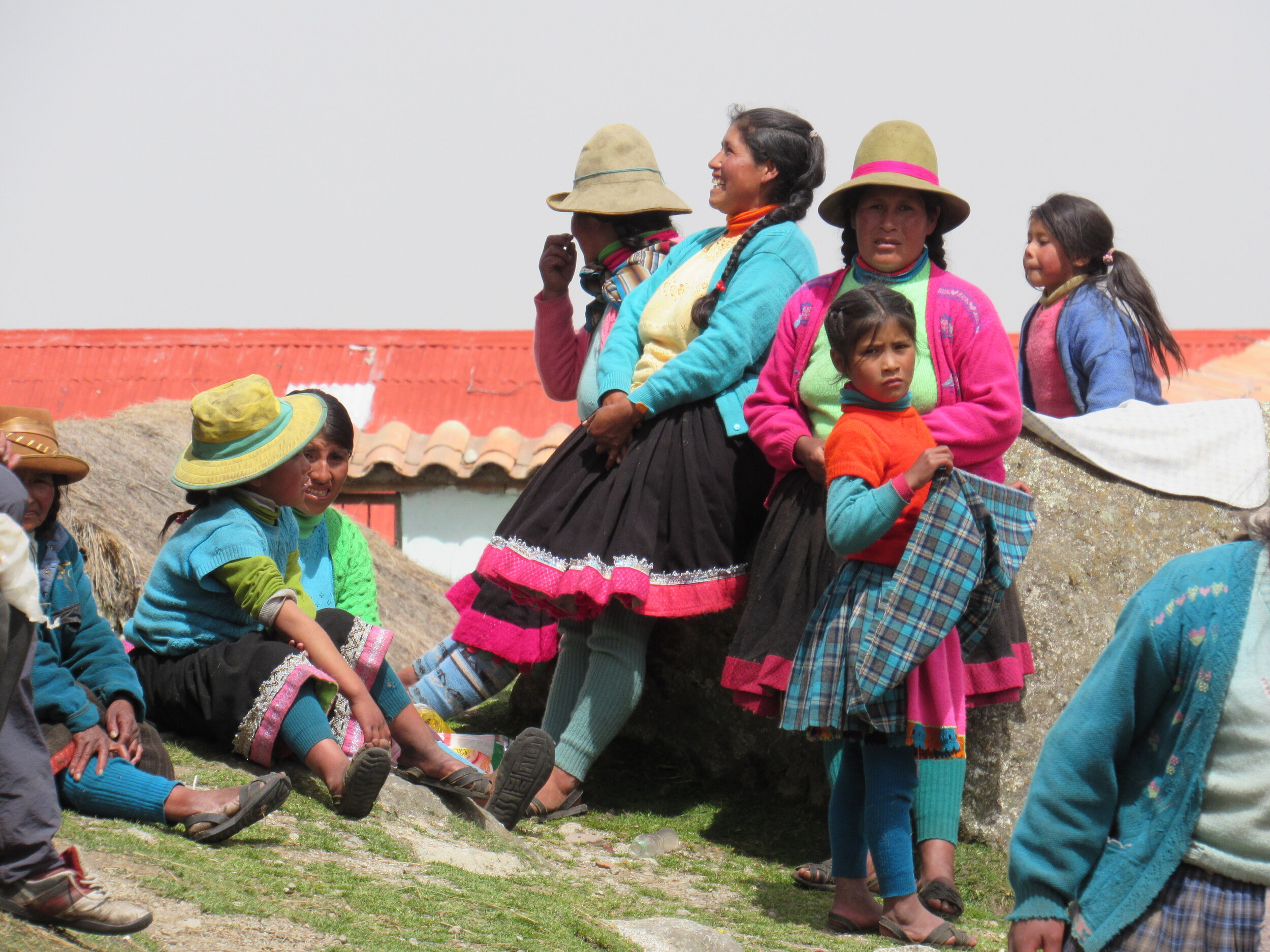
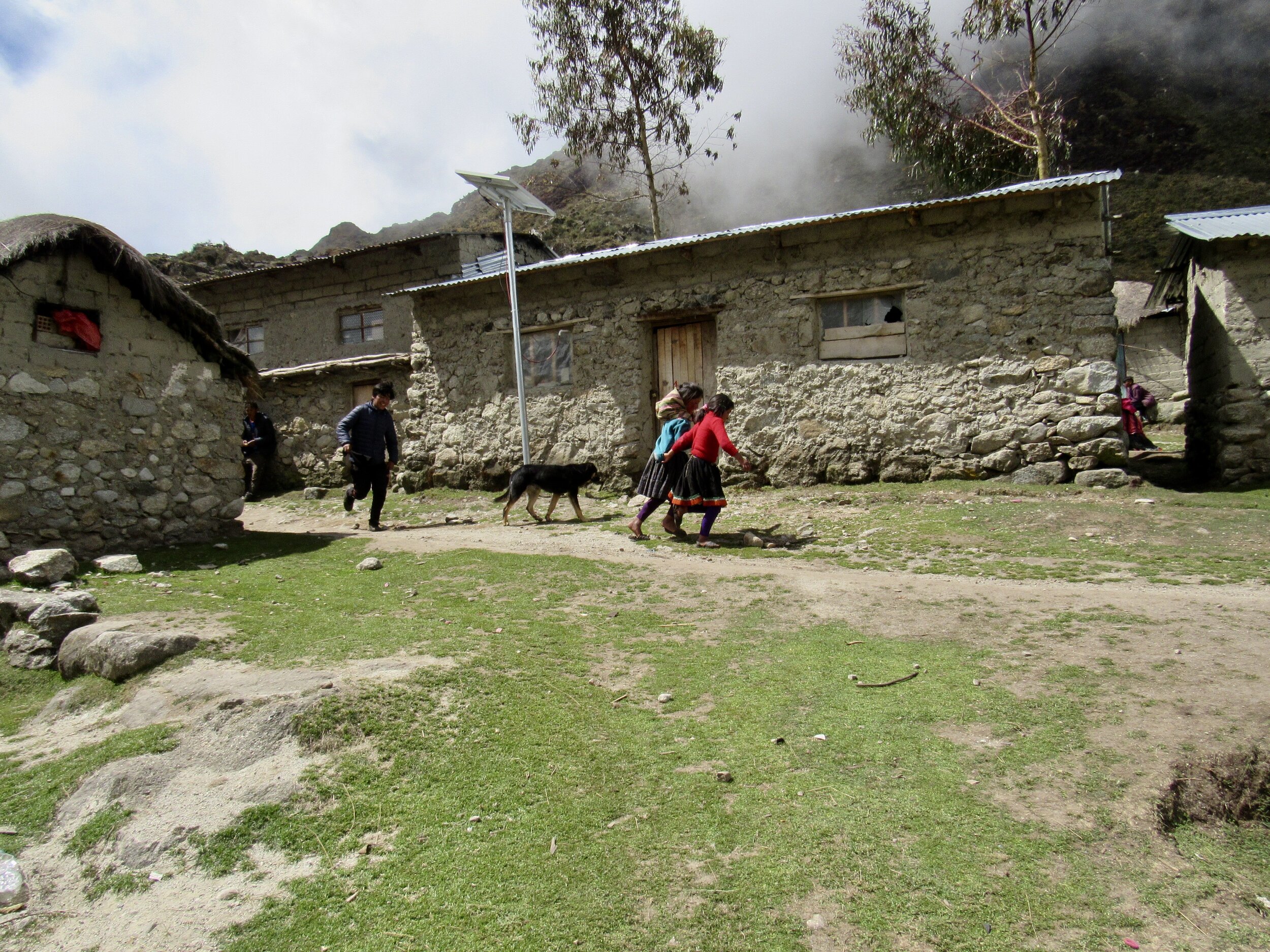
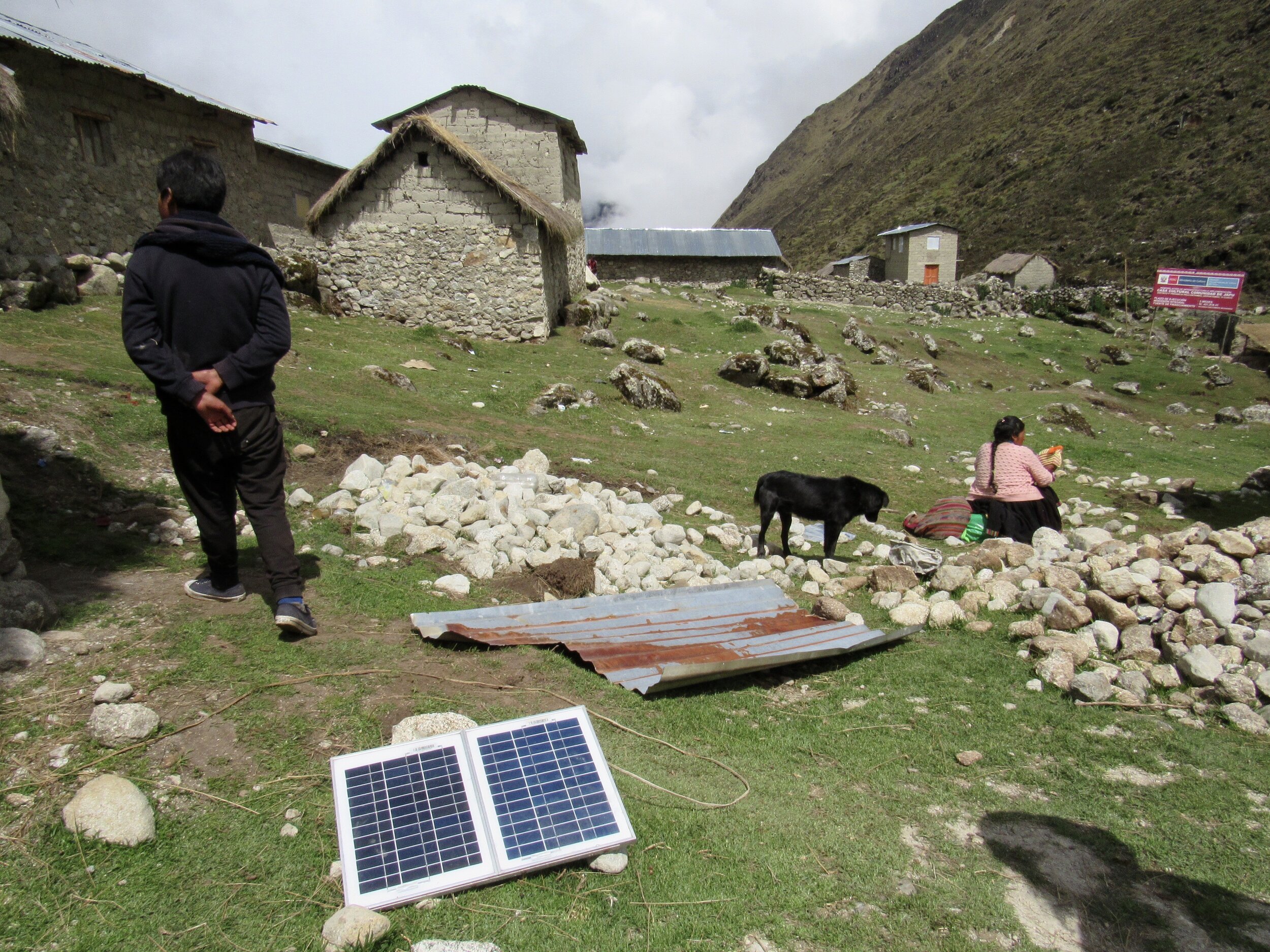
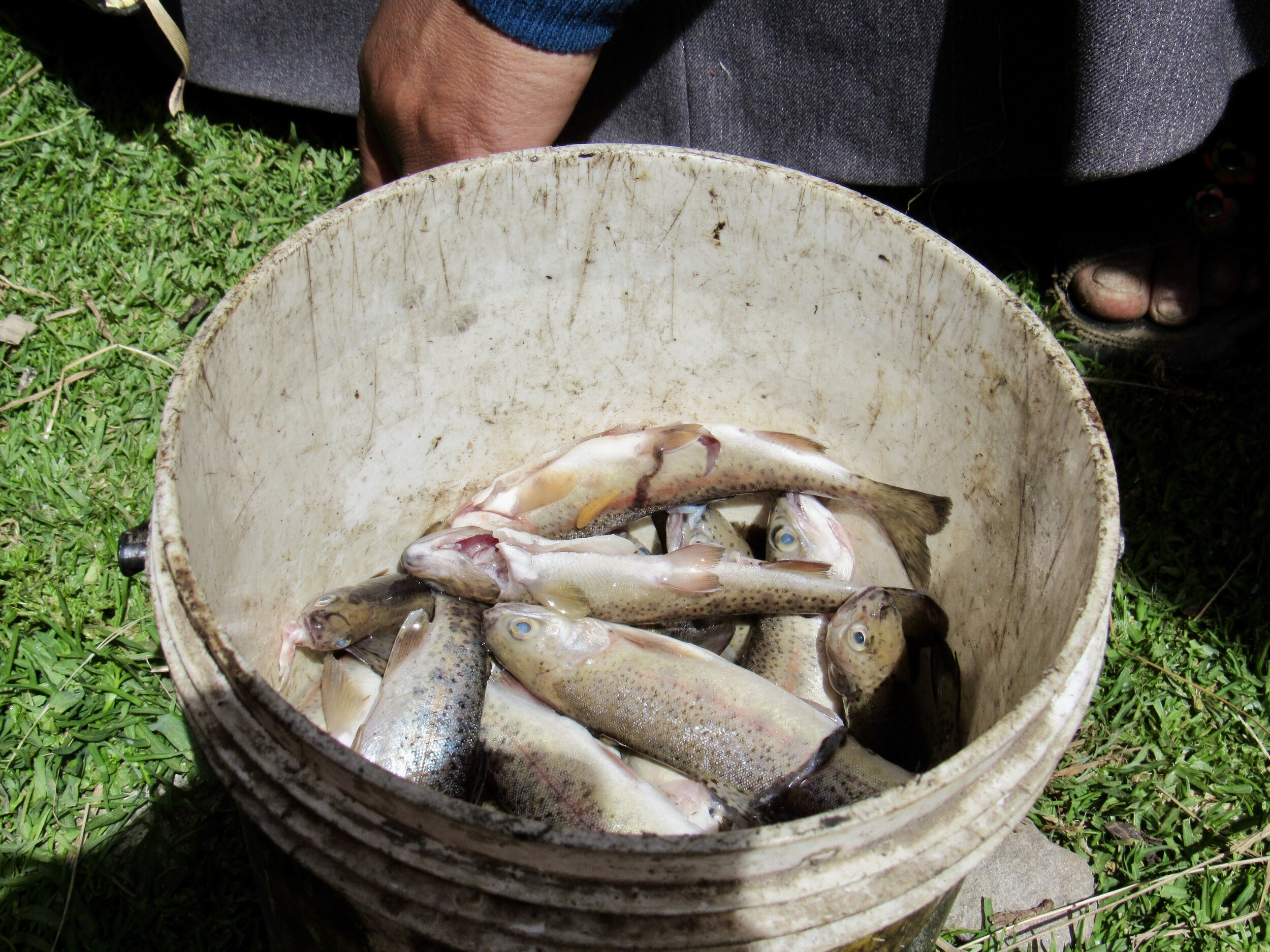
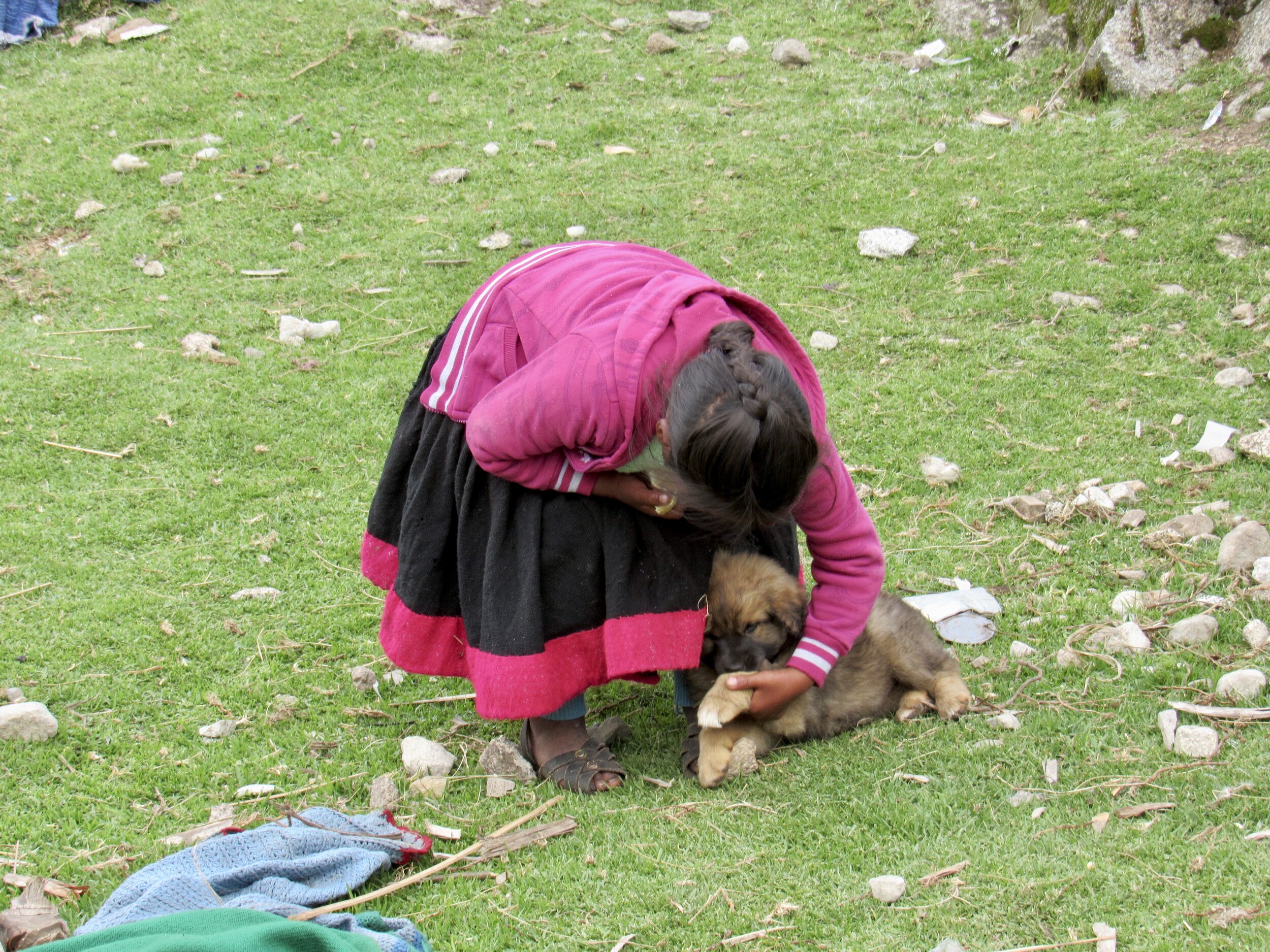
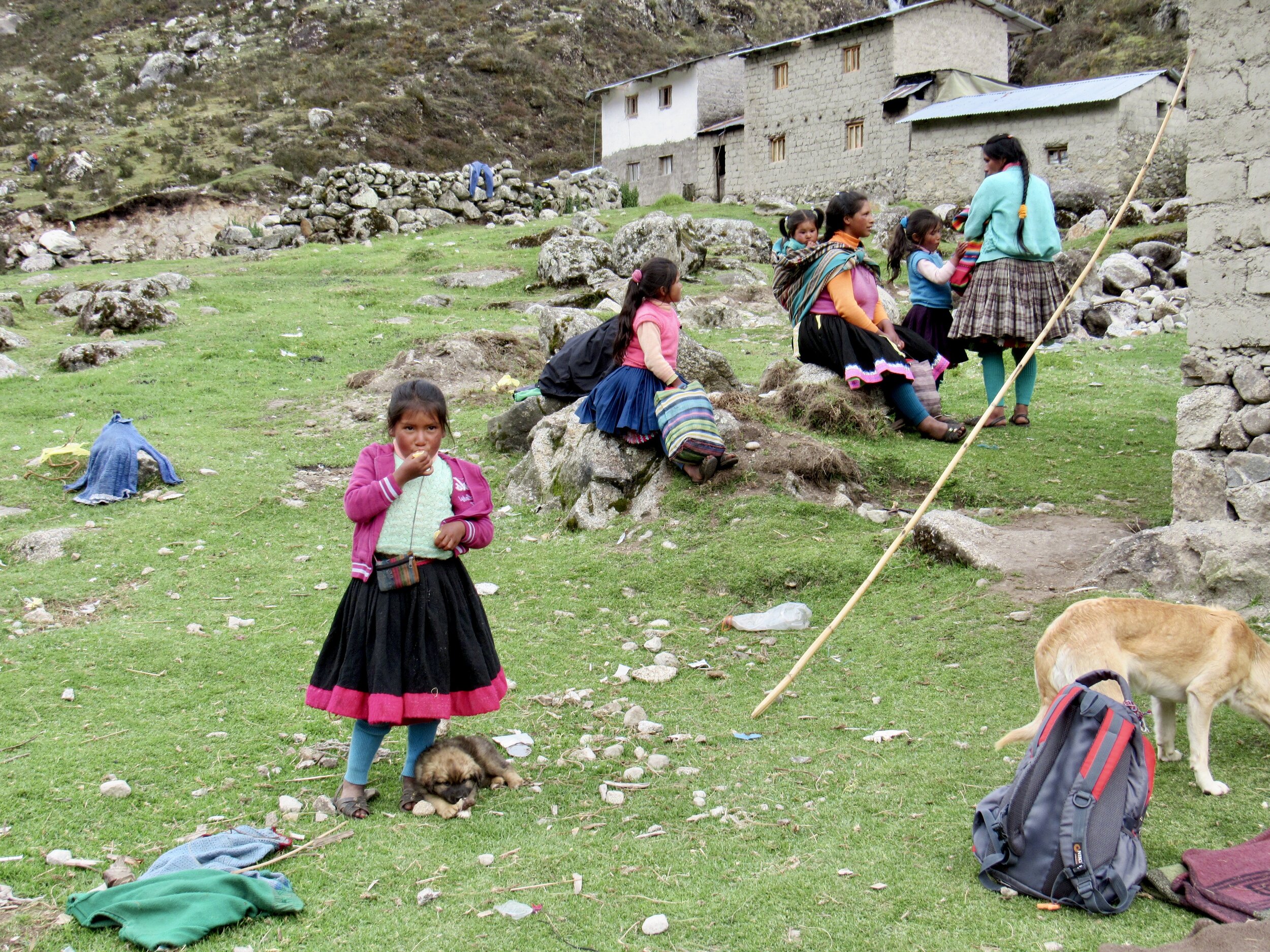
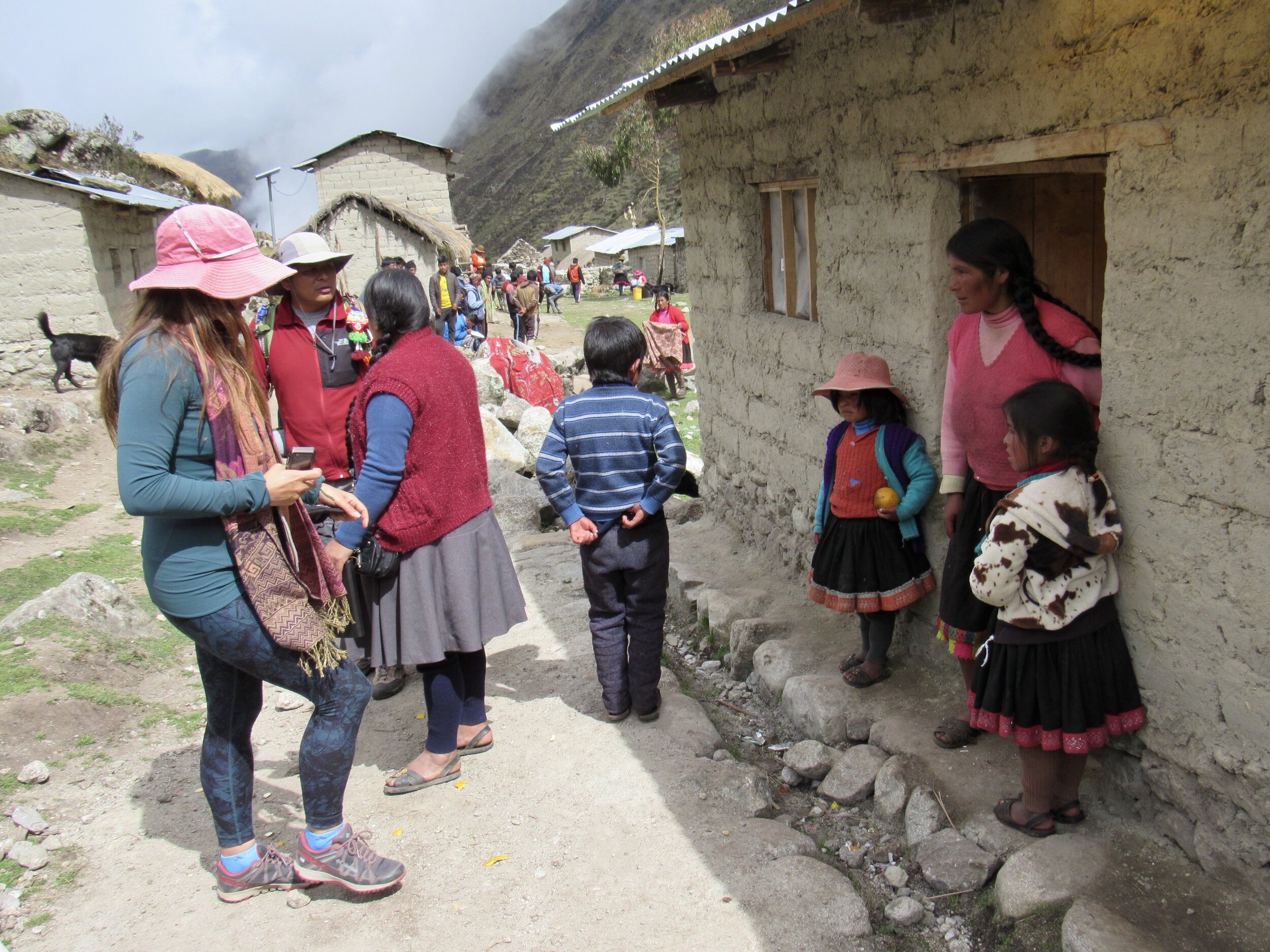
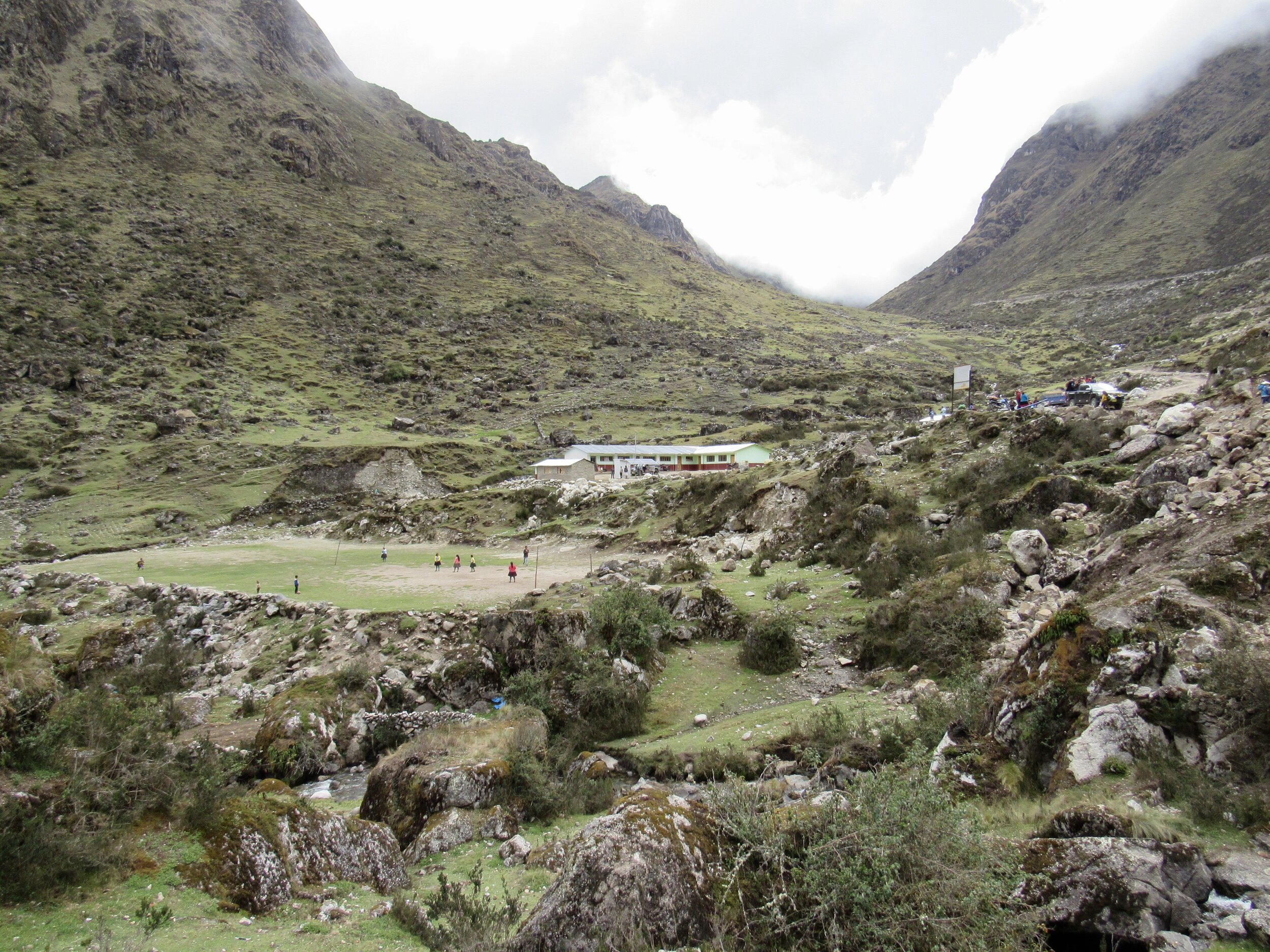
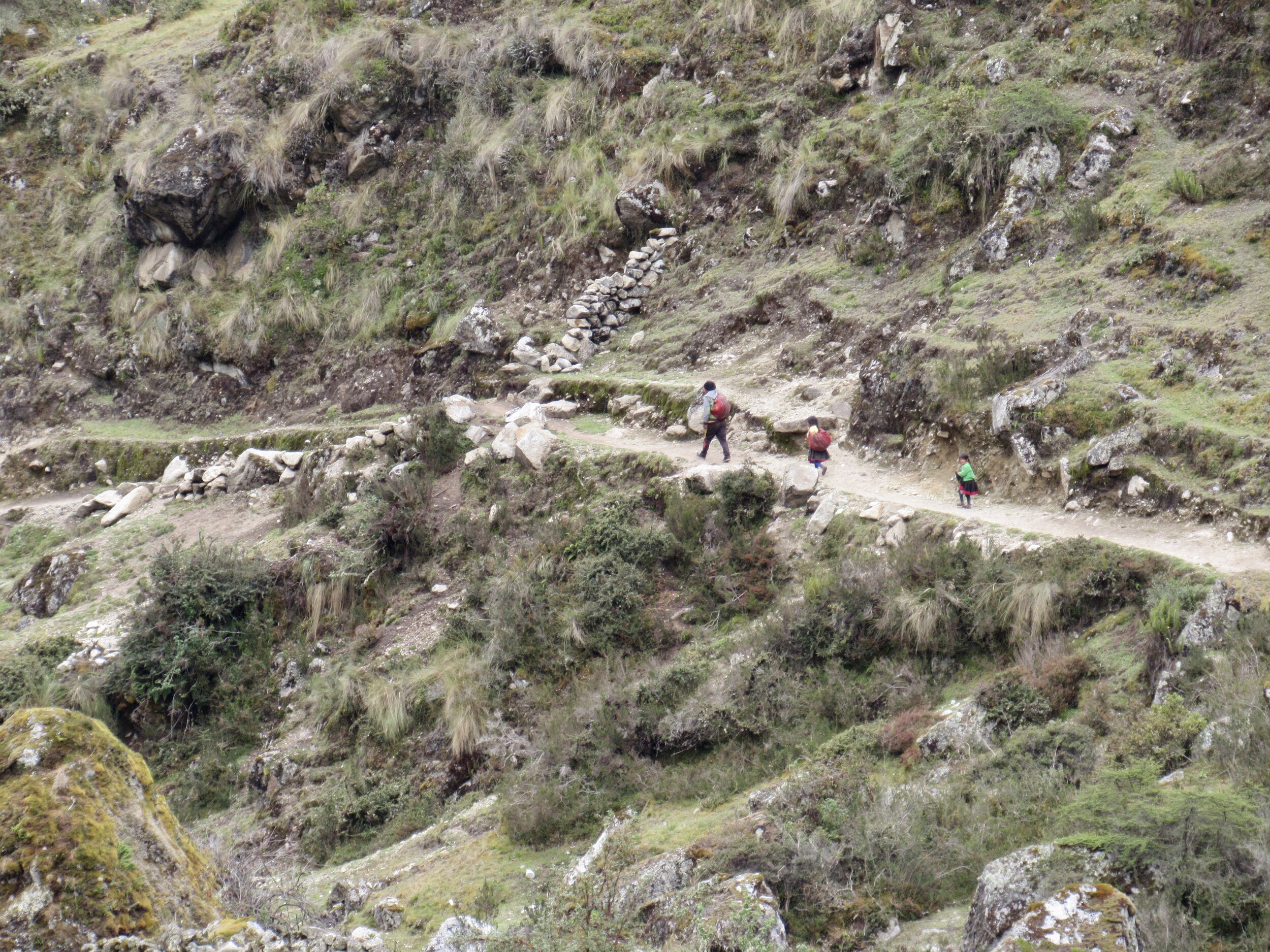
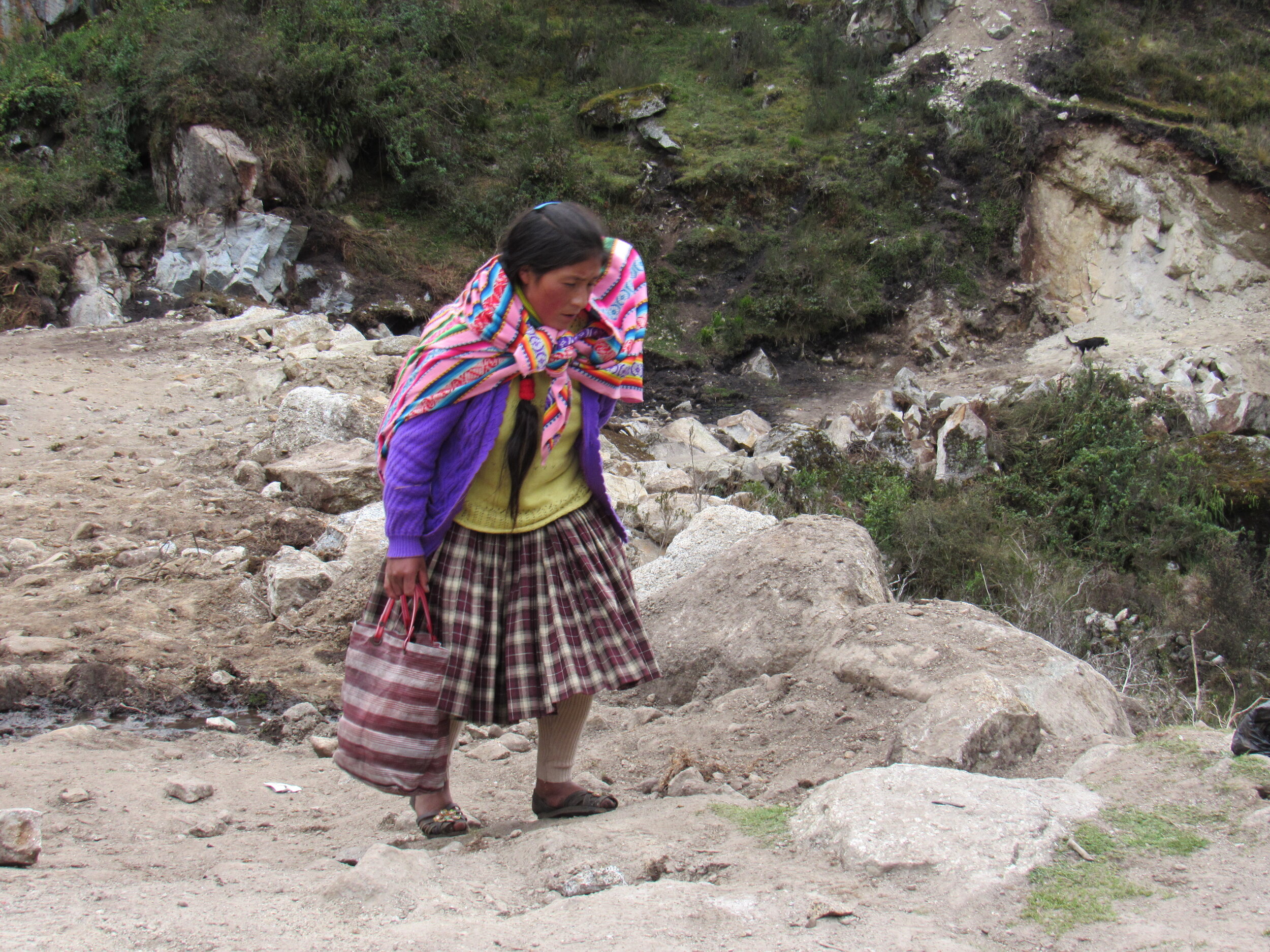
There are 80 families that live in the valley of Japu, though less than half of them live in the village. There is a school that opened over ten years ago, but it has been closed since the pandemic started. The teachers only came a few times all year, according to one of the fathers I asked. There is no healthcare available in Japu and the road to the nearest town with a government clinic is at least three hours away in the town of Ocongate. The people of Japu are farmers but at their altitude of over 4,000 meters, the only crop that will grow is potatoes. They also have beautiful streams and eat trout. They shared some boiled potatoes and fried trout with us after the event. Today’s event had four stages: clothes for kids, chocolatada, food distribution and a final frenzy for oranges.
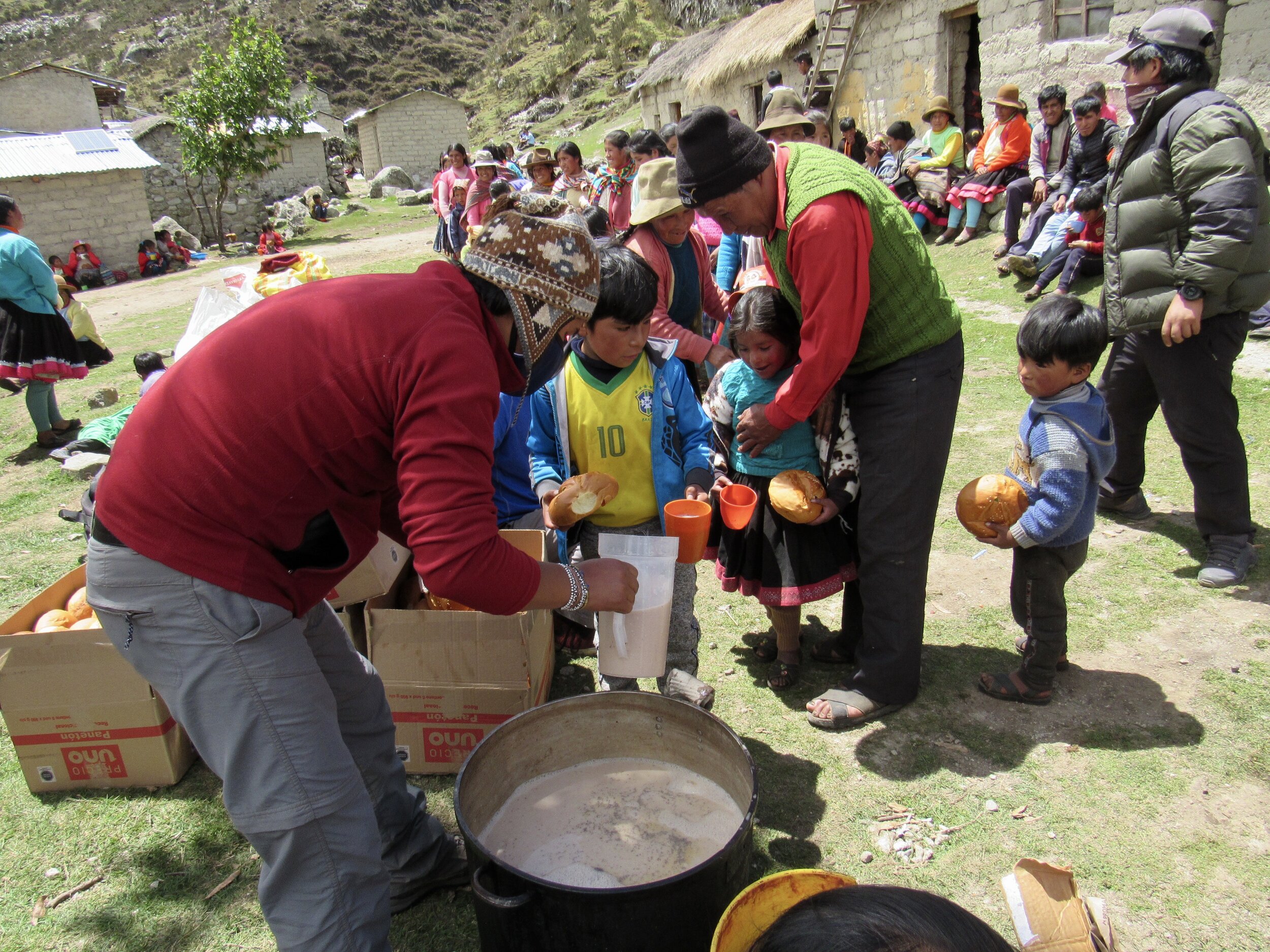
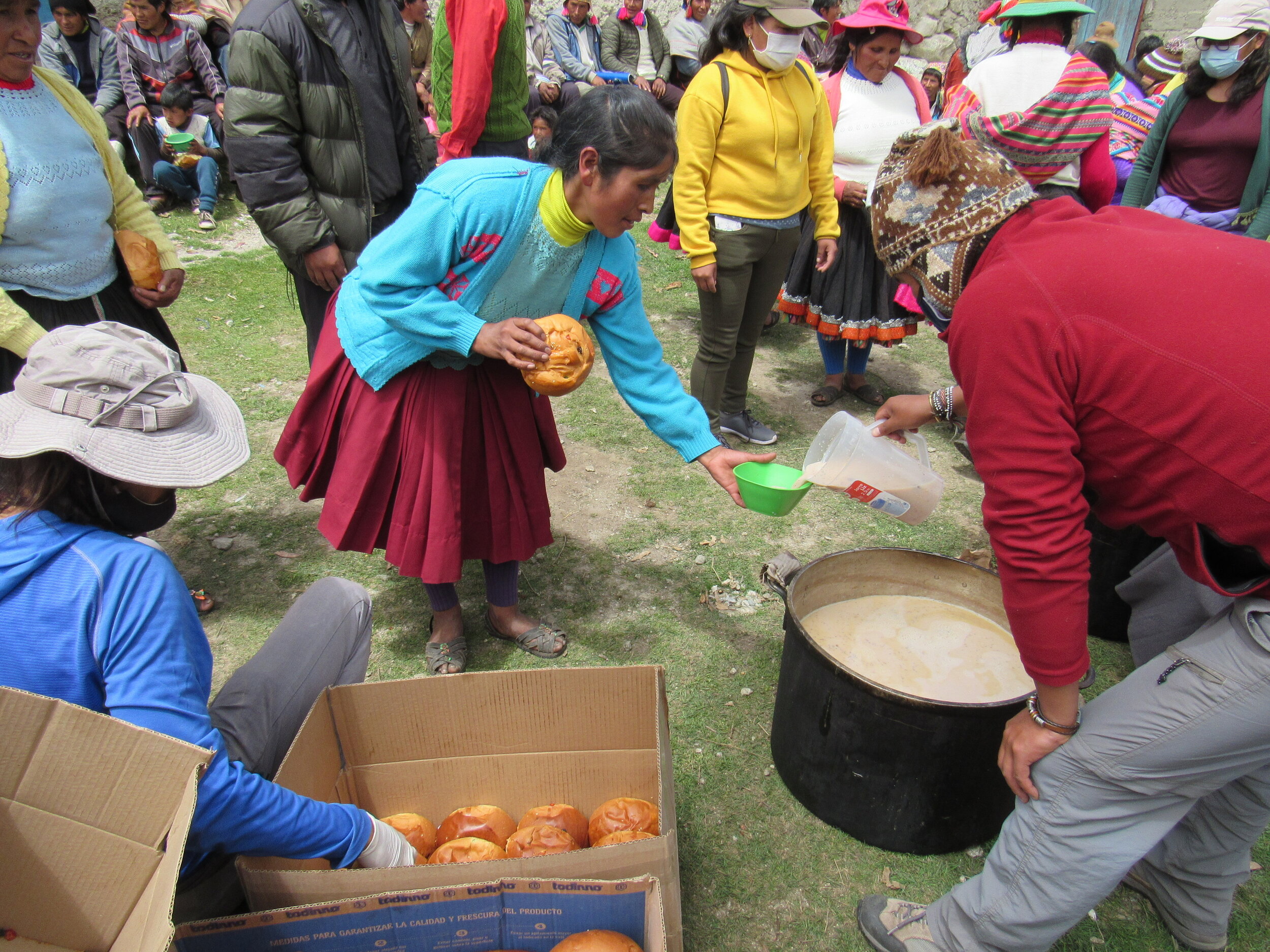
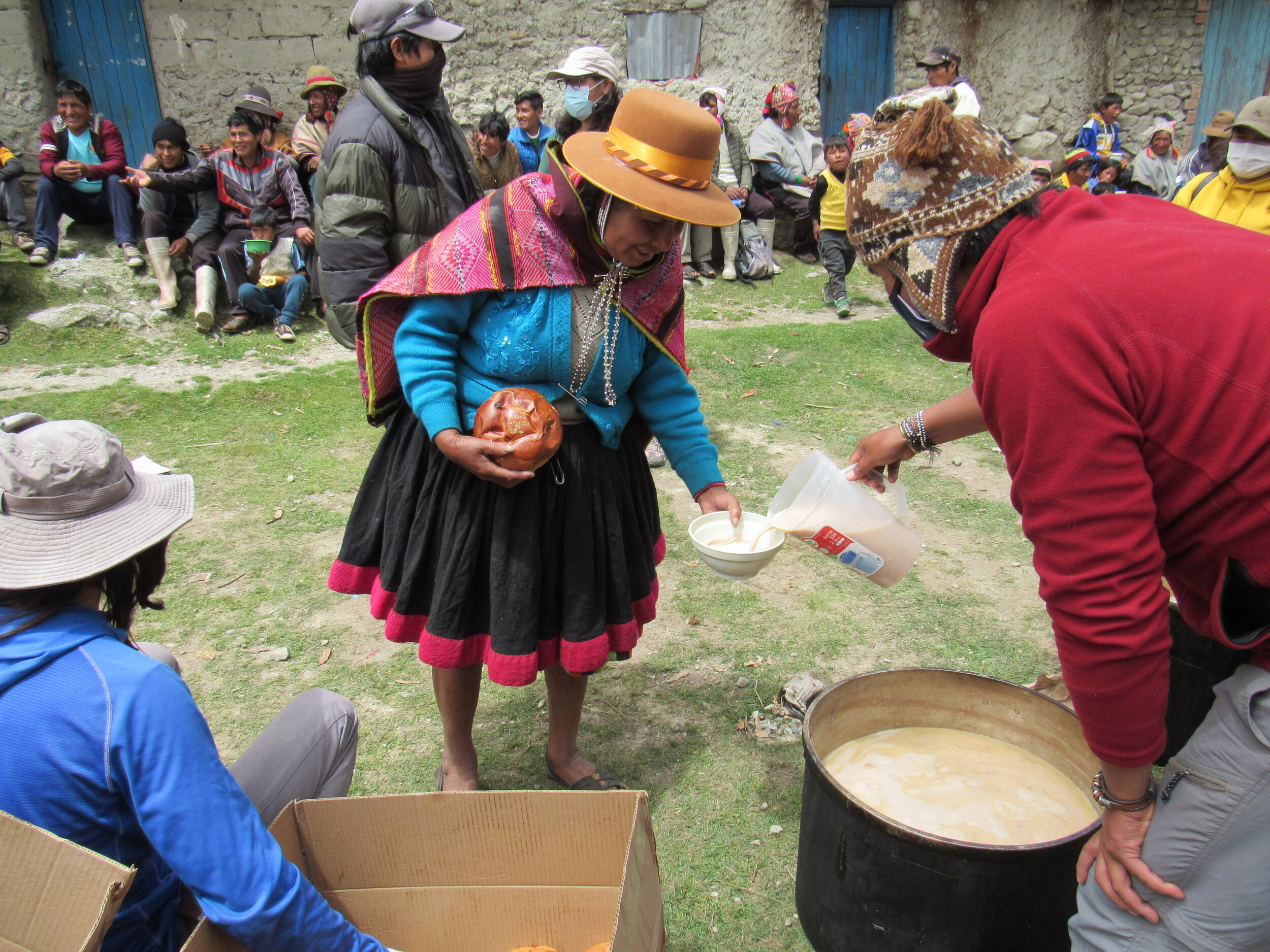
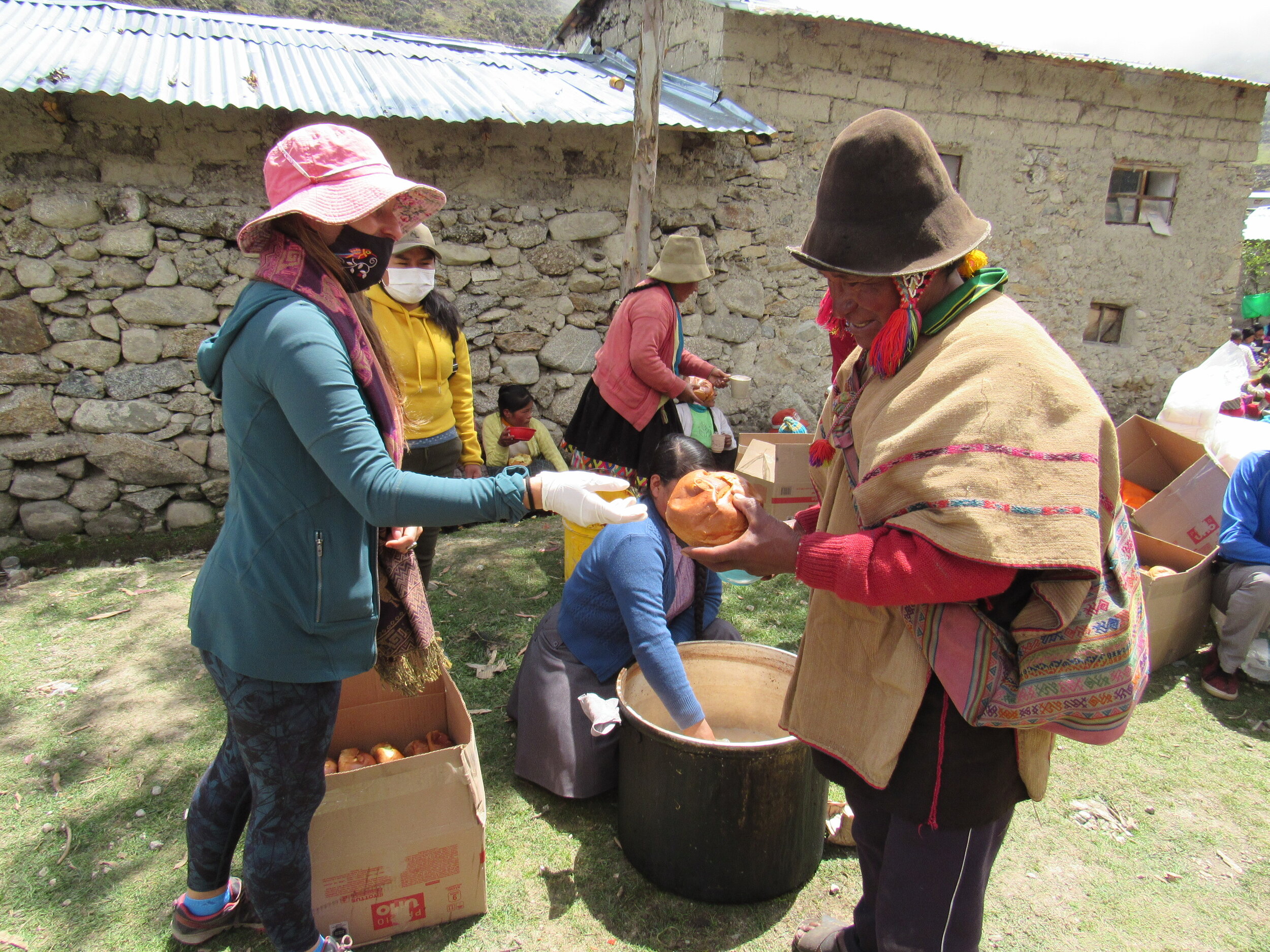
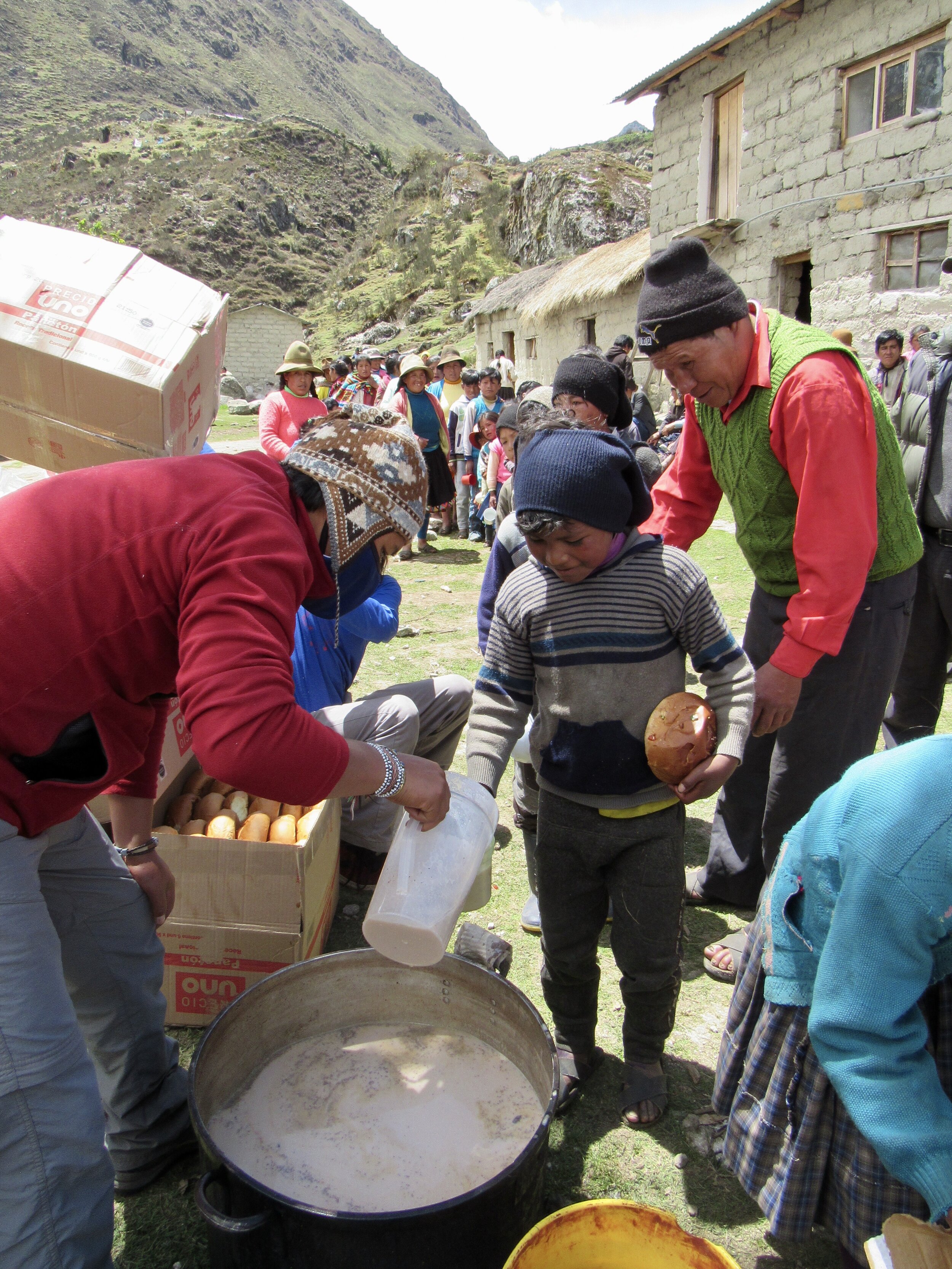
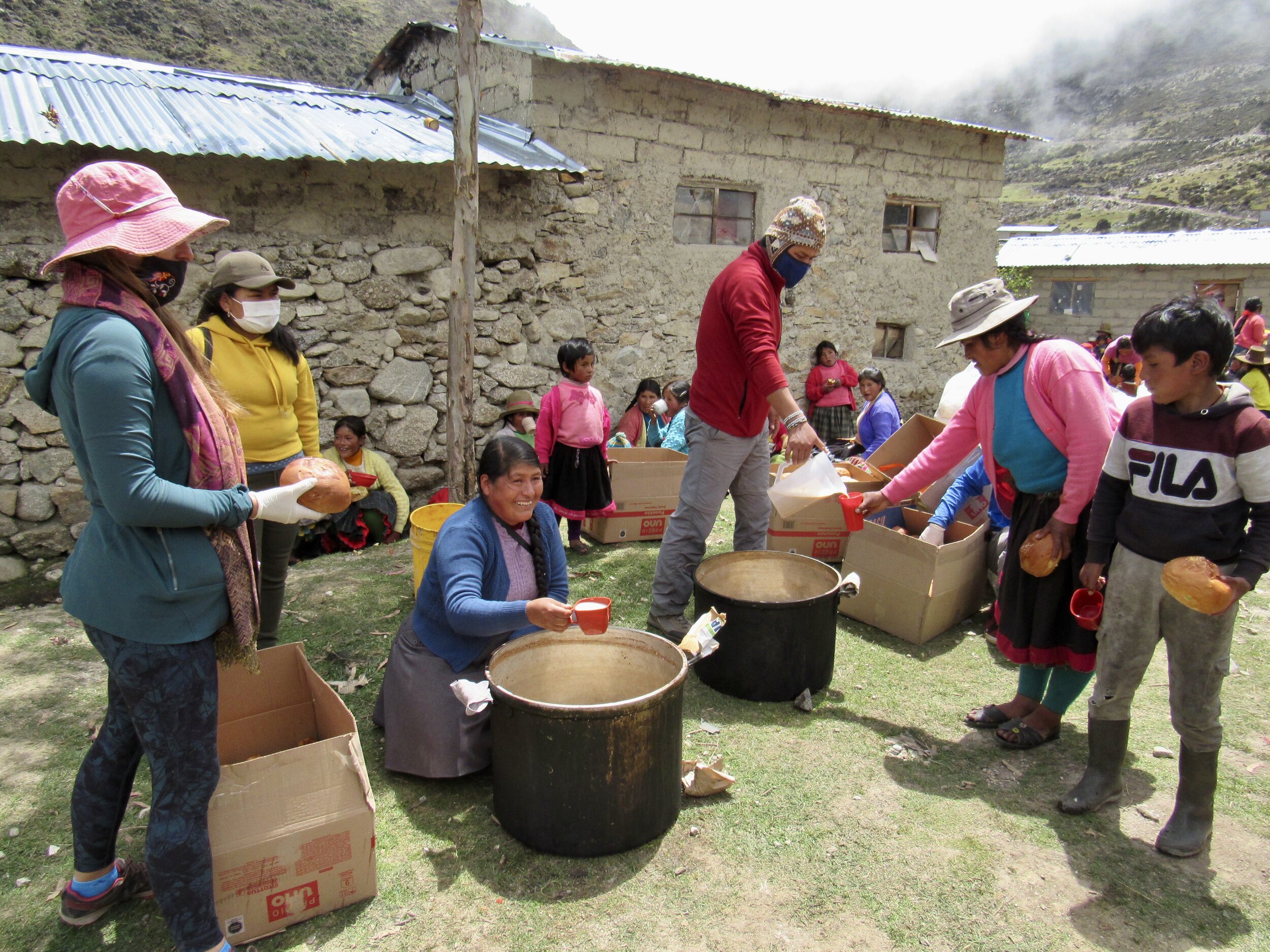
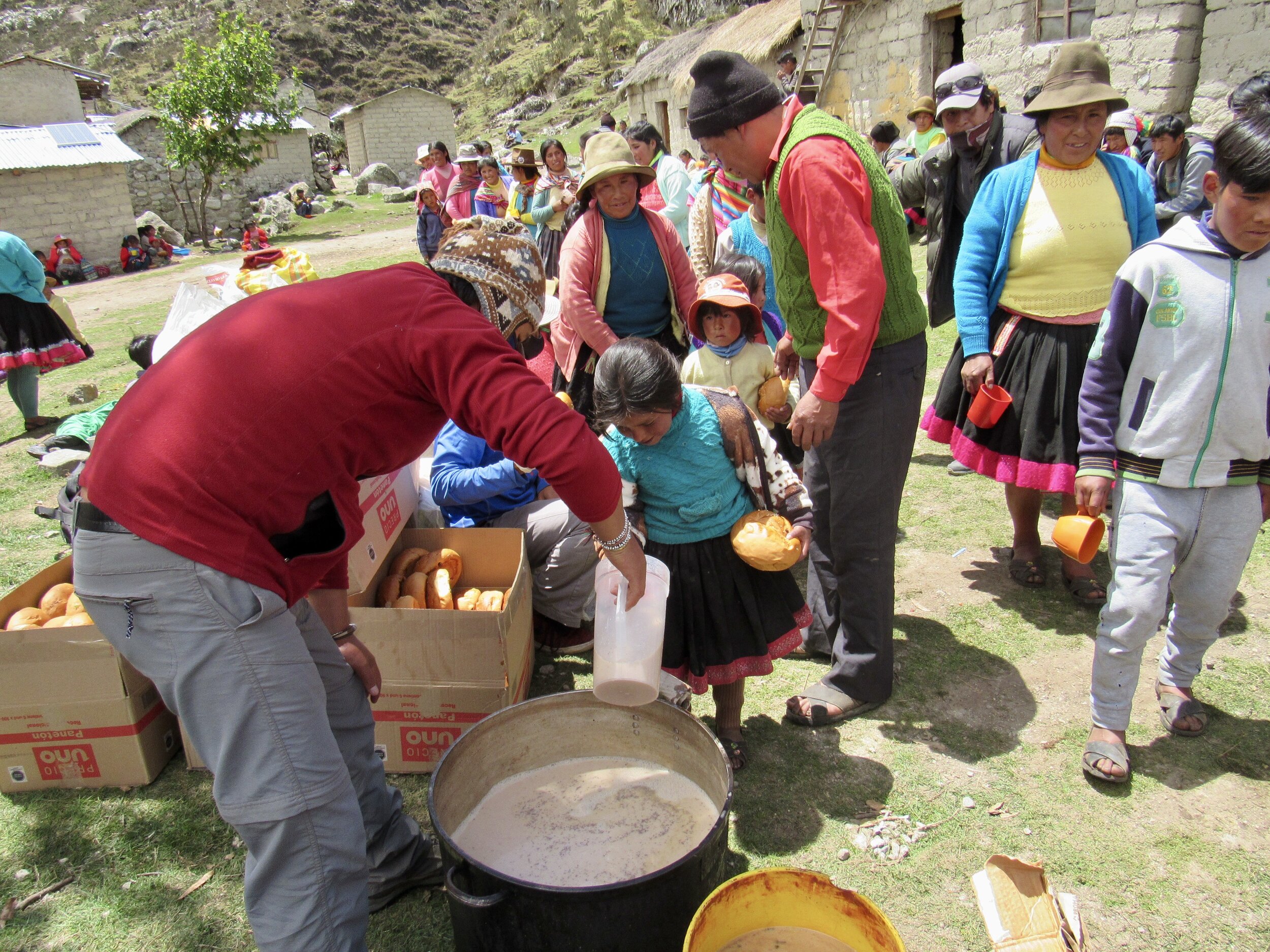
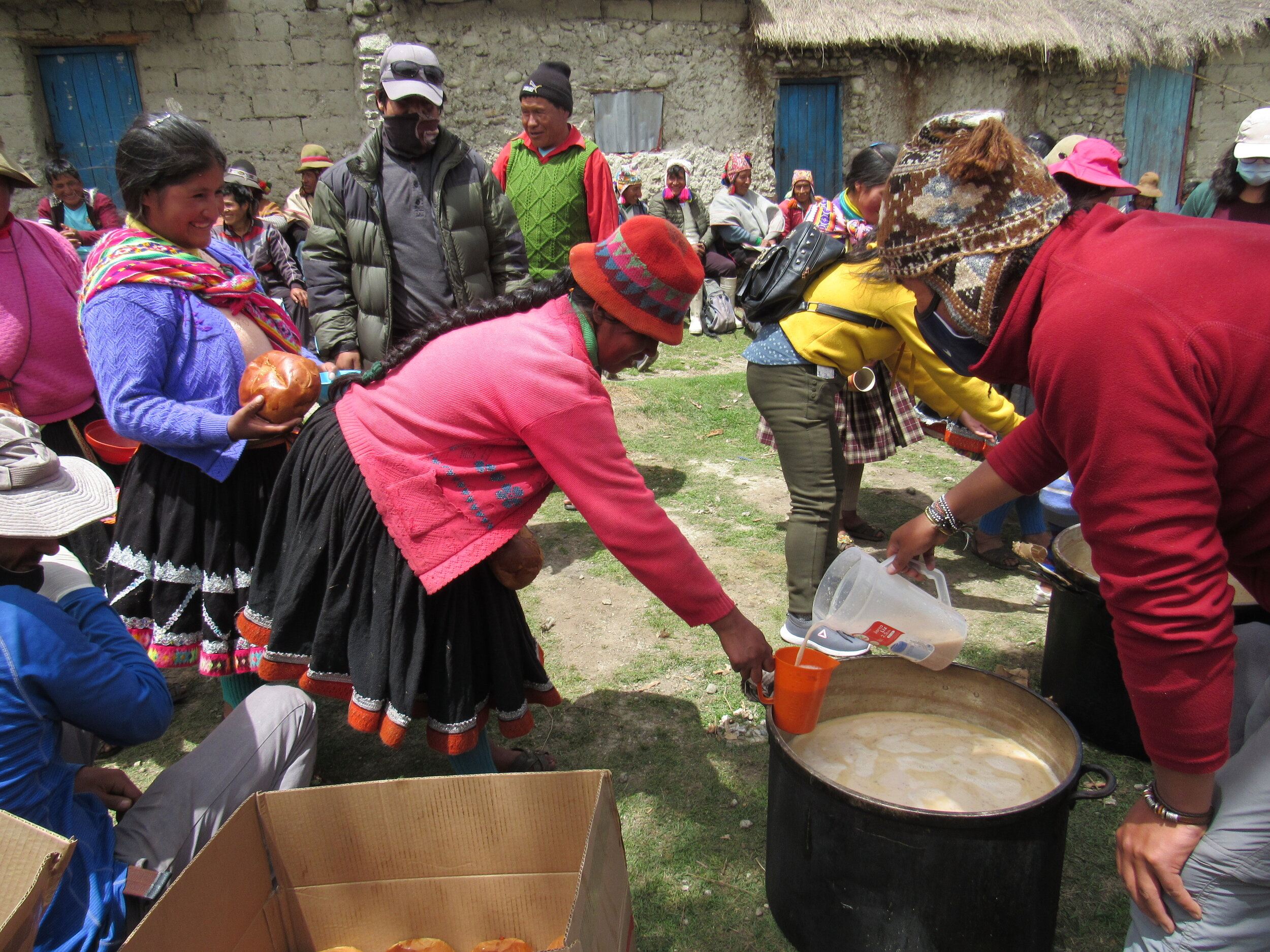
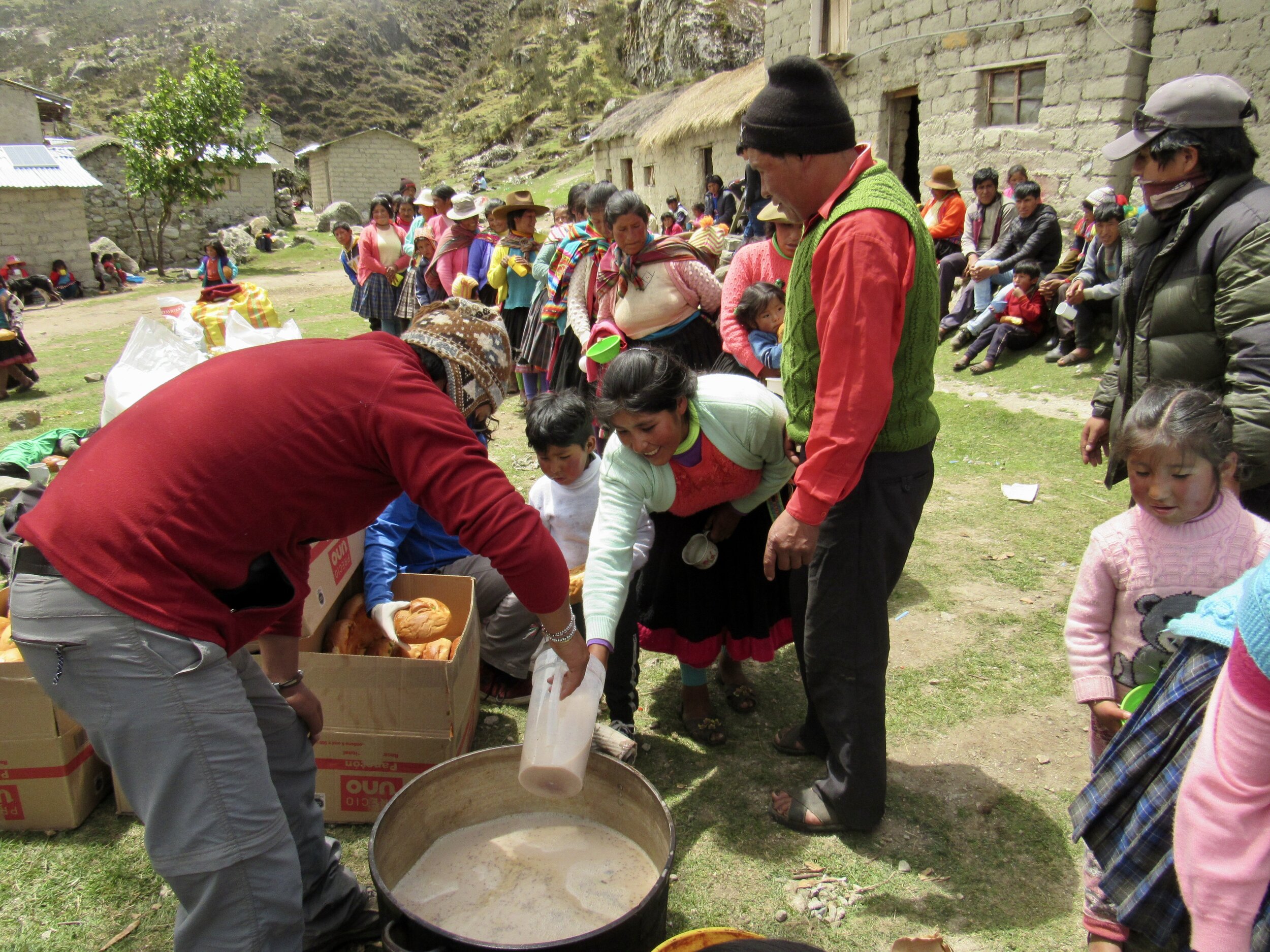
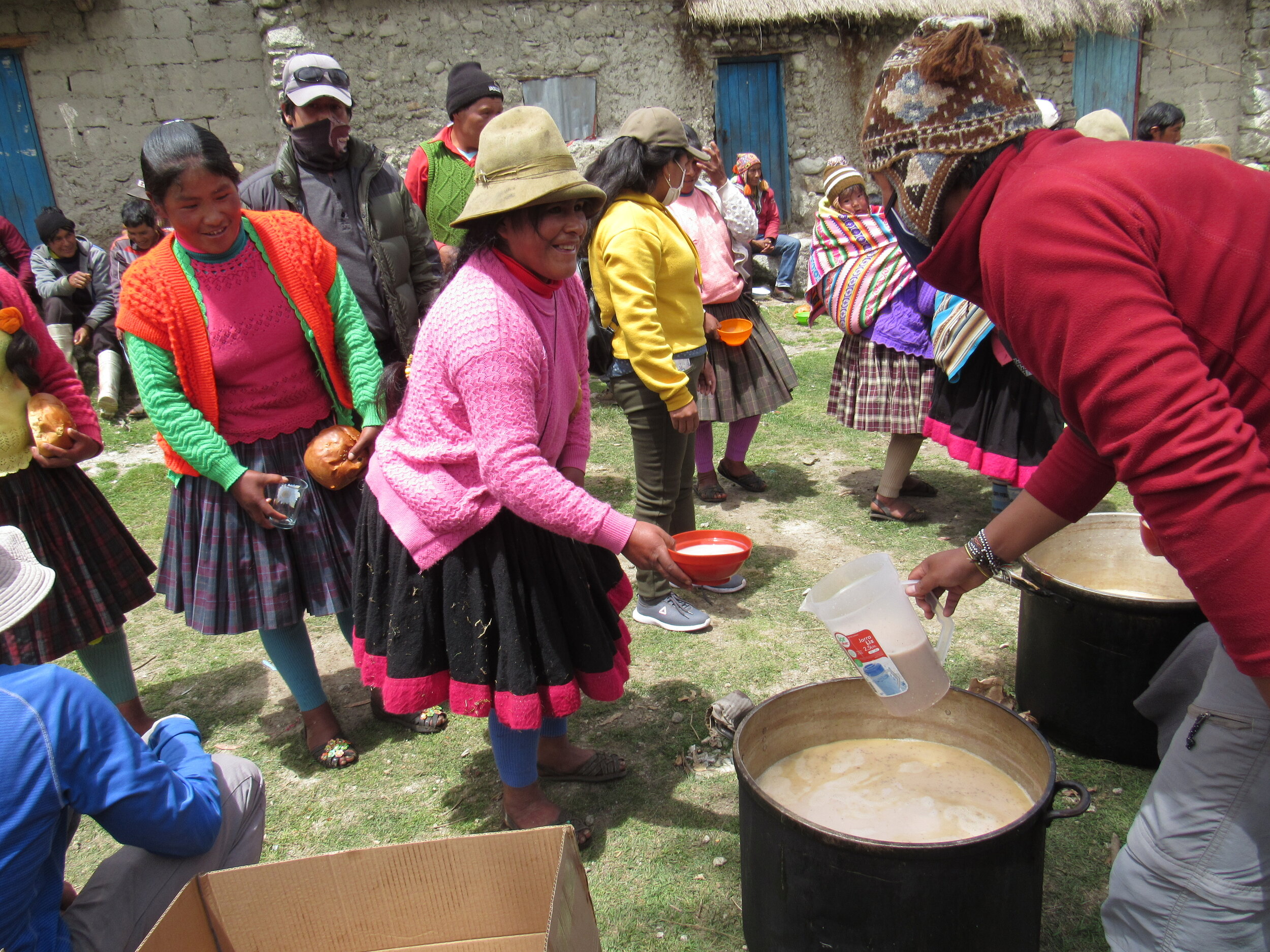

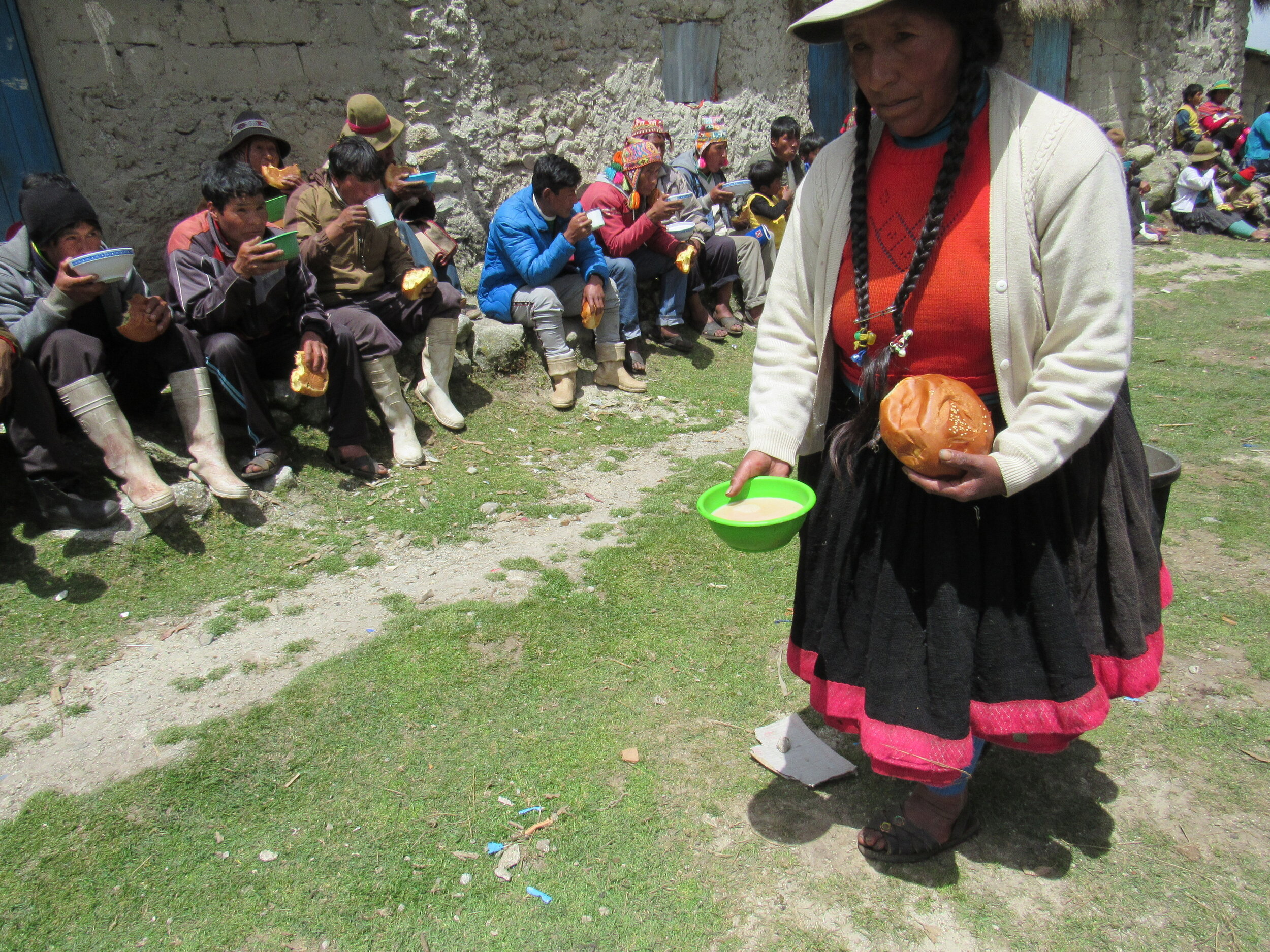
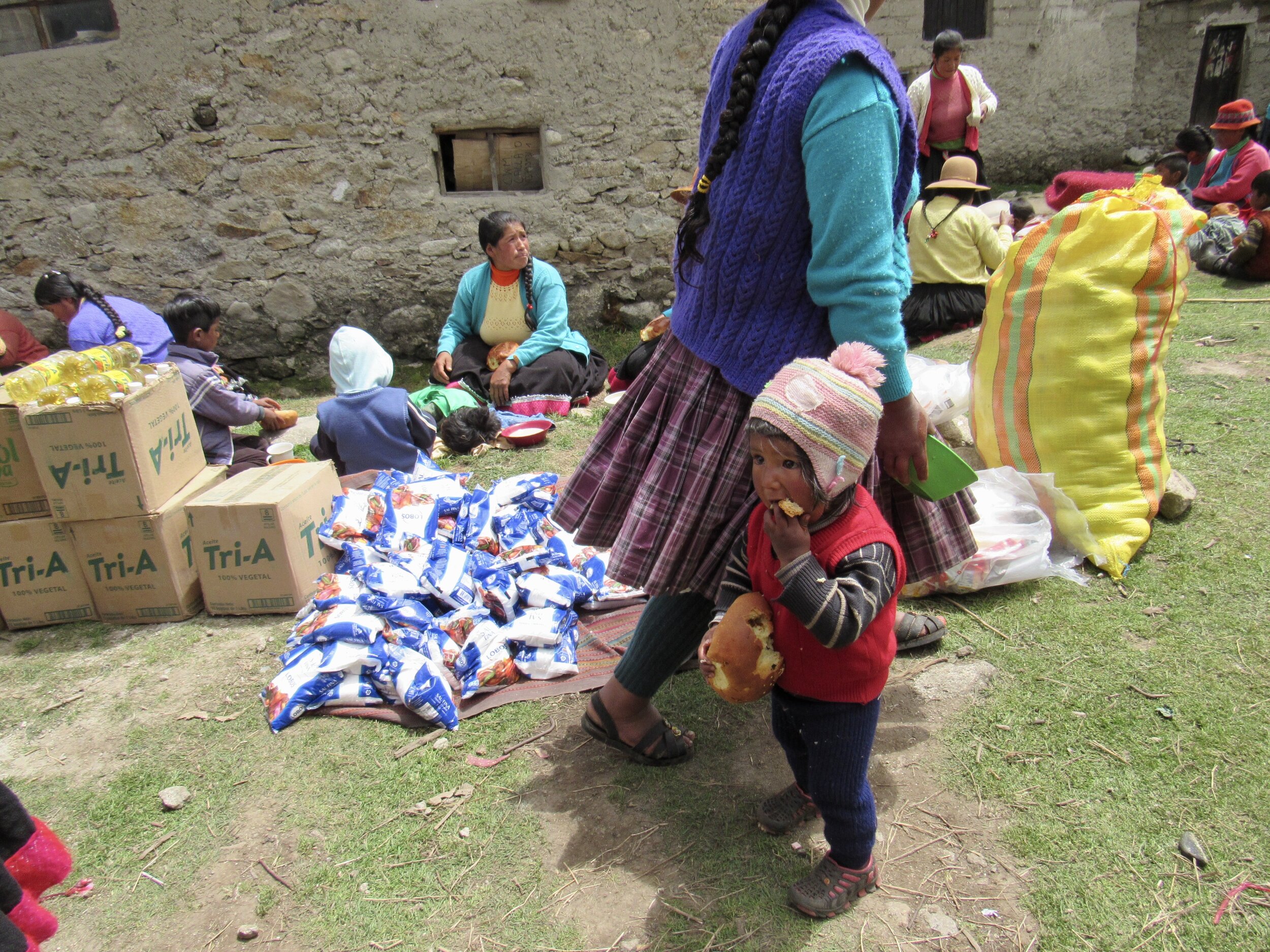
We brought clothes for all of the children, which we distributed while the hot chocolate was still being made. We had separated out a bag for babies under a year, bags for both girls and boys under five years old, bags for kids 6-10 and bags for tweens and teenagers. The clothes distribution went quickly, then we brought out two giant cauldrons of hot chocolate. We had brought with us 3 bars of pure cacao, each one weighing a kilo. We also brought cinnamon sticks, cloves and sugar for the hot chocolate. We brought a metal can straight from a dairy with 30 liters of milk in it. We made sure that they boiled the milk before we served the hot chocolate. We buy fresh milk because it's more nutritious and also it avoids all kinds of packaging waste. We were careful to take our trash out with us, since they obviously don't have any way to dispose of trash other than in their beautiful valley.
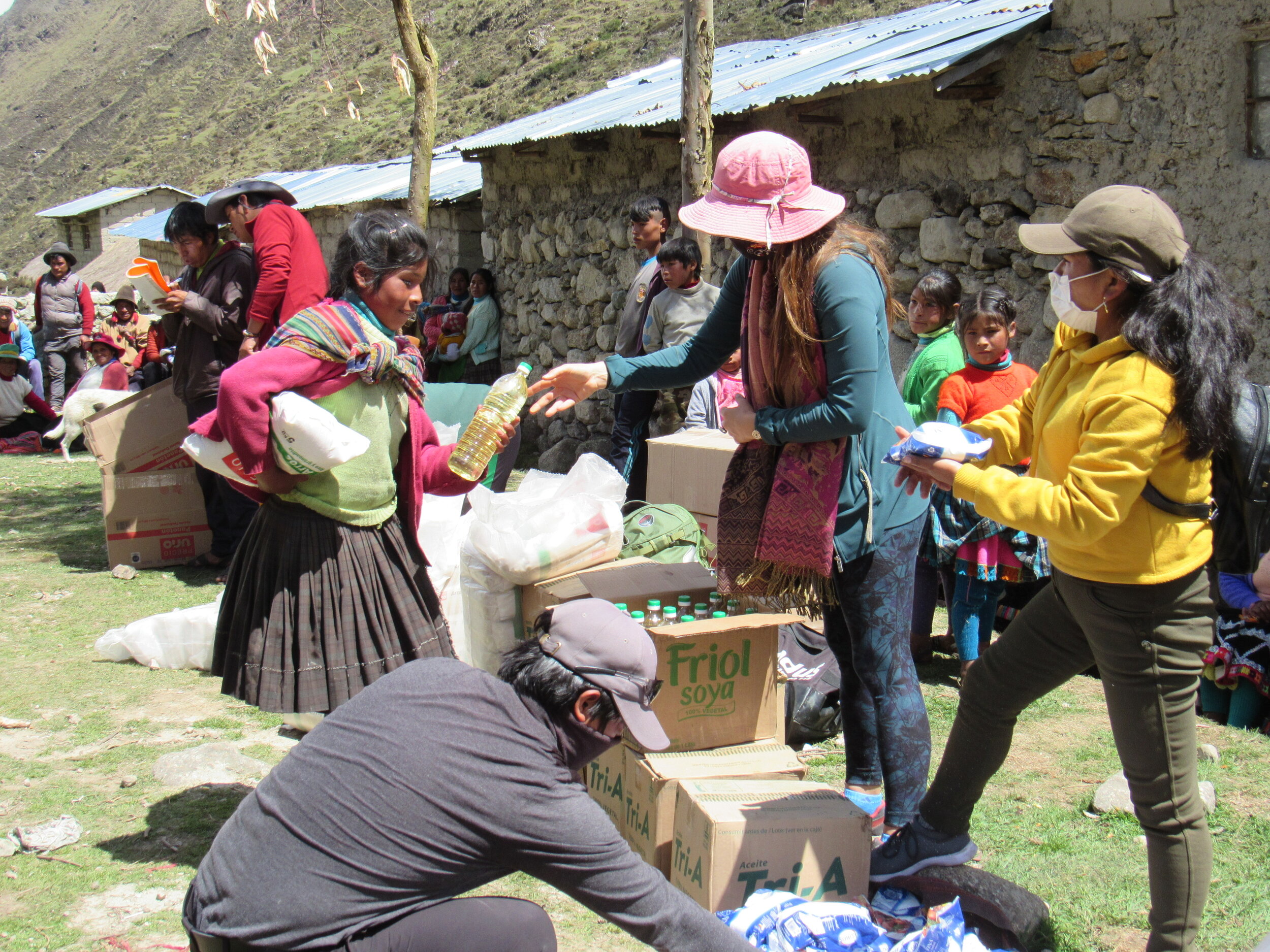
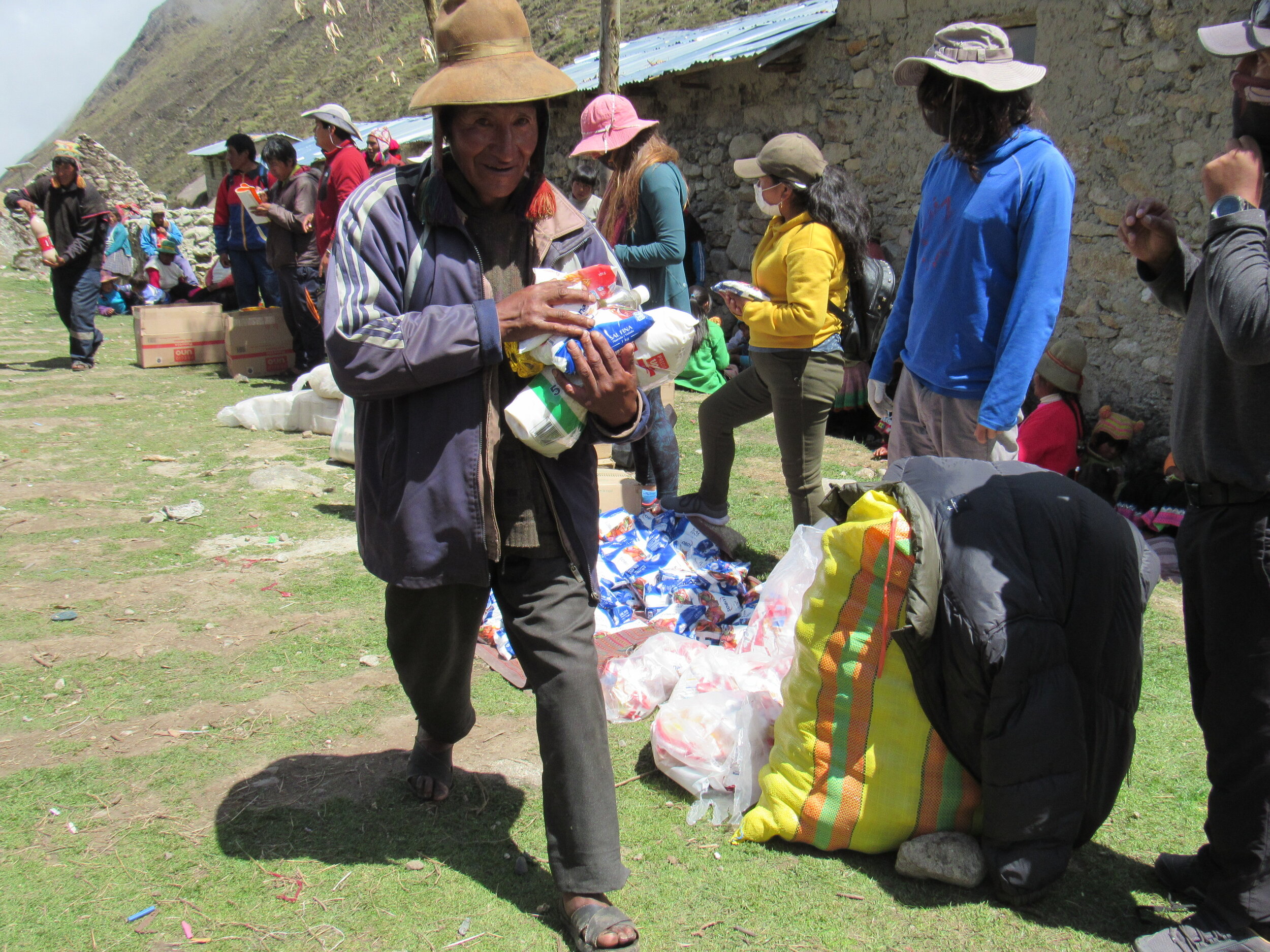
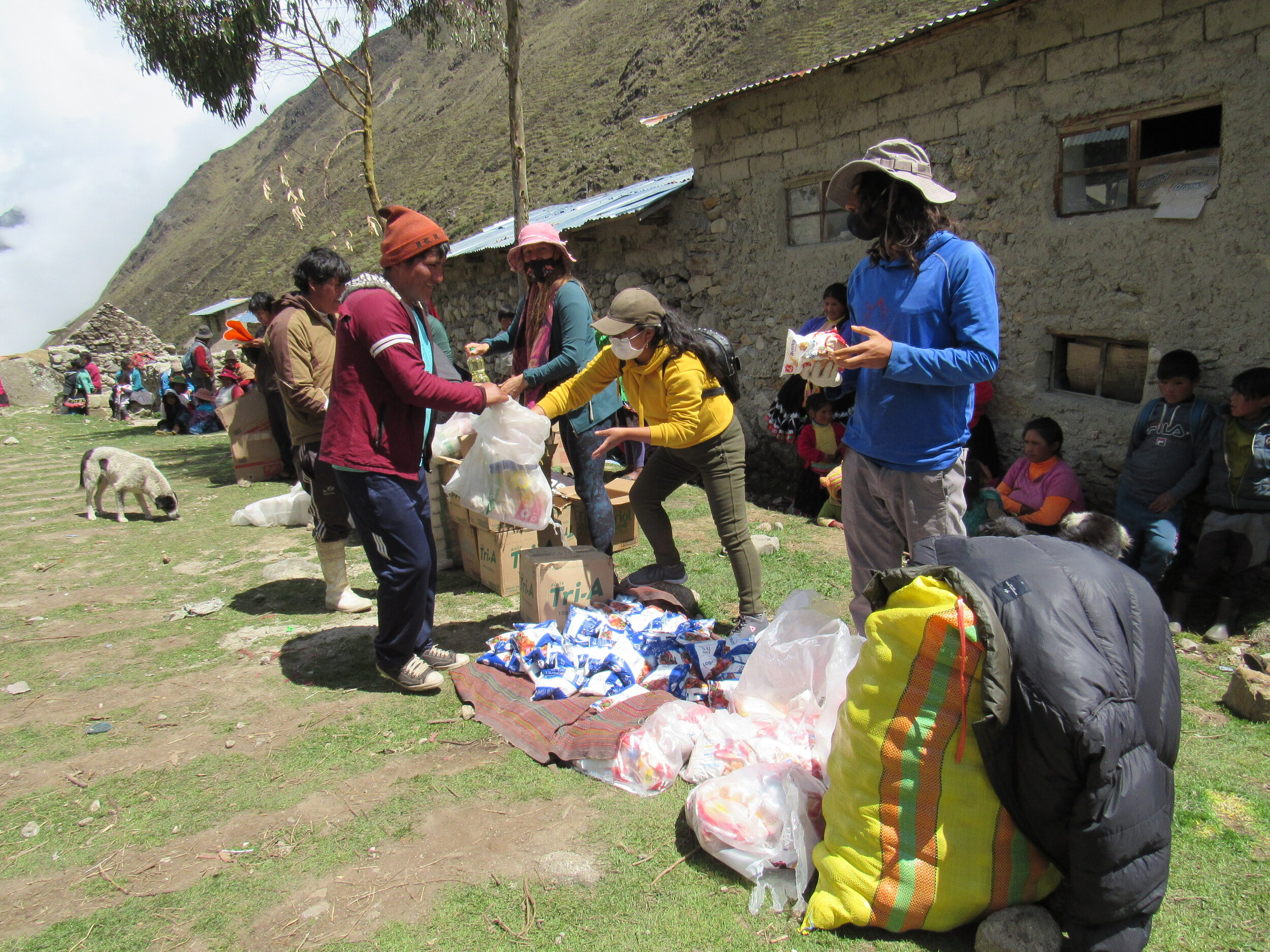
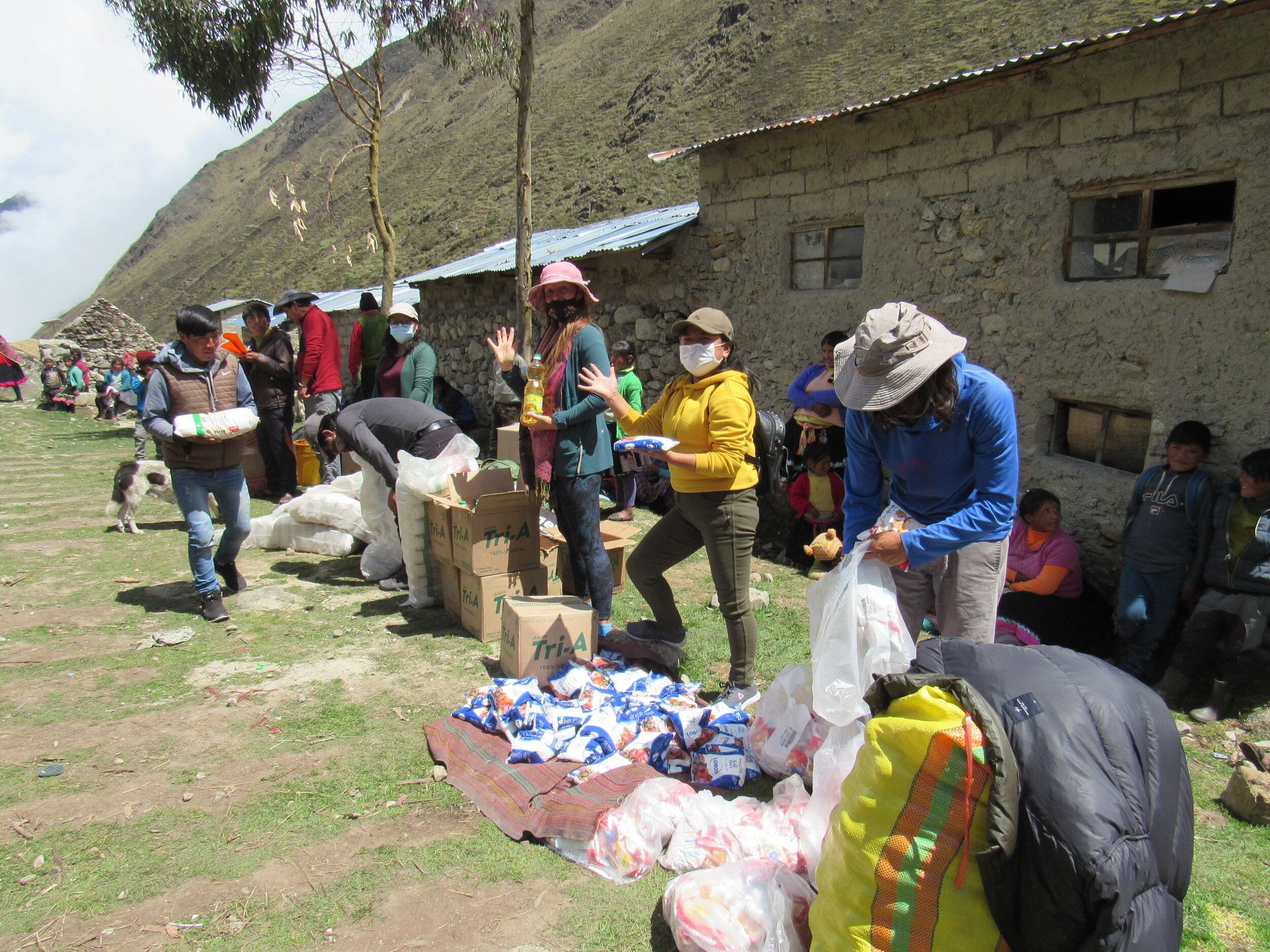
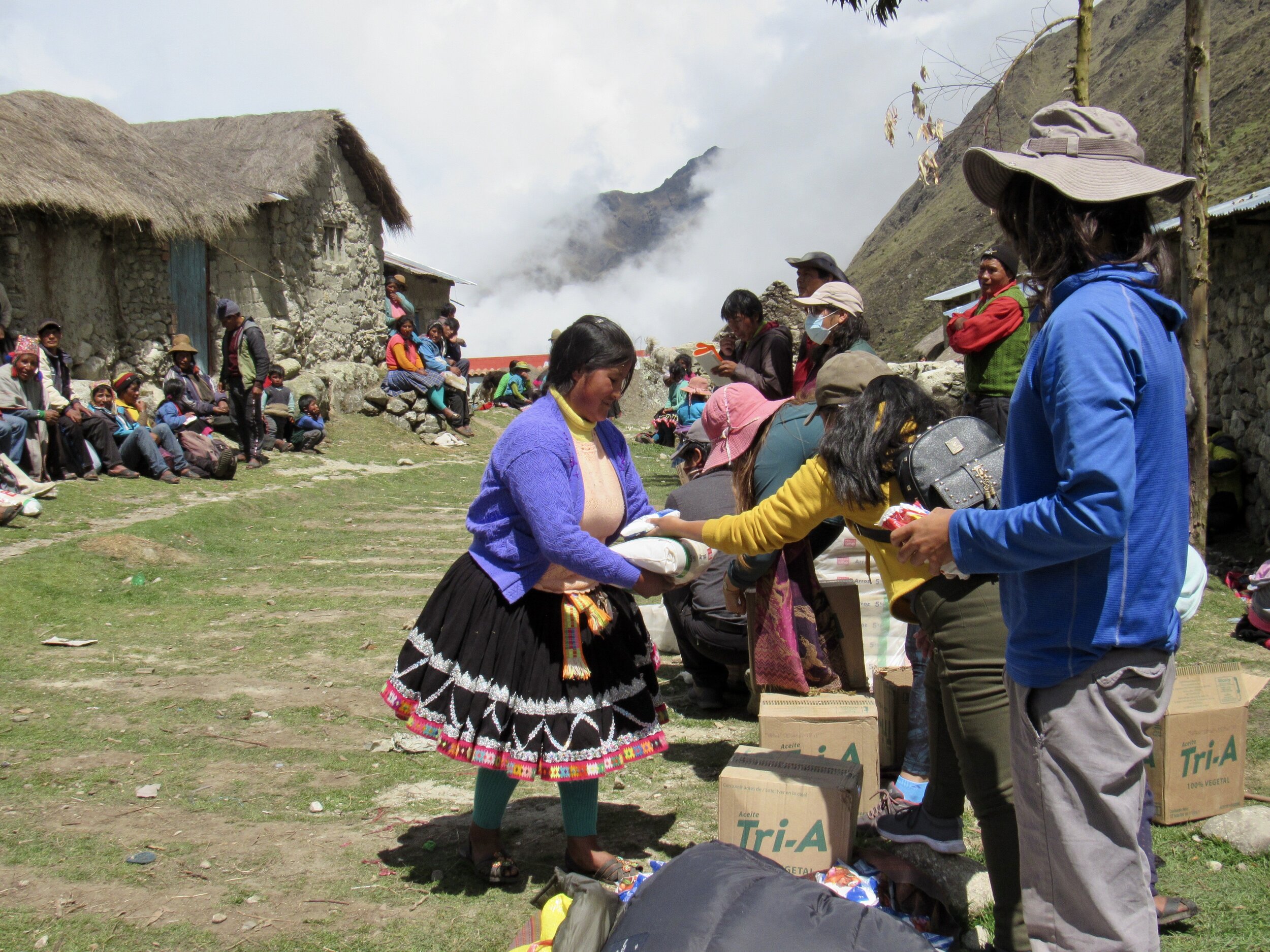
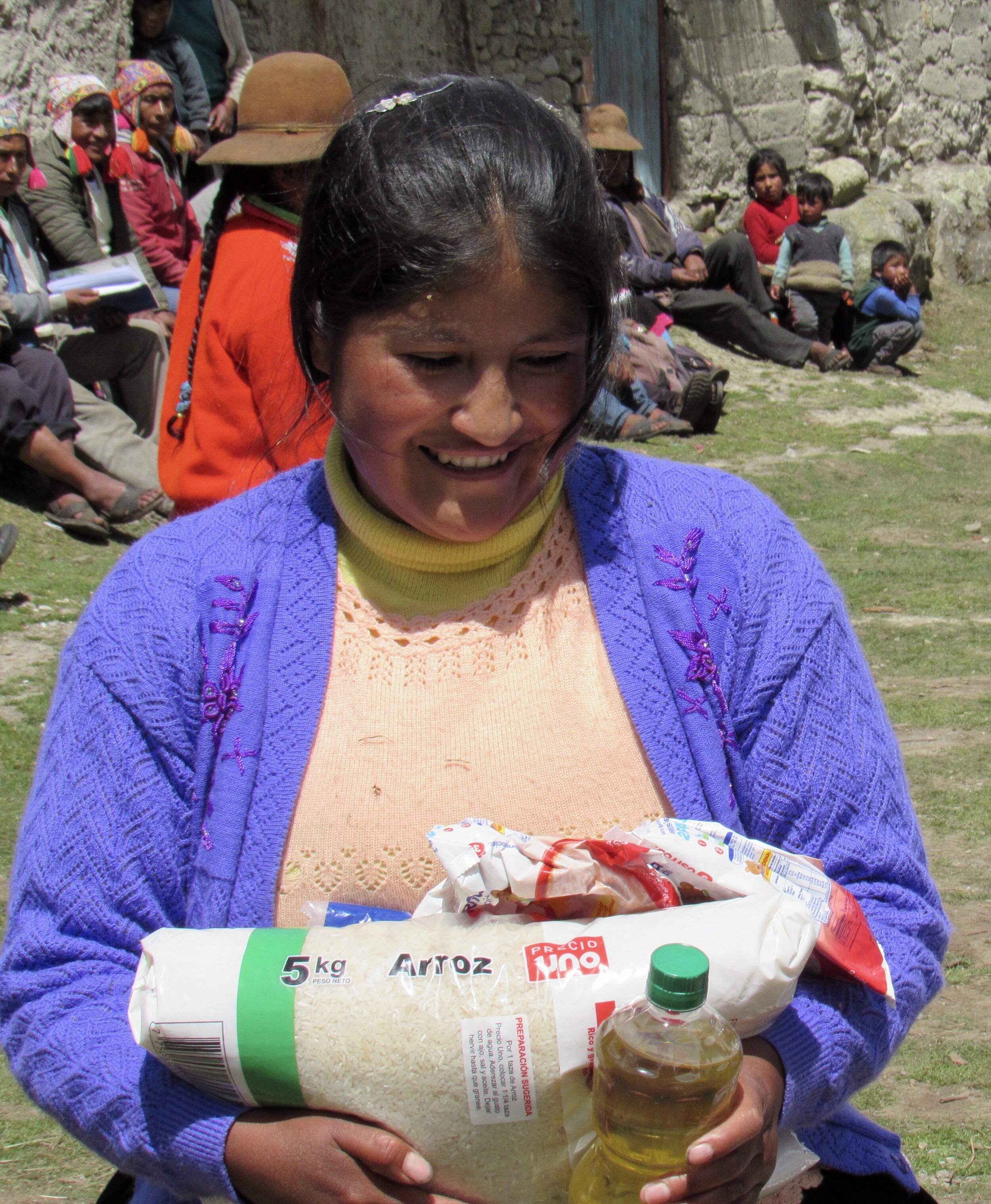
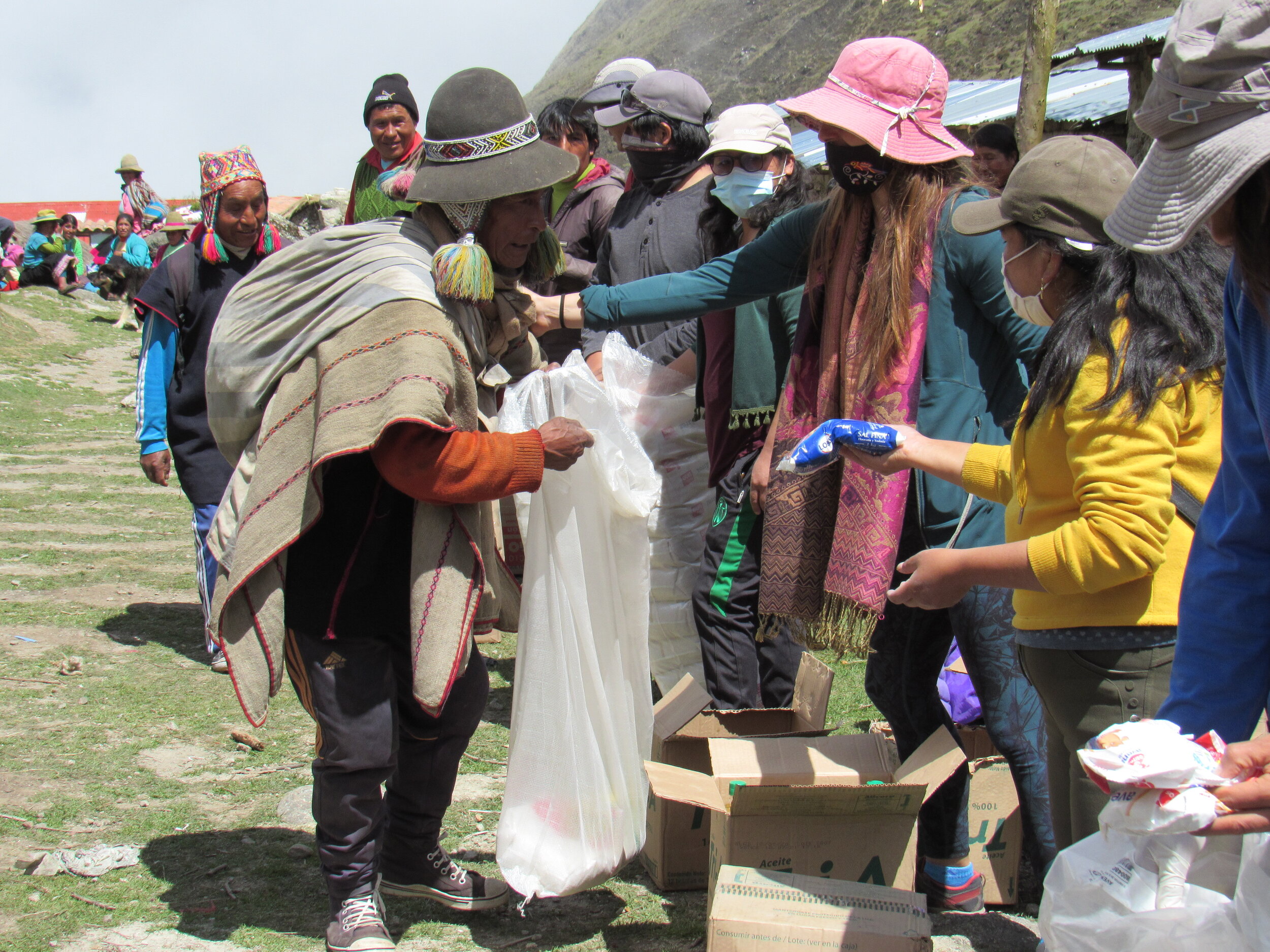
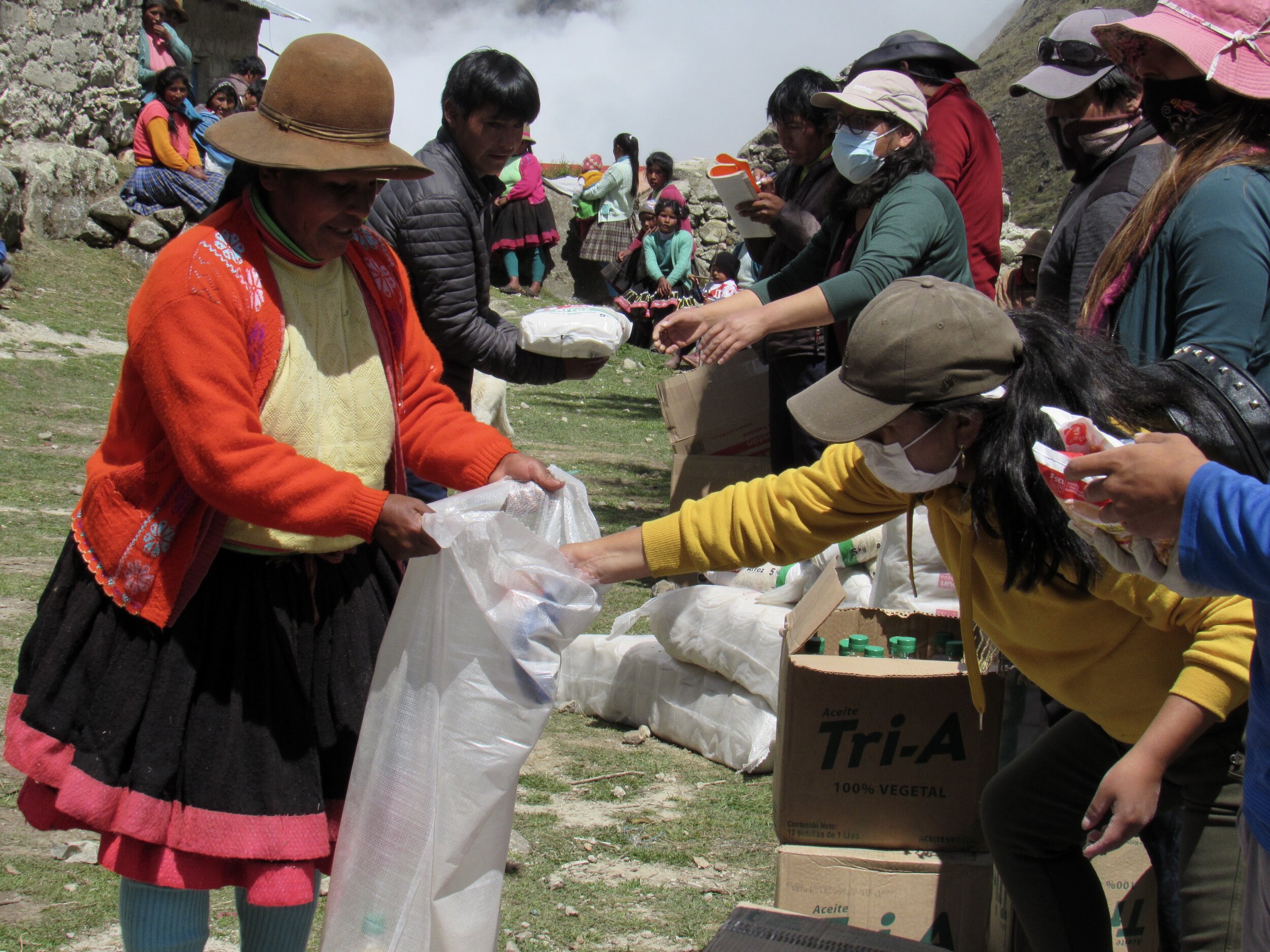
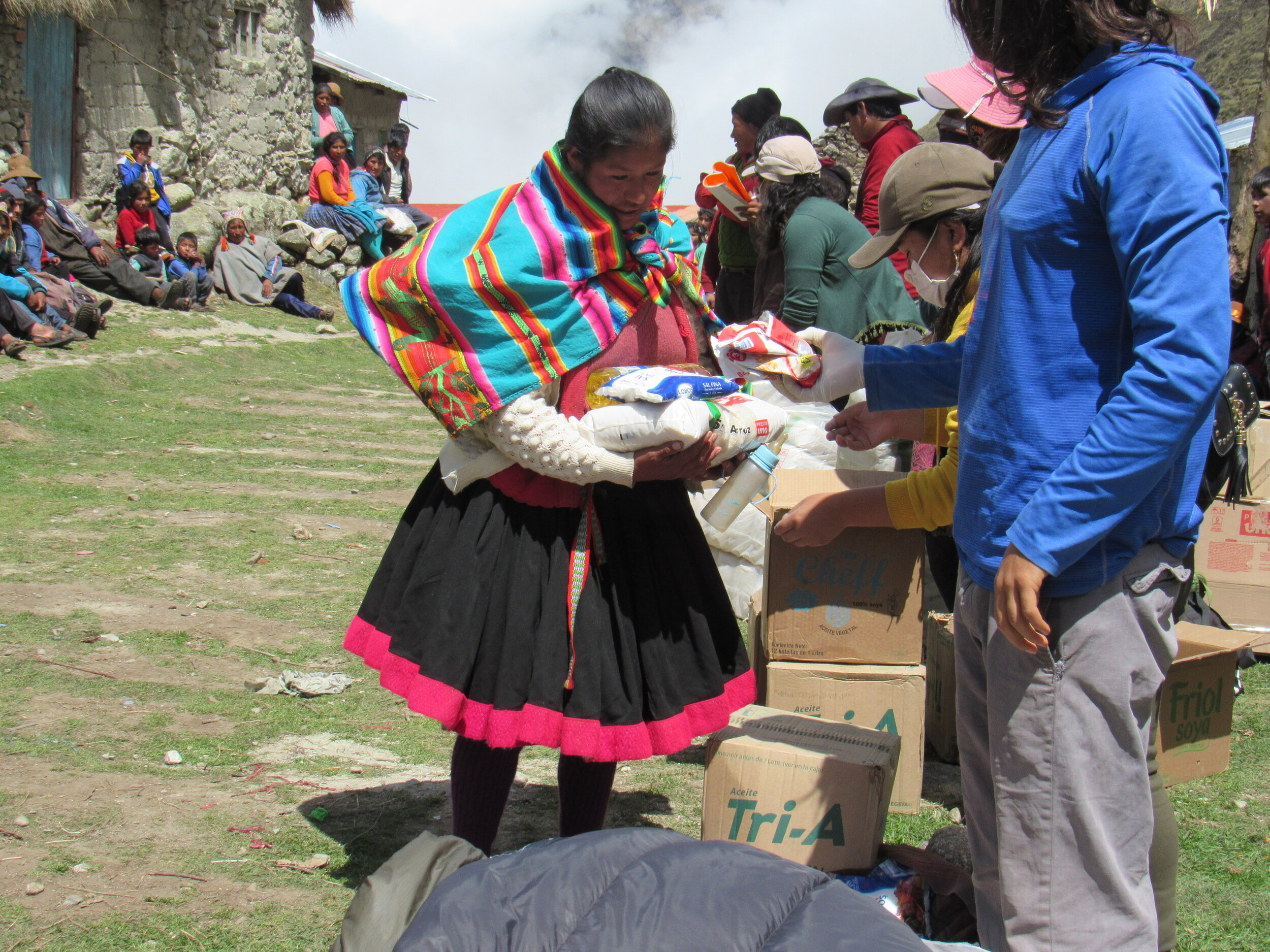
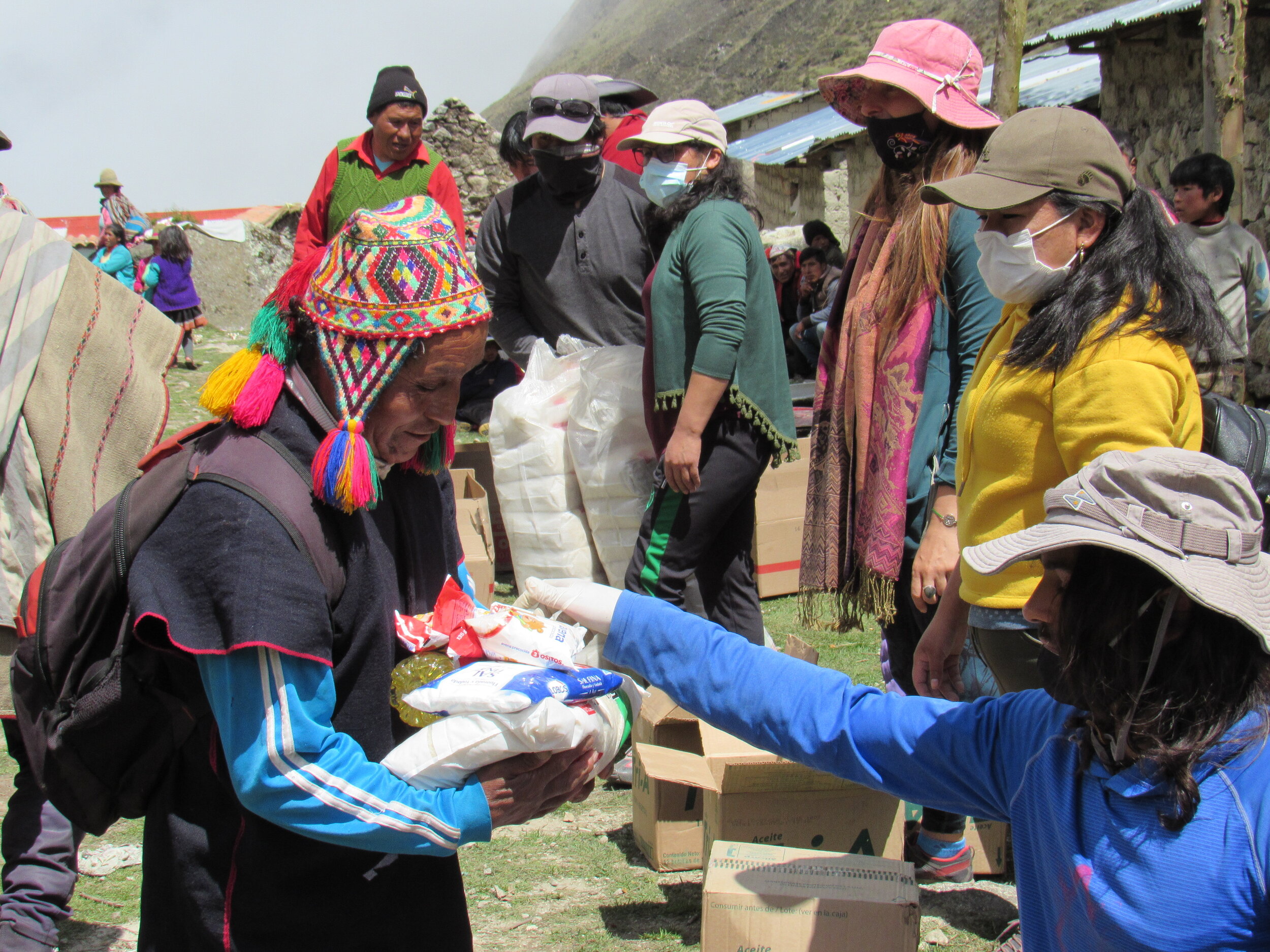
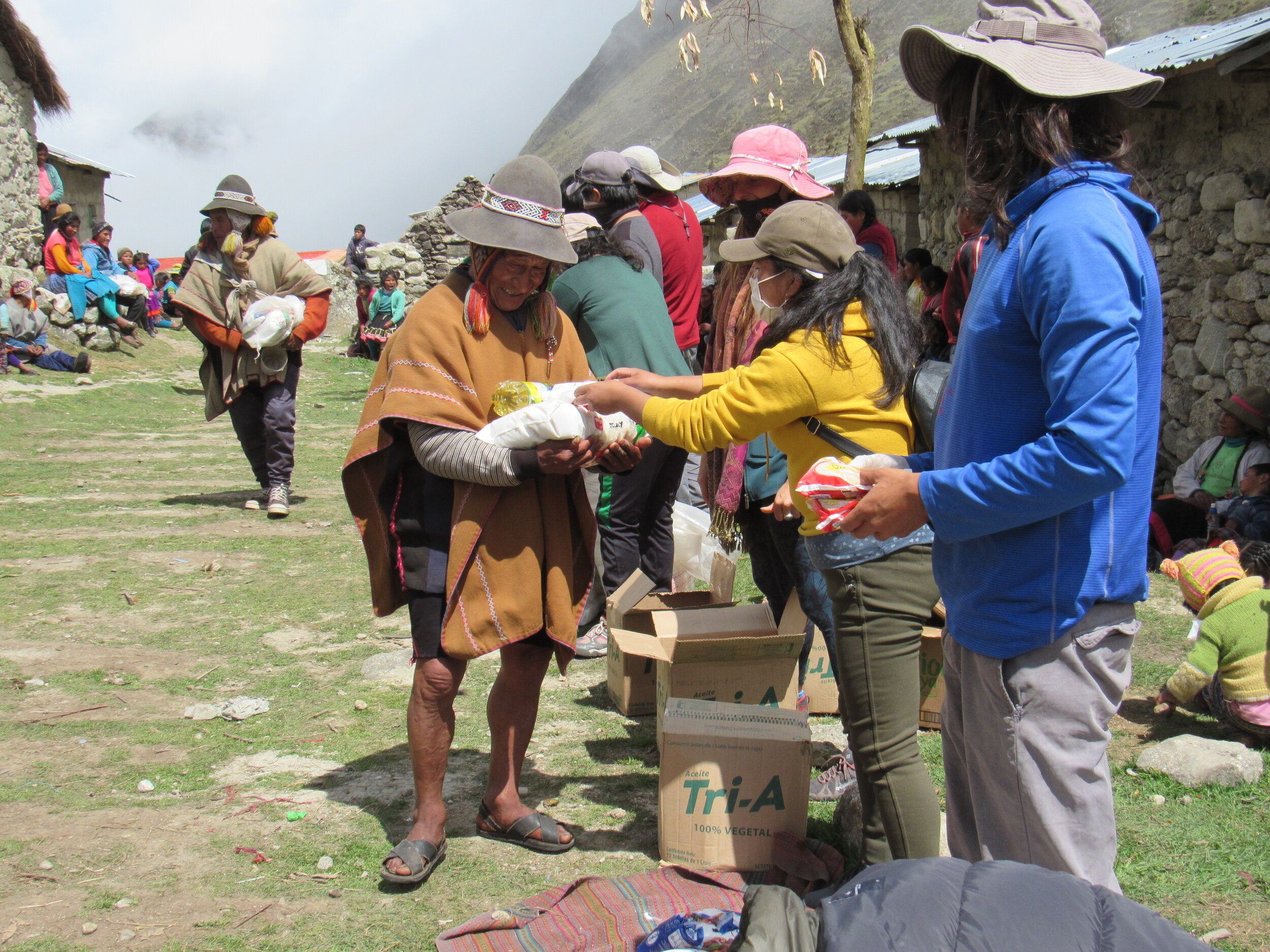
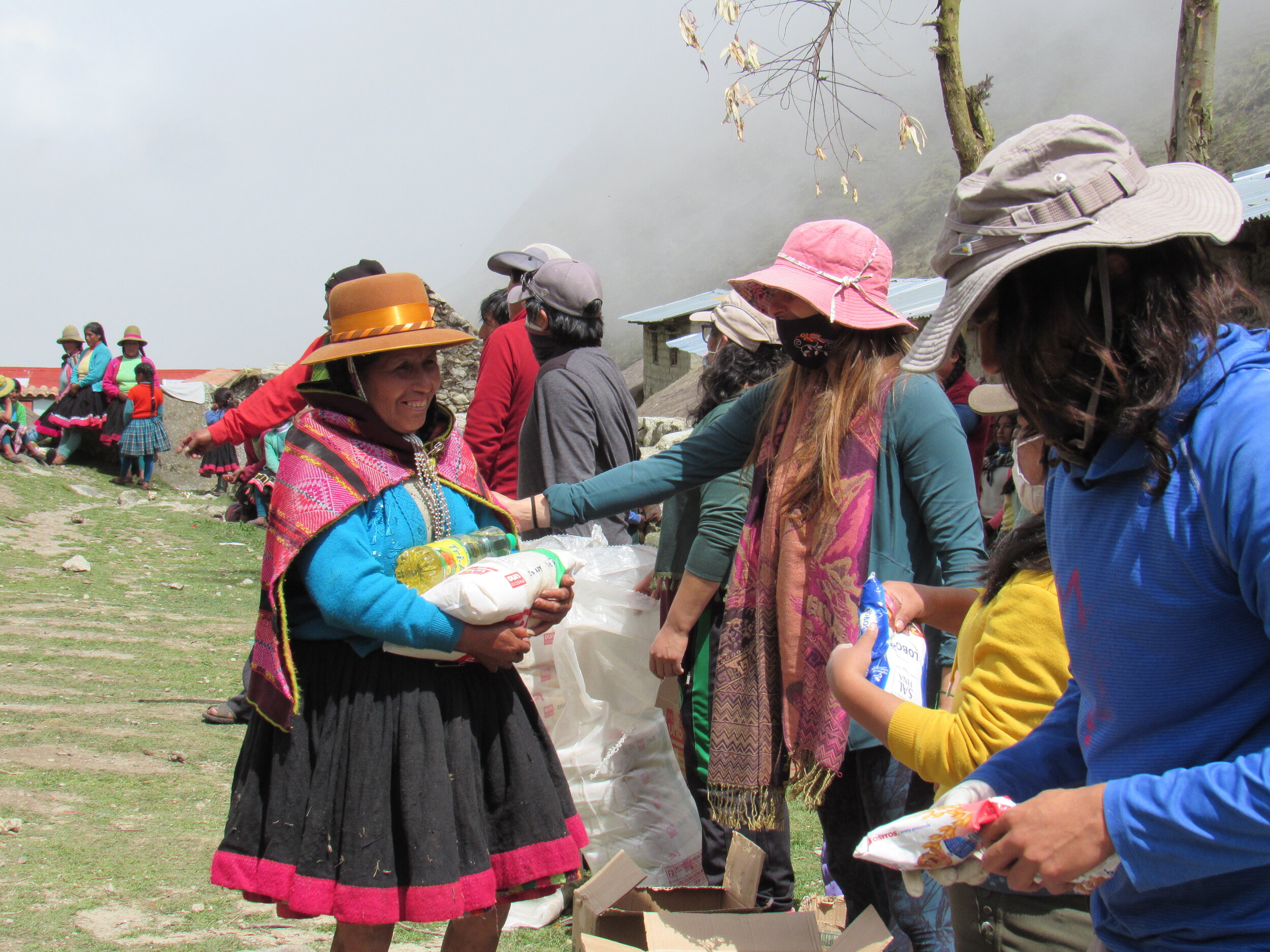
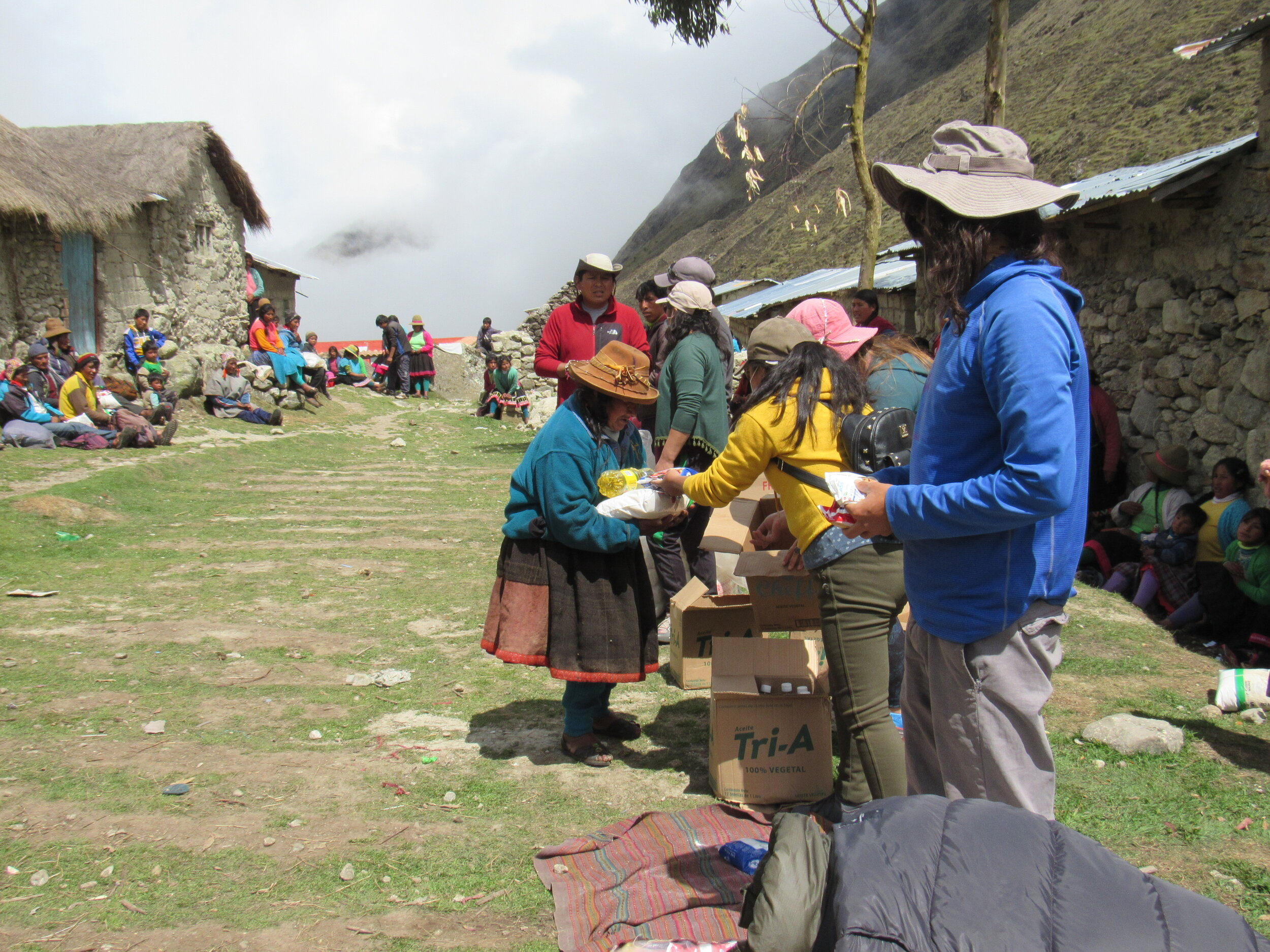
After everybody had a panettone and seconds on the hot chocolate, we asked one representative from each family to come receive 5 kilos of rice, a liter of vegetable oil for cooking, 1 kilo of salt with iodine (which is almost impossible to get up in the mountains) and two bags of oatmeal, which is fortified with vitamins and minerals for children. Malnutrition and anemia are serious problems up in the mountains.
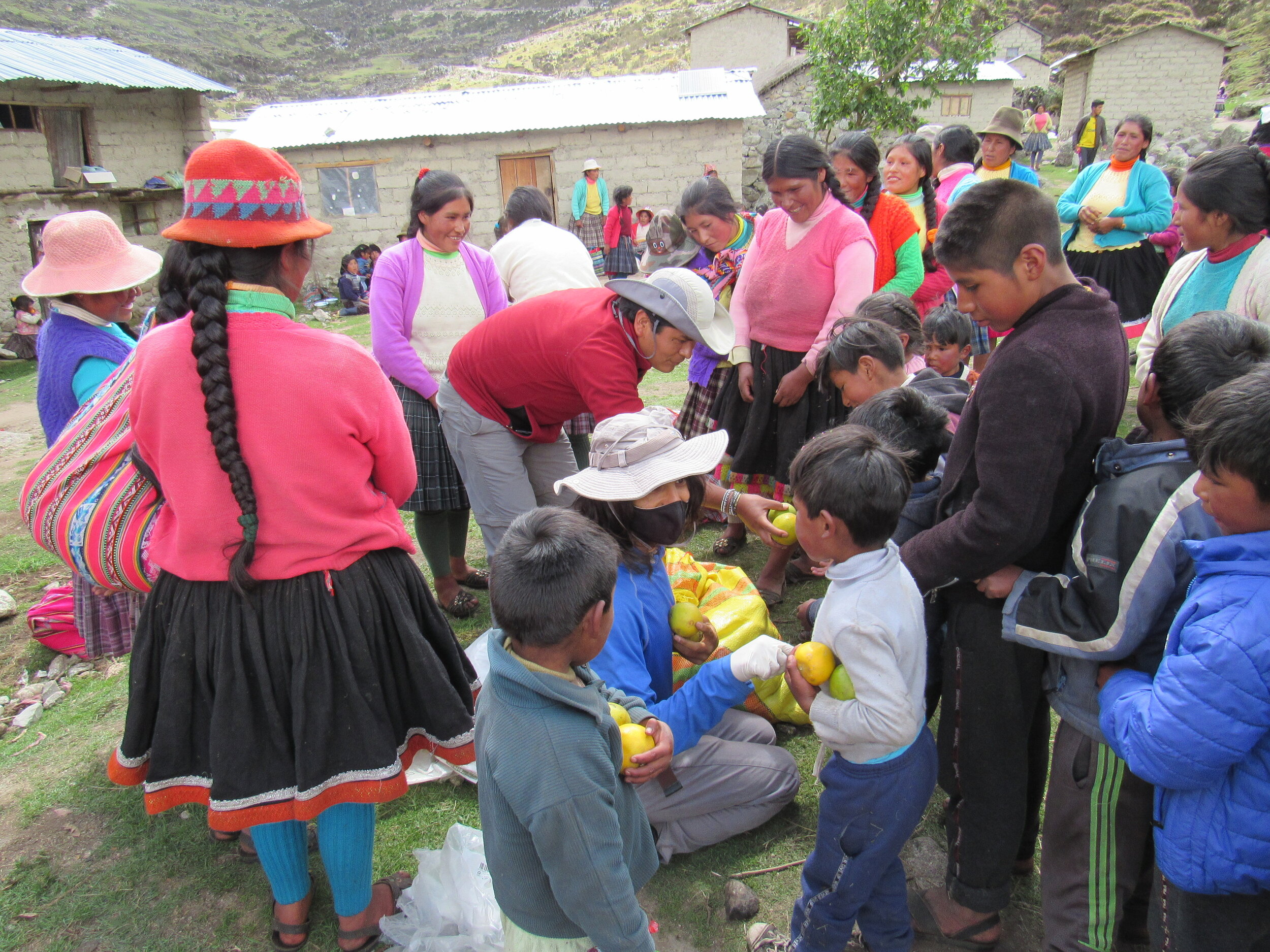
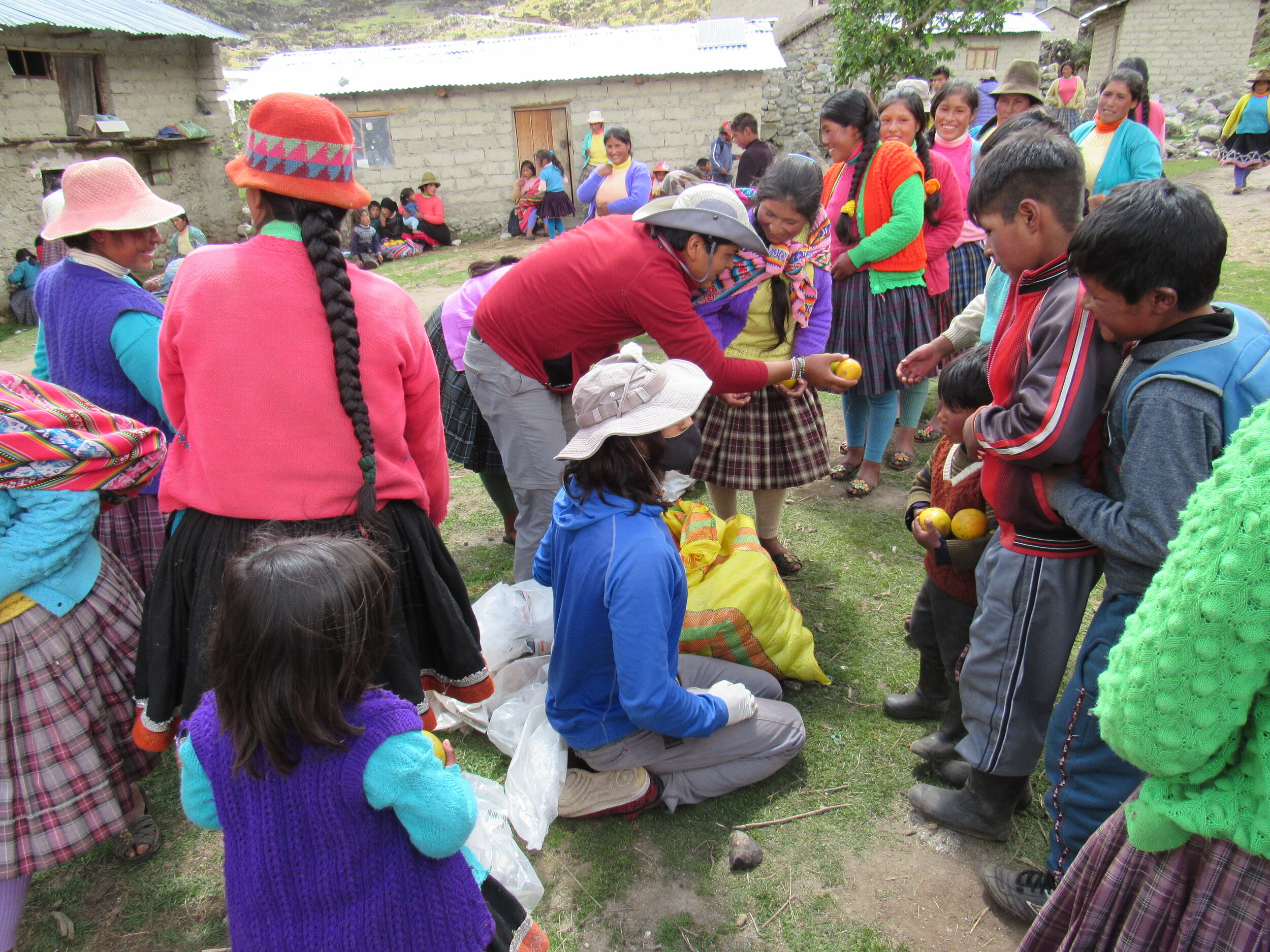
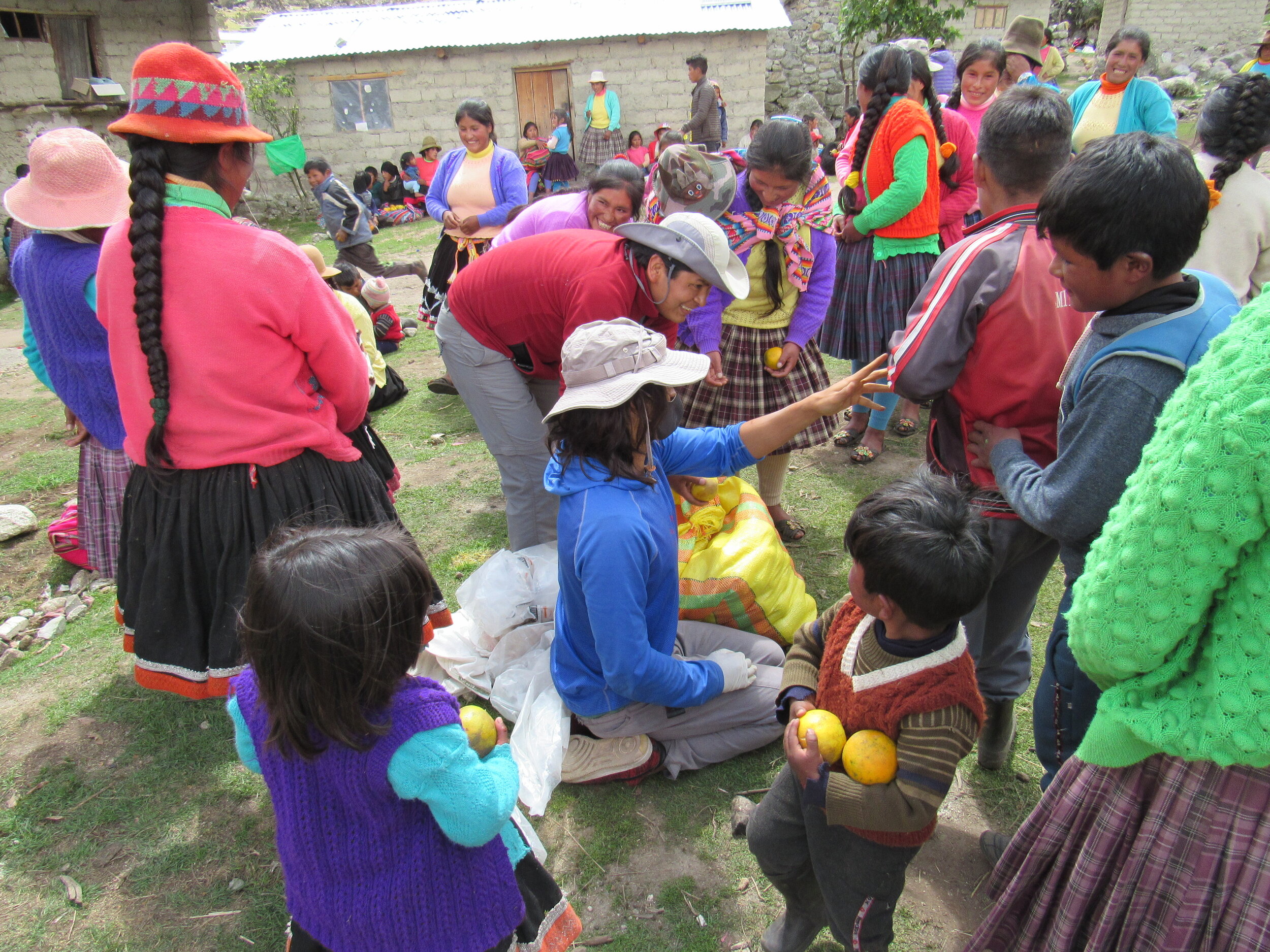
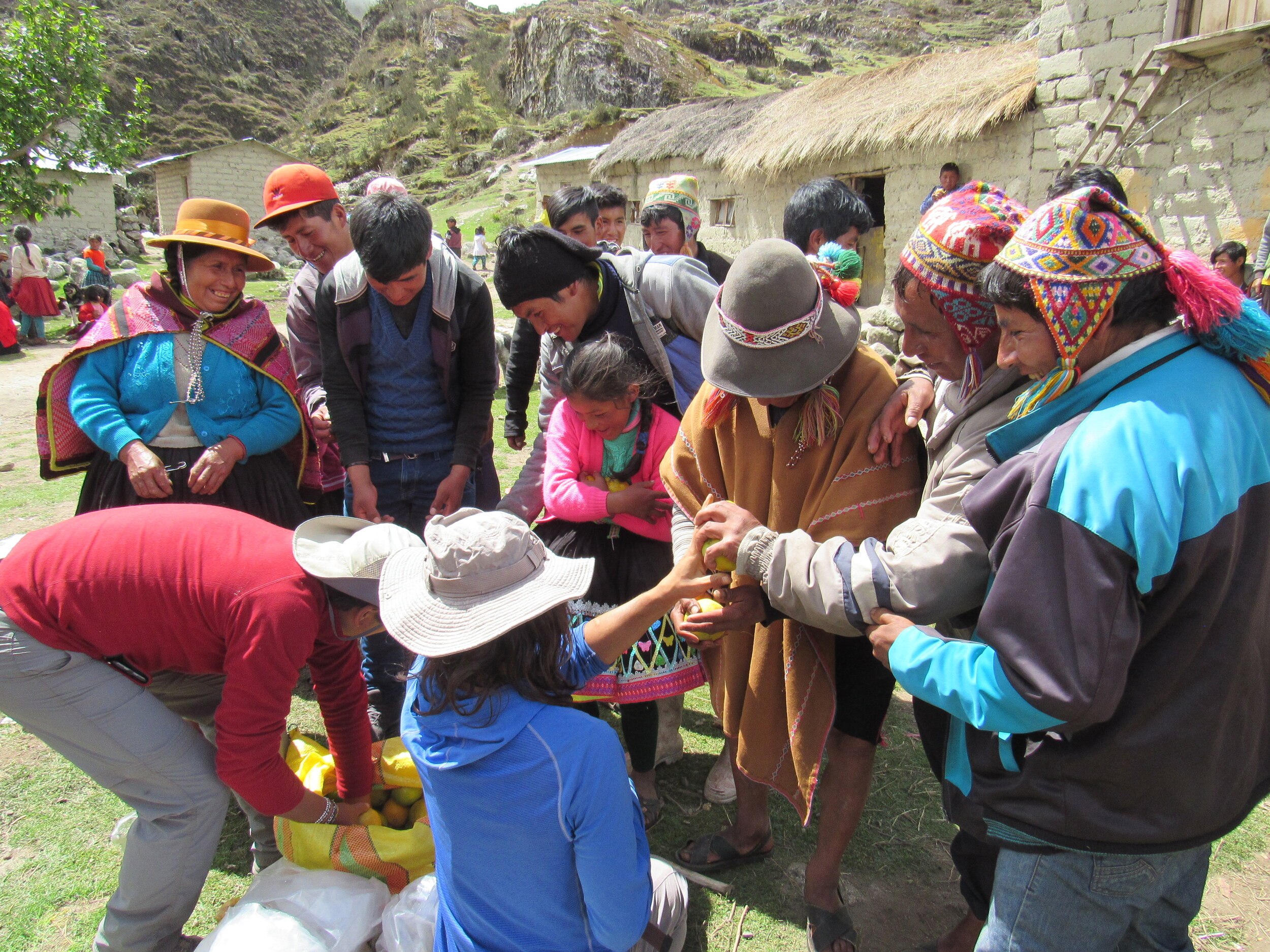
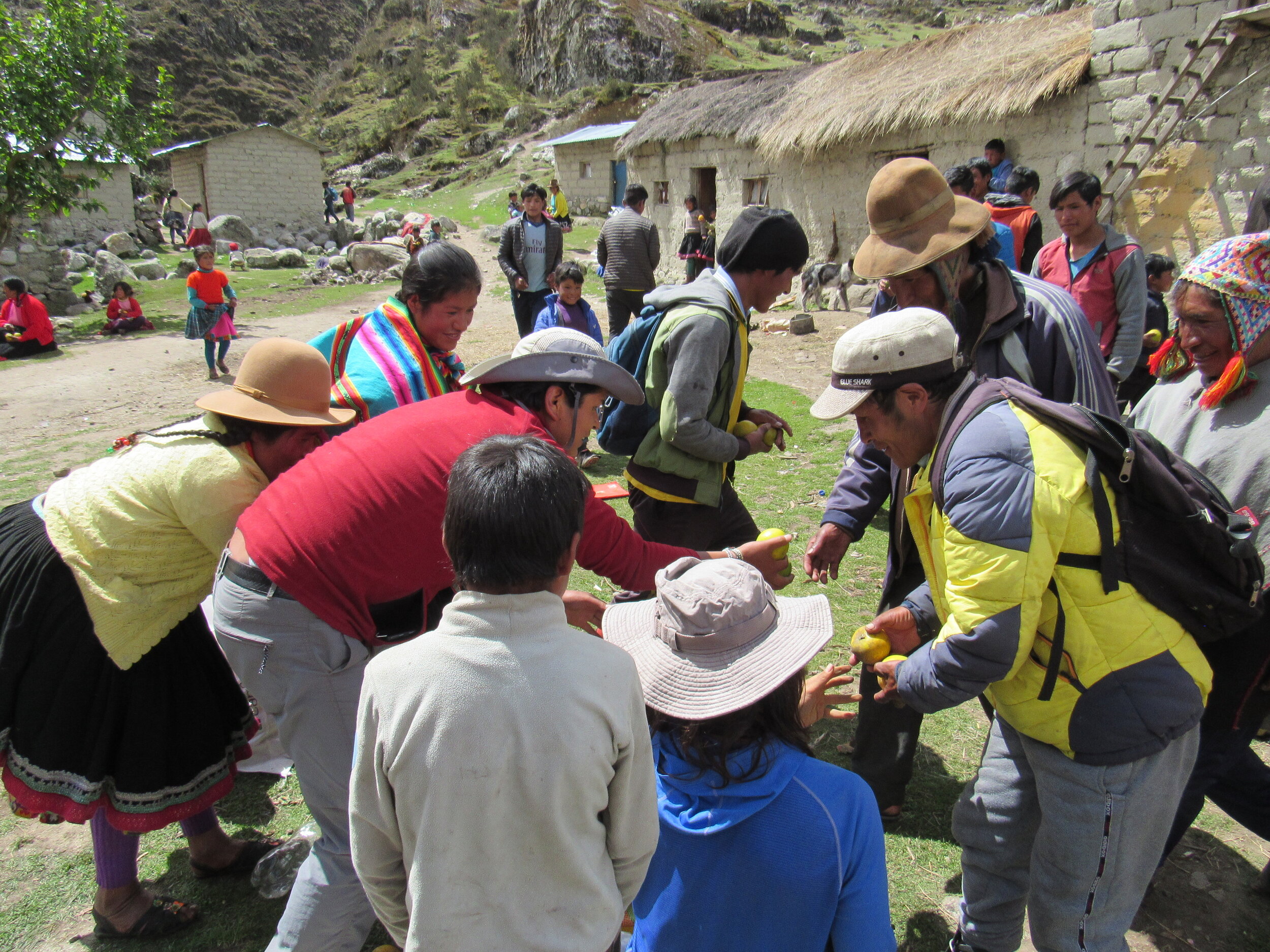
Before we left, we gave everybody two oranges each. They were even more excited about the oranges than the hot chocolate and panettone. Several of the smaller children just ate the oranges as if they were apples, peel and all! I have no idea how often fresh fruit gets up to them, since they are at the end of a very long dirt road. The road was built only ten years ago, before which walking was the only way to get to or from Japu. People there own llamas and alpacas, but I didn't see any horses. I don't know if that would be a transportation option for a person who needed to get out for medical help. There is no regular transportation to Japu, so most people only walk. There is no cell service and they don't get any radio signals either.
Below are photos from our trip from the main road to Japu, starting after we left the paved road that goes from Ocongate to Puerto Maldonado. The road to Japu, six hours from Cusco and almost three hours from Ocongate, goes up and over two passes. The highest of these passes is over 5,000 meters. I was thrilled to see vicuña, which are an endangered, wild cousin of the llama. They are quite rare and normally very skittish. Usually, you only see them off in the far distance and as soon as you stop to take a photo, they take off. They can run very quickly up steep slopes of loose scree. For there to be vicuña in the area shows that the Q’ero are really taking good care of their land. That the vicuña were so close to the road is evidence that not only do cars rarely come this way but also that poaching is not a problem in the area. Illegal hunting is a big problem in Peru because there is practically no enforcement of hunting laws. Only in very protected areas are endangered animals actually safe. Thankfully, the Q’ero still have a deep respect for and close relationship with the Pachamama.
Now, we need the government to provide education in Quechua and healthcare for each village in the Q’ero Nation, so that people can keep their language and culture, but also benefit from the services that other Peruvians are afforded in towns and cities. I hope that living conditions improve so that the children we saw in Japu are able to stay in their community and keep their language and culture alive.
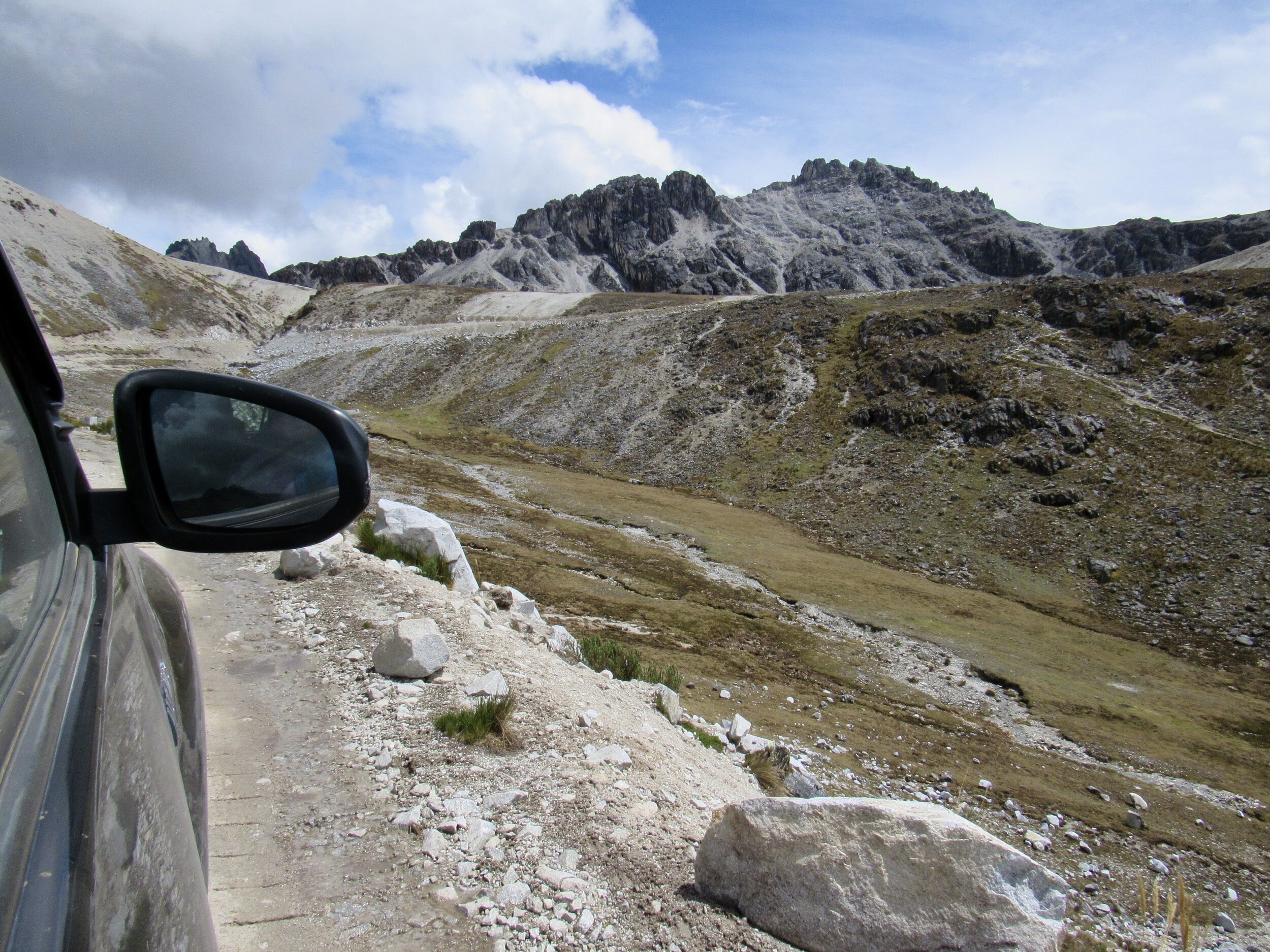
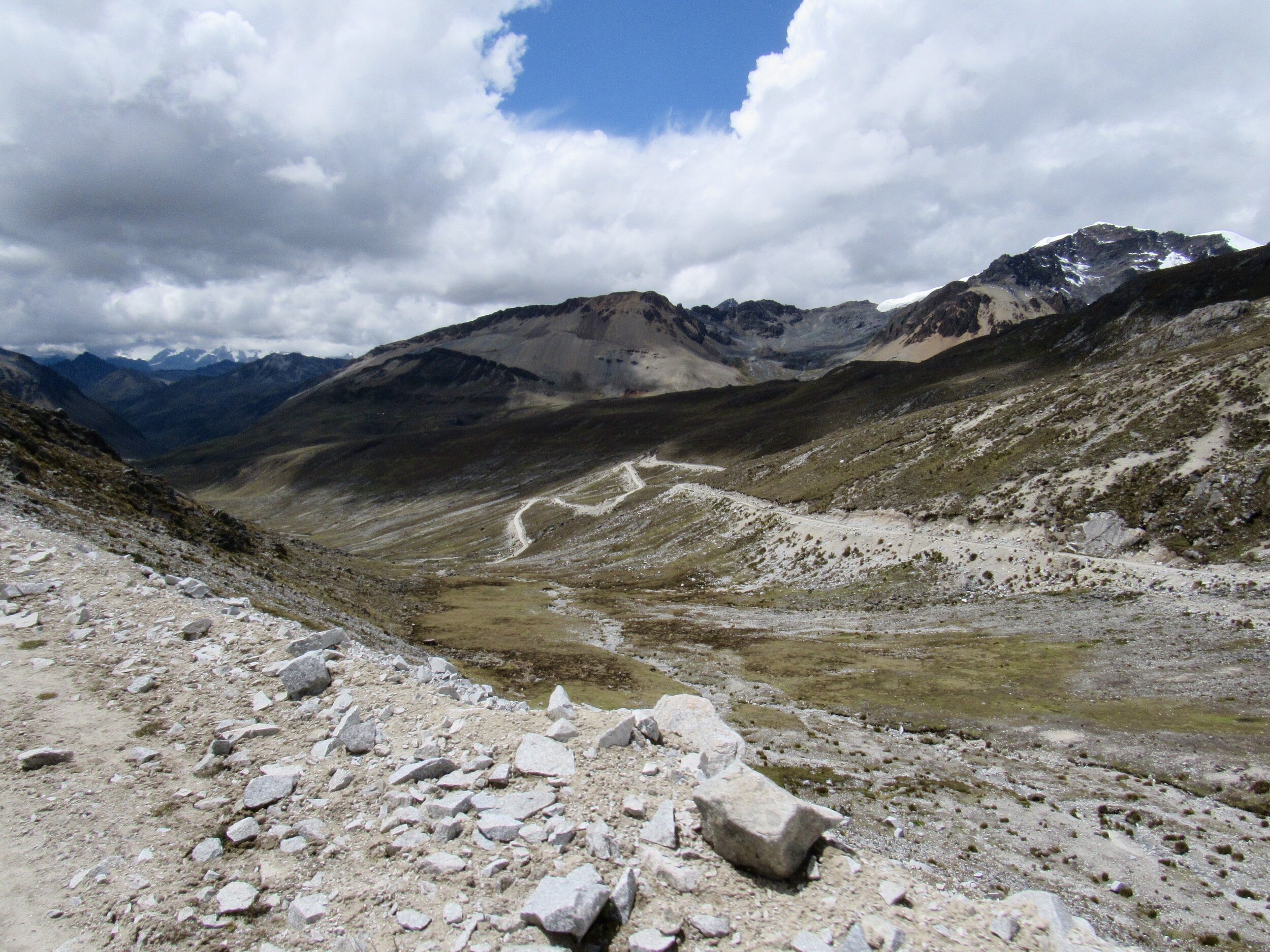
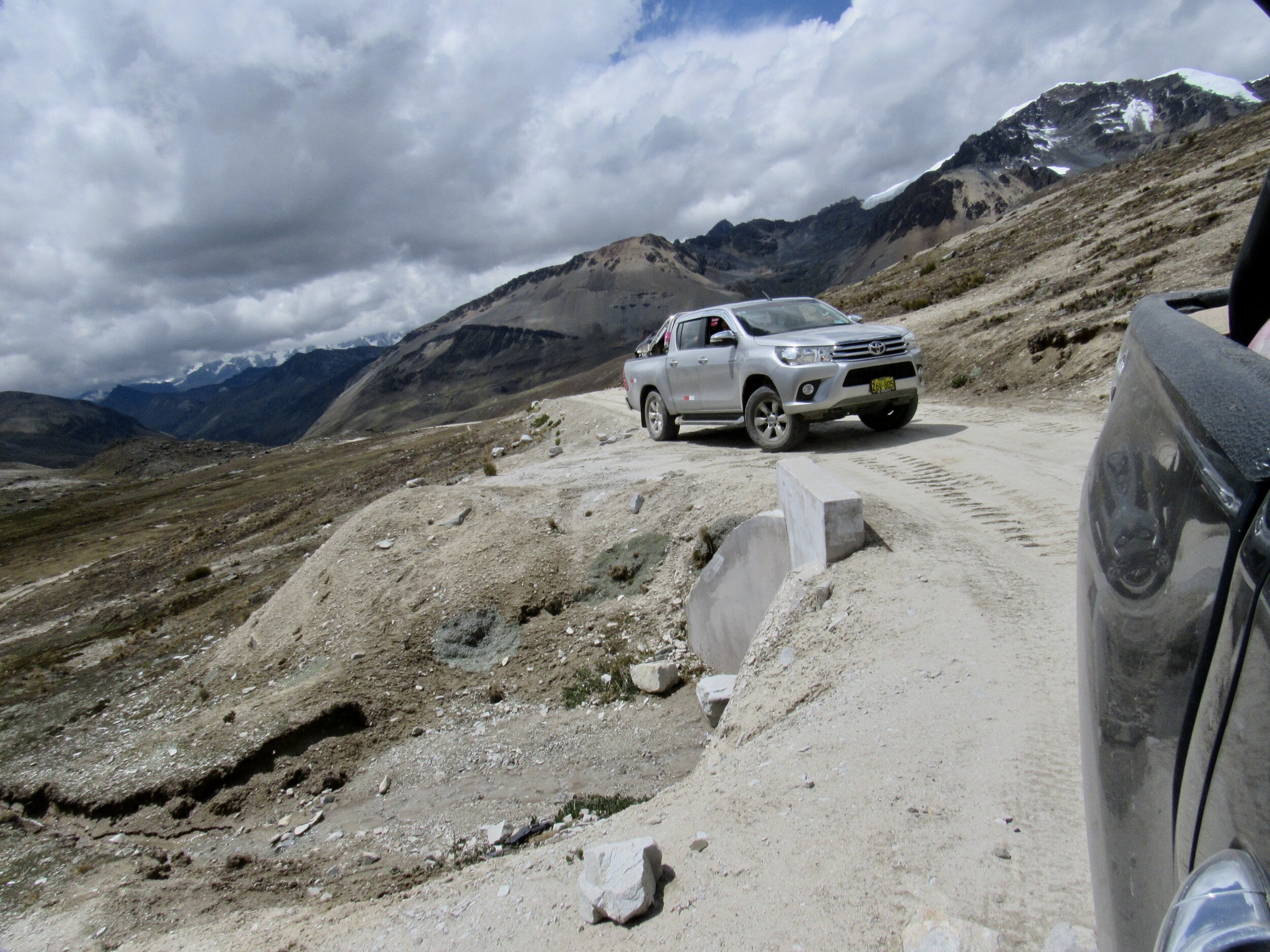
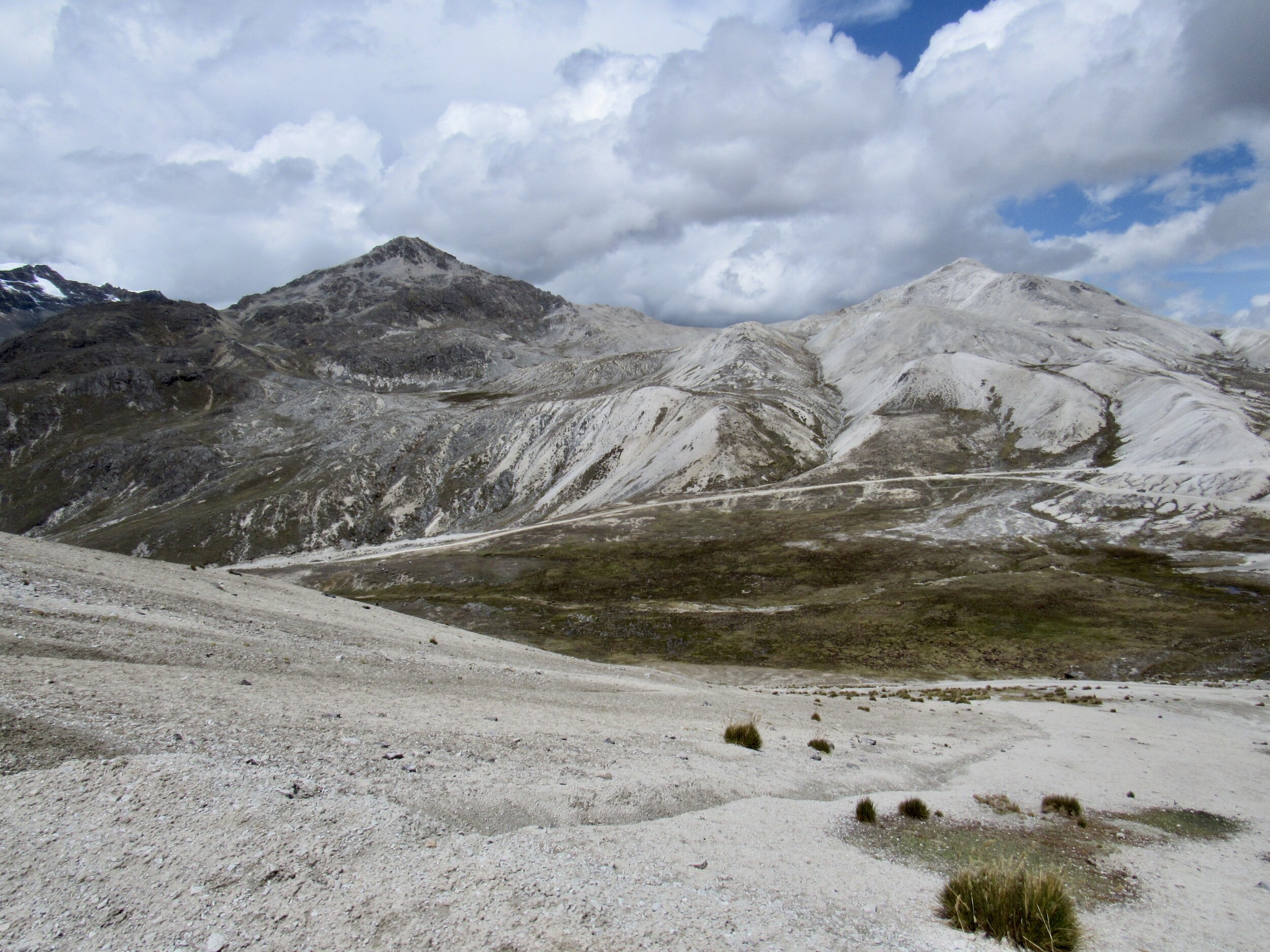
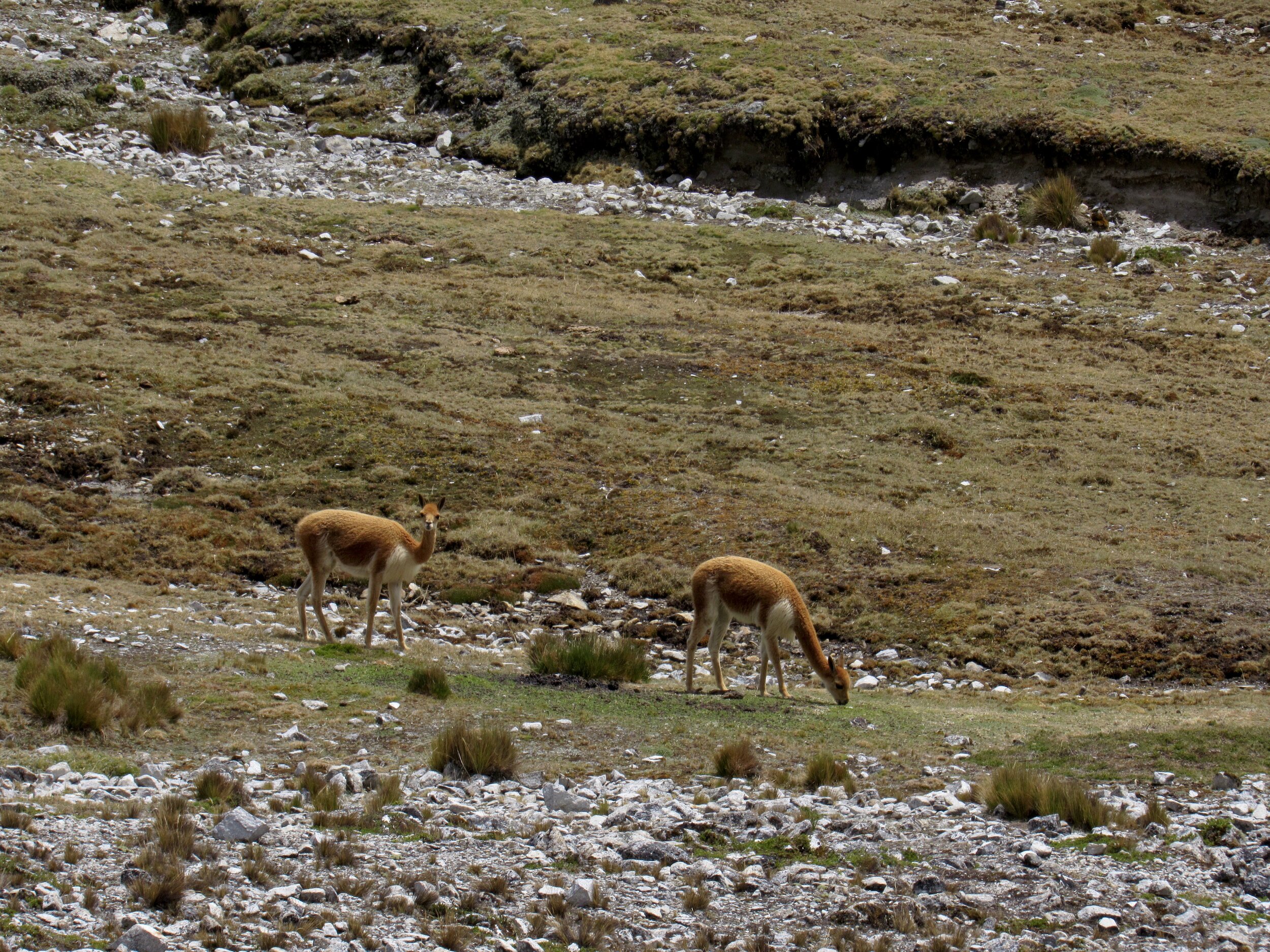
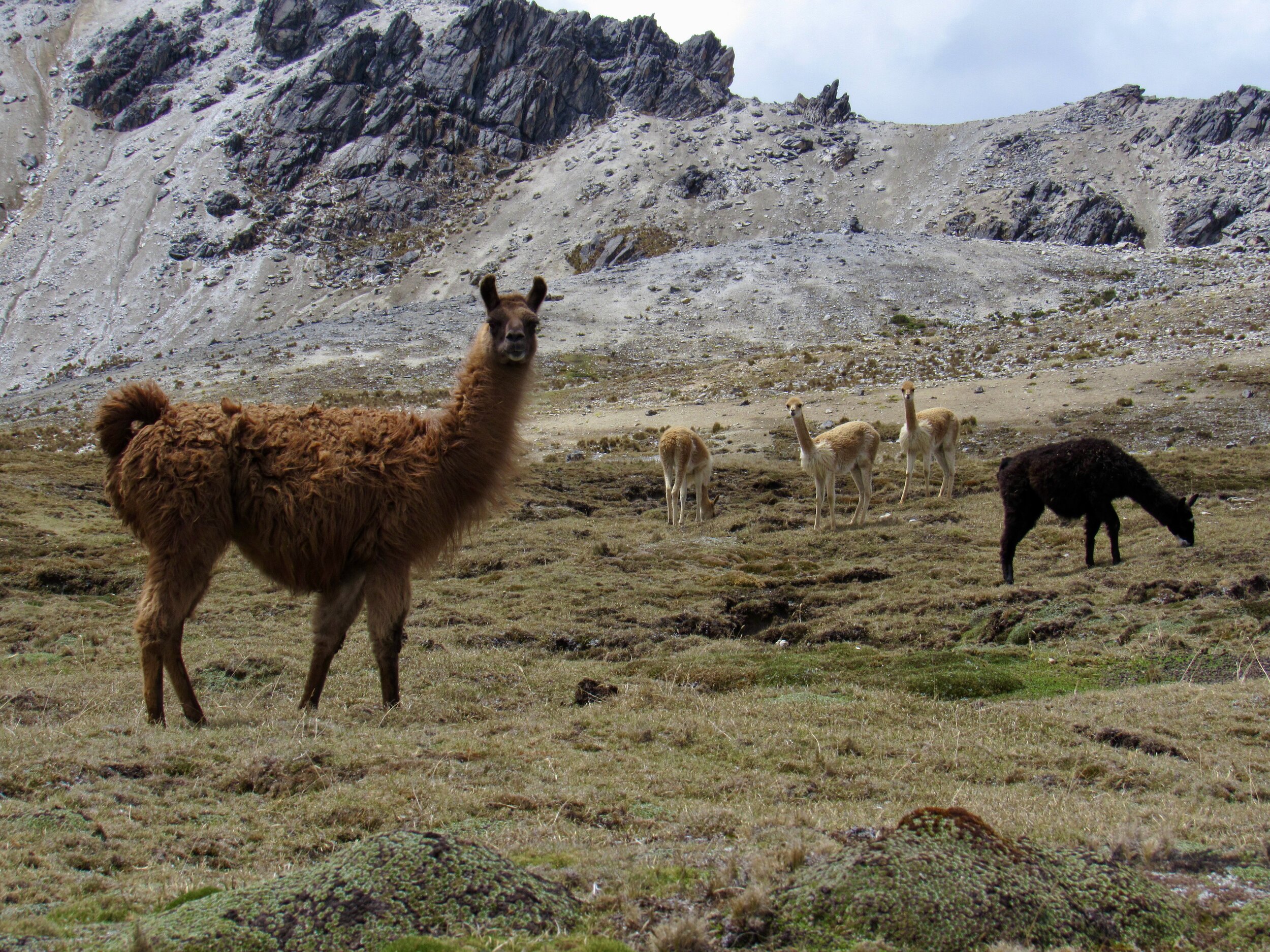
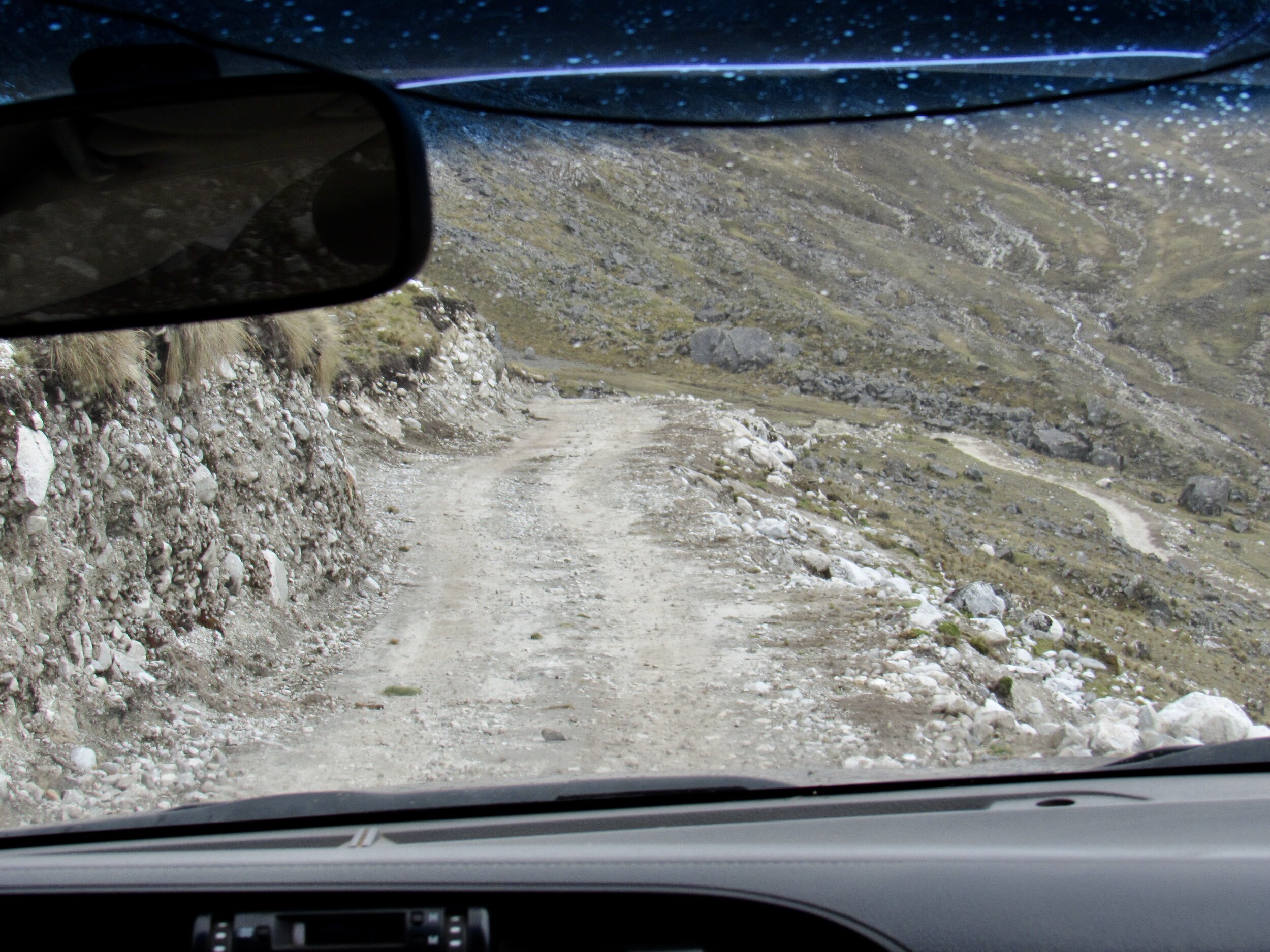
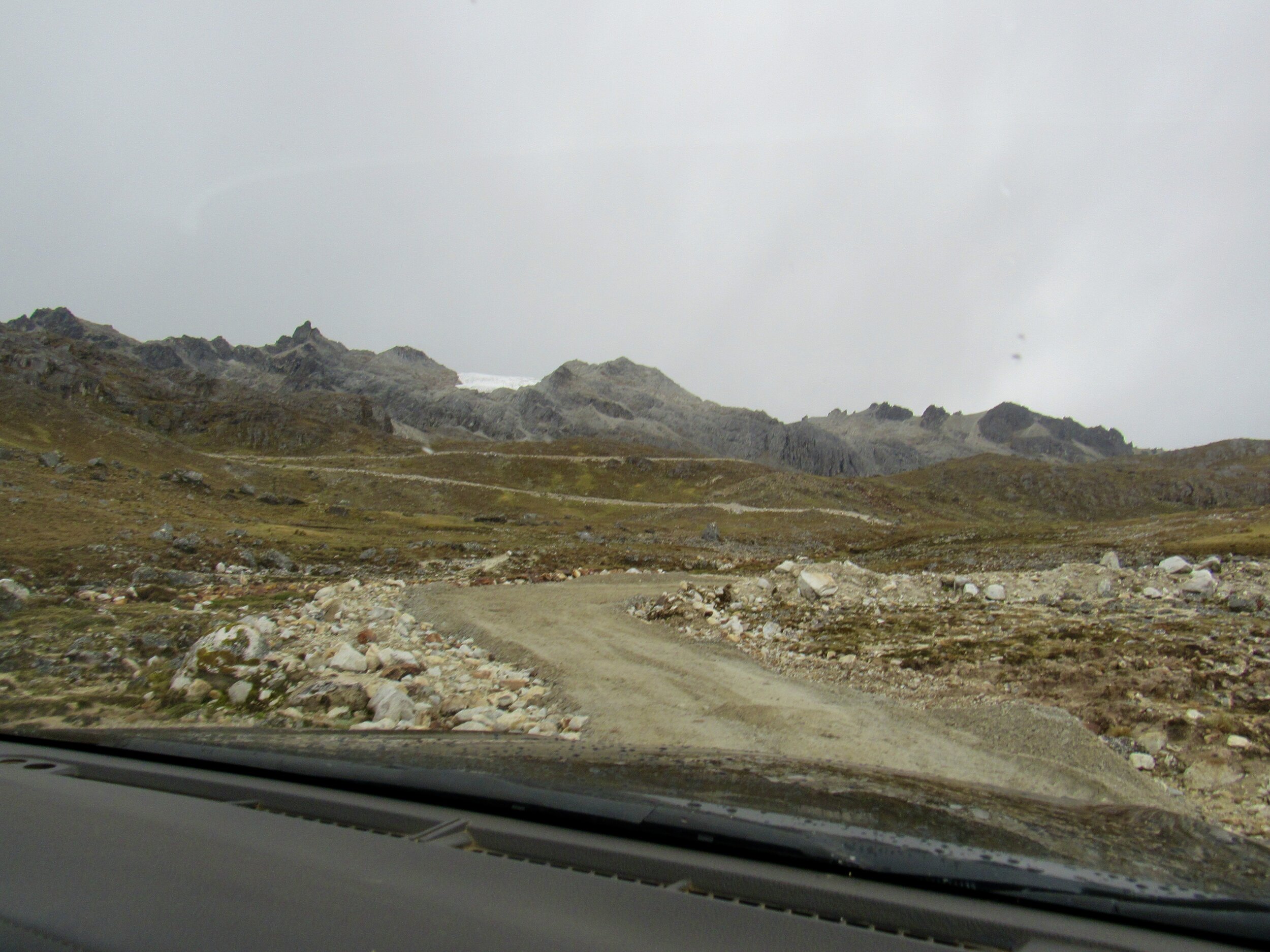
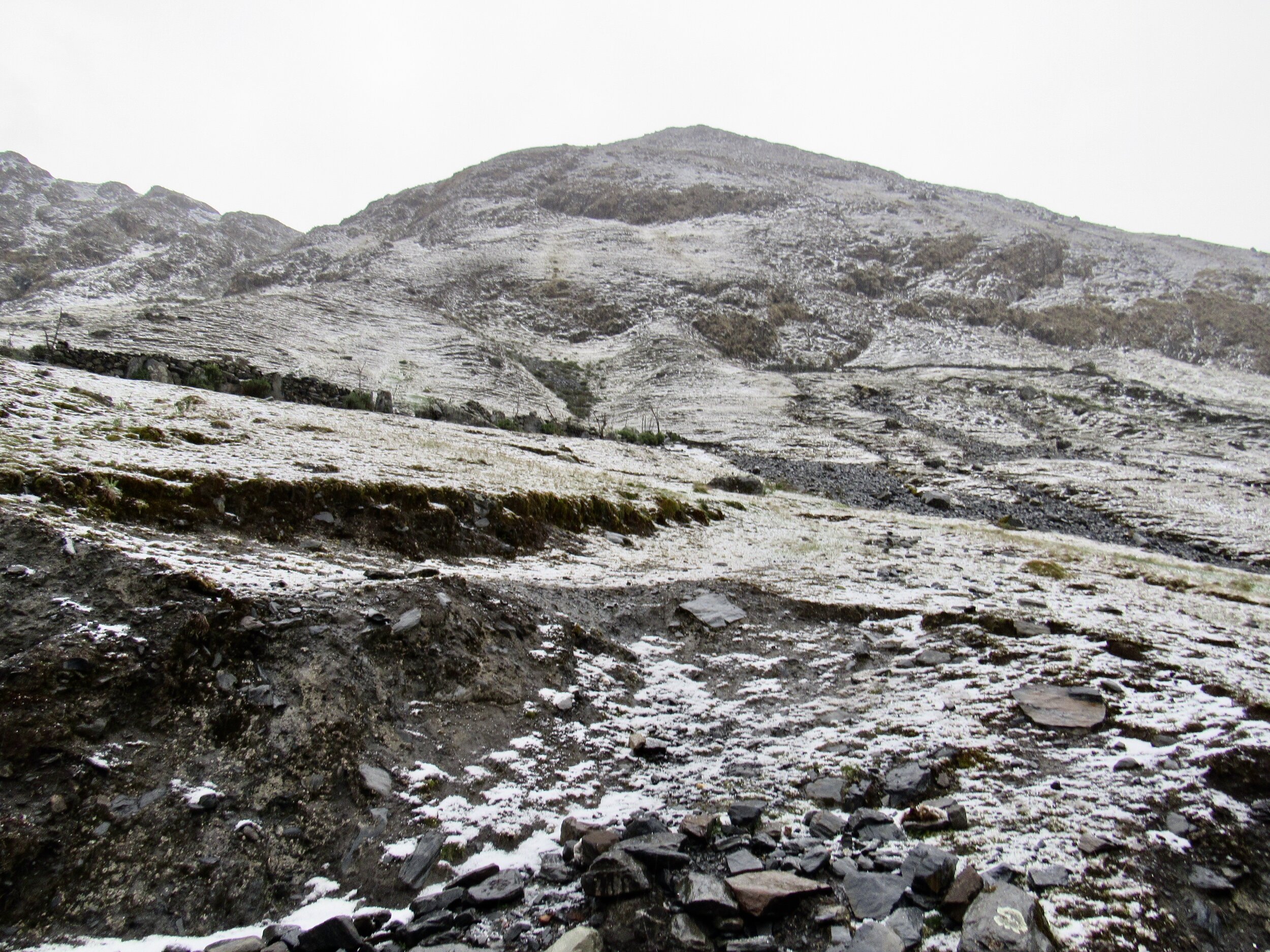
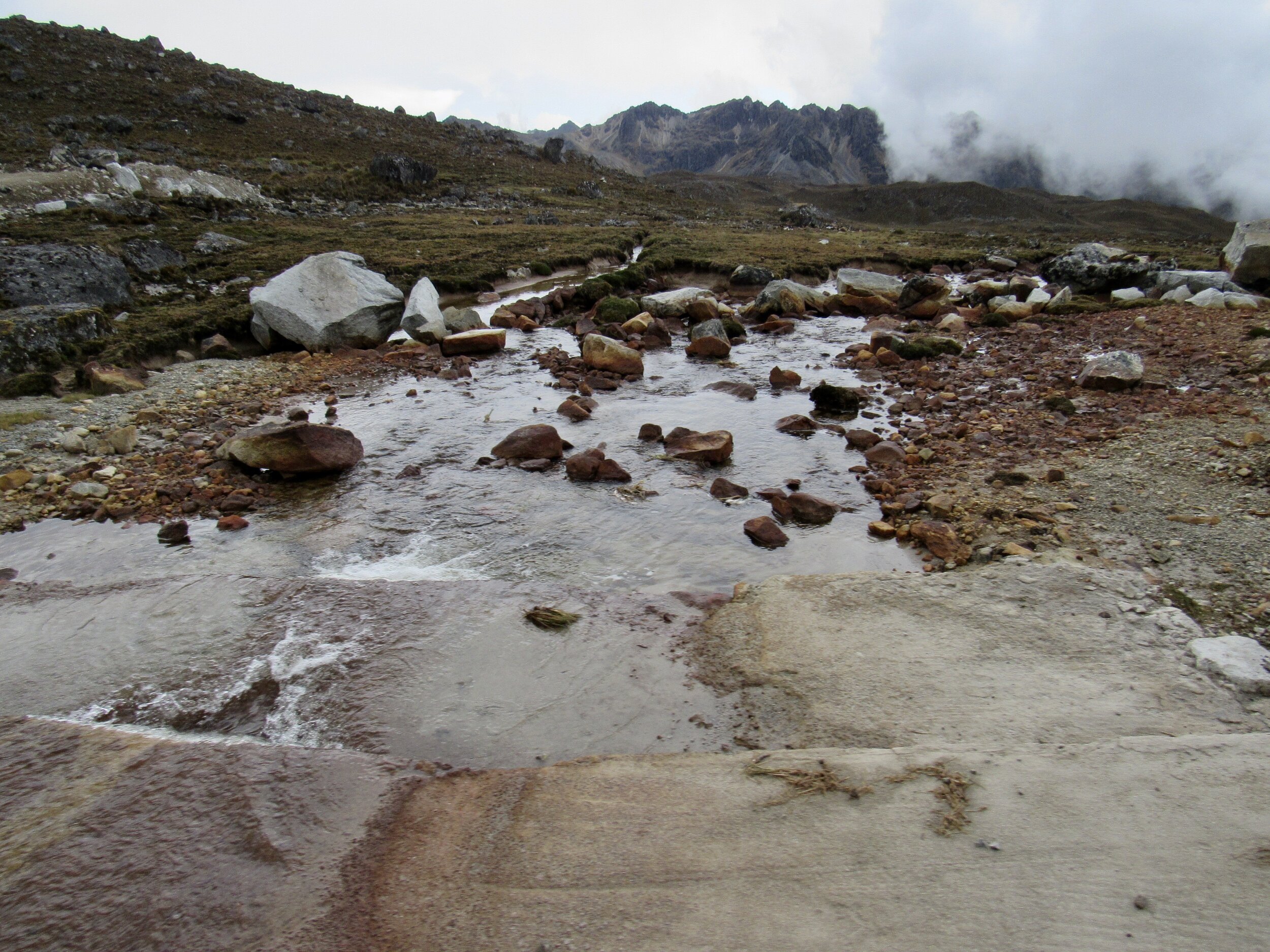
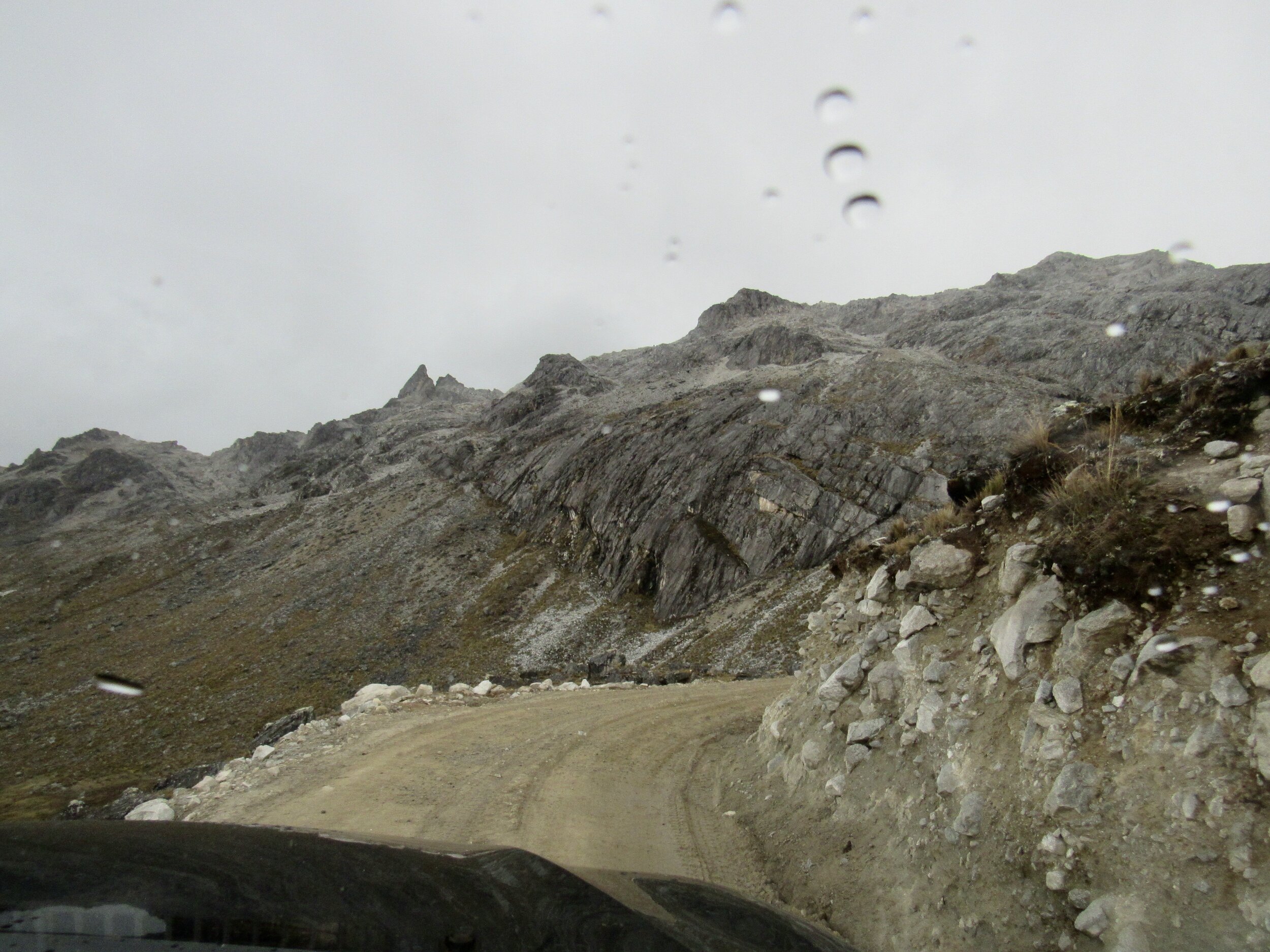
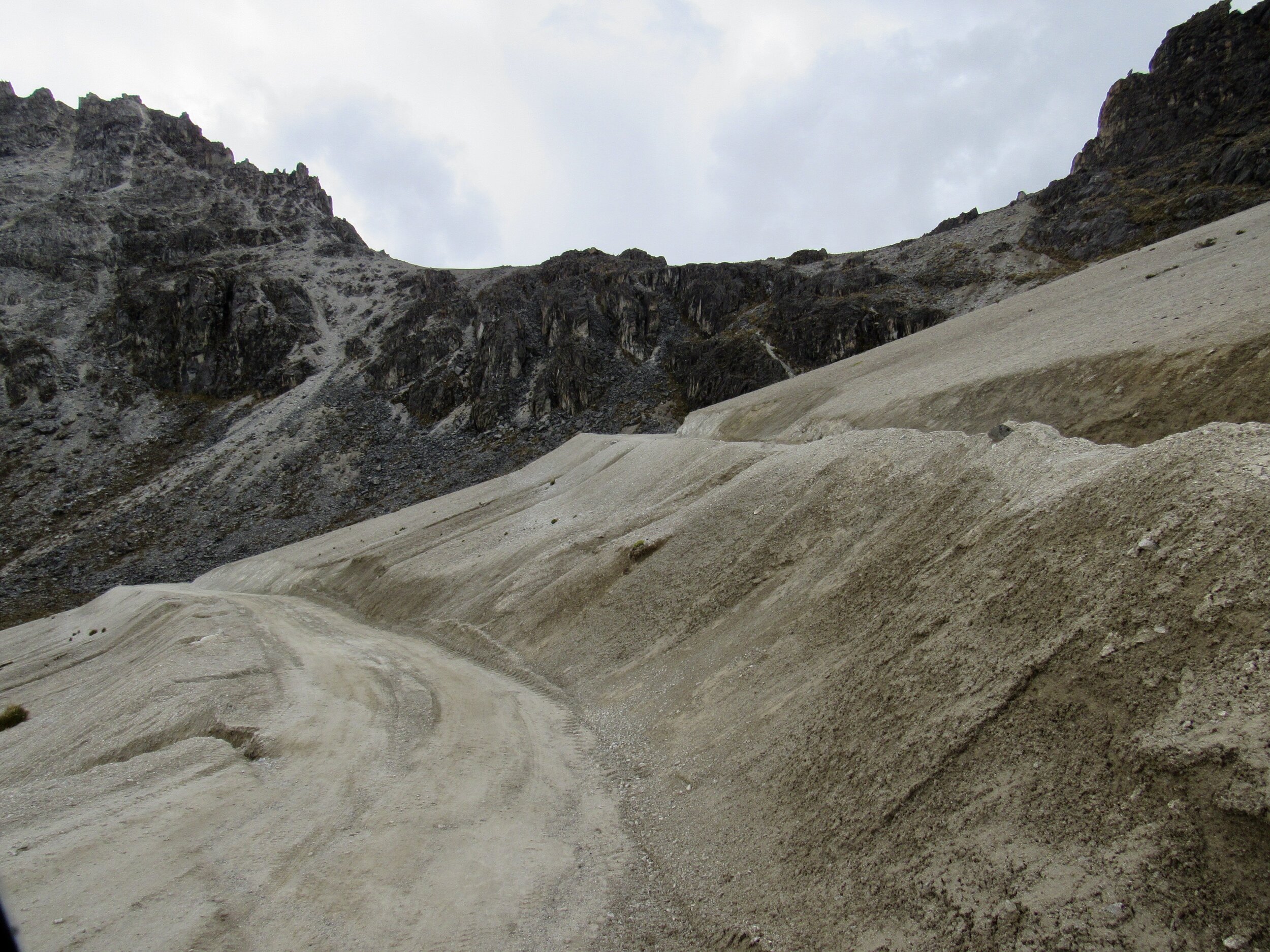
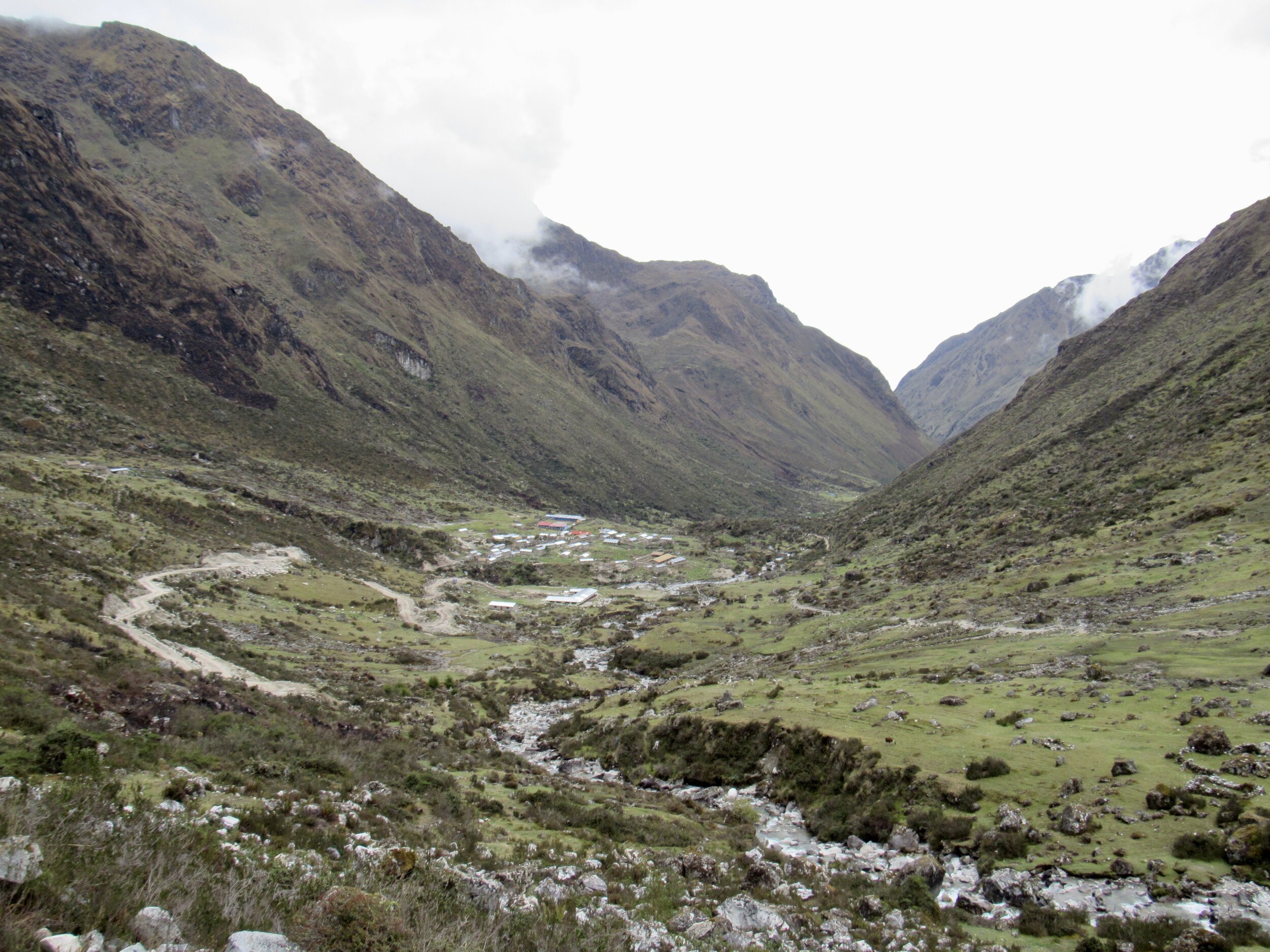
THANK YOU TO SO MANY PEOPLE!
I am so thankful to the people who made today possible! The Weismen family of Chicago donated enough to cover all of the expenses of today. Auqui spent countless hours on the phone coordinating with local government in Paucartambo to provide transportation. Sofia Champi, who works in the local government of Paucartambo, coordinated the transportation and all of the communication with the community leaders of Japu. Henry has been working with bakers and dairy farmers in Cusco to get us the best mini-panettone and the best fresh milk. Sonia & David endured a very long day and a huge help with the entire event. Lupe Yucra helped buy the children’s clothes that we gave out and worked tirelessly all day with us. Jorge Wagner continues to work with us, as a wholesaler to get us the rice and everything else we buy. He also gives most of what we buy to us at cost, spending lots of time with us to get the right products at the best price he can find for us. These visits to villages are a big undertaking which required weeks of preparation and a big support network. Thank you to all involved!
